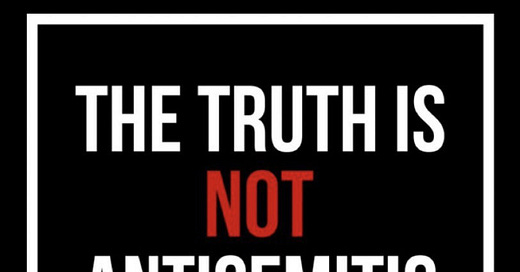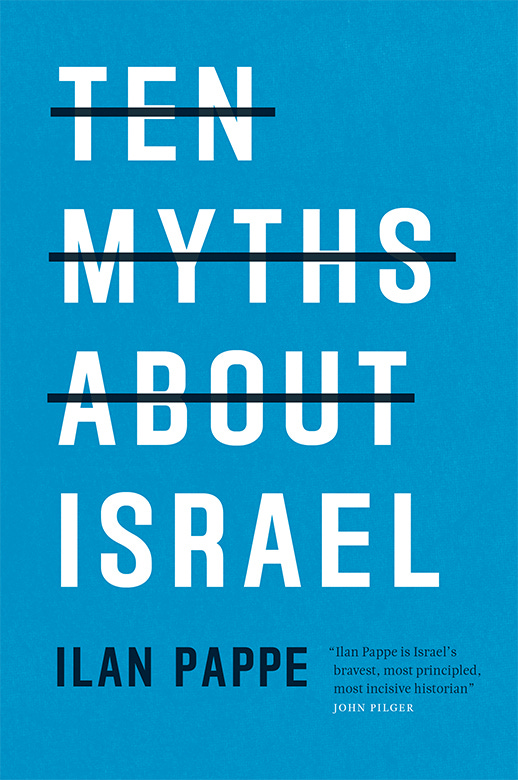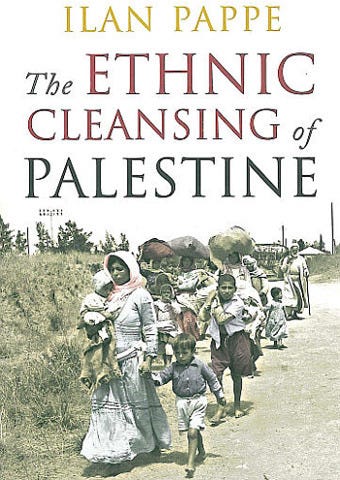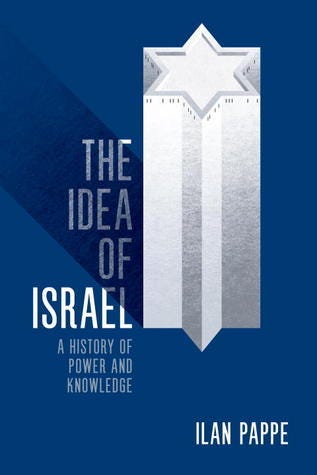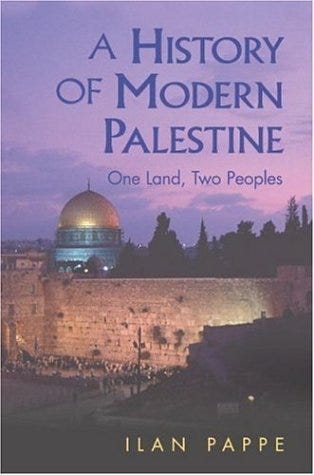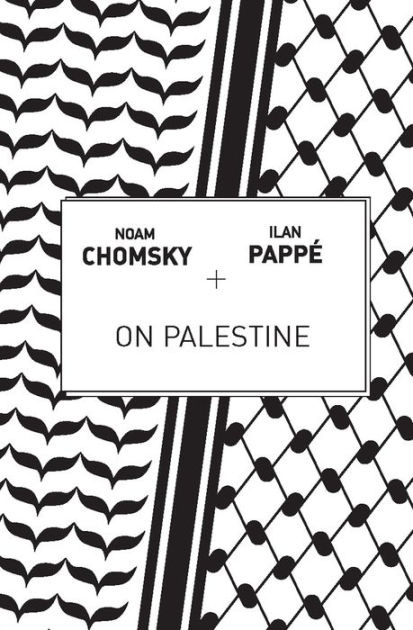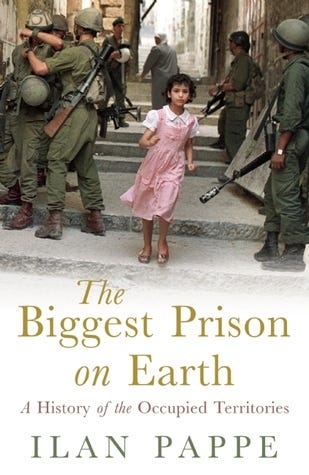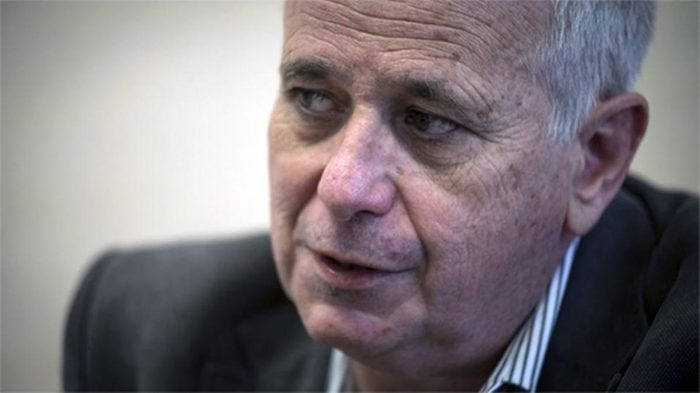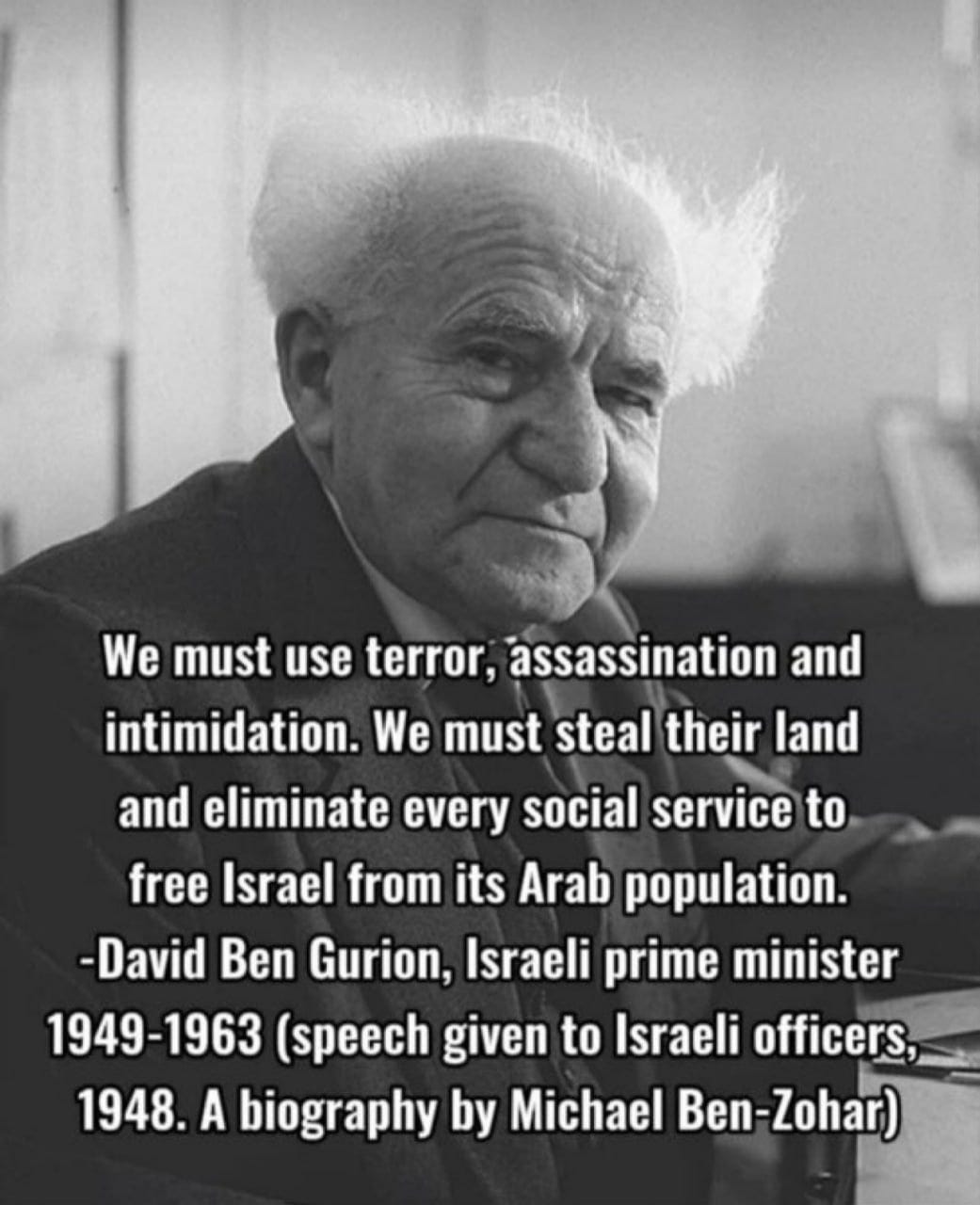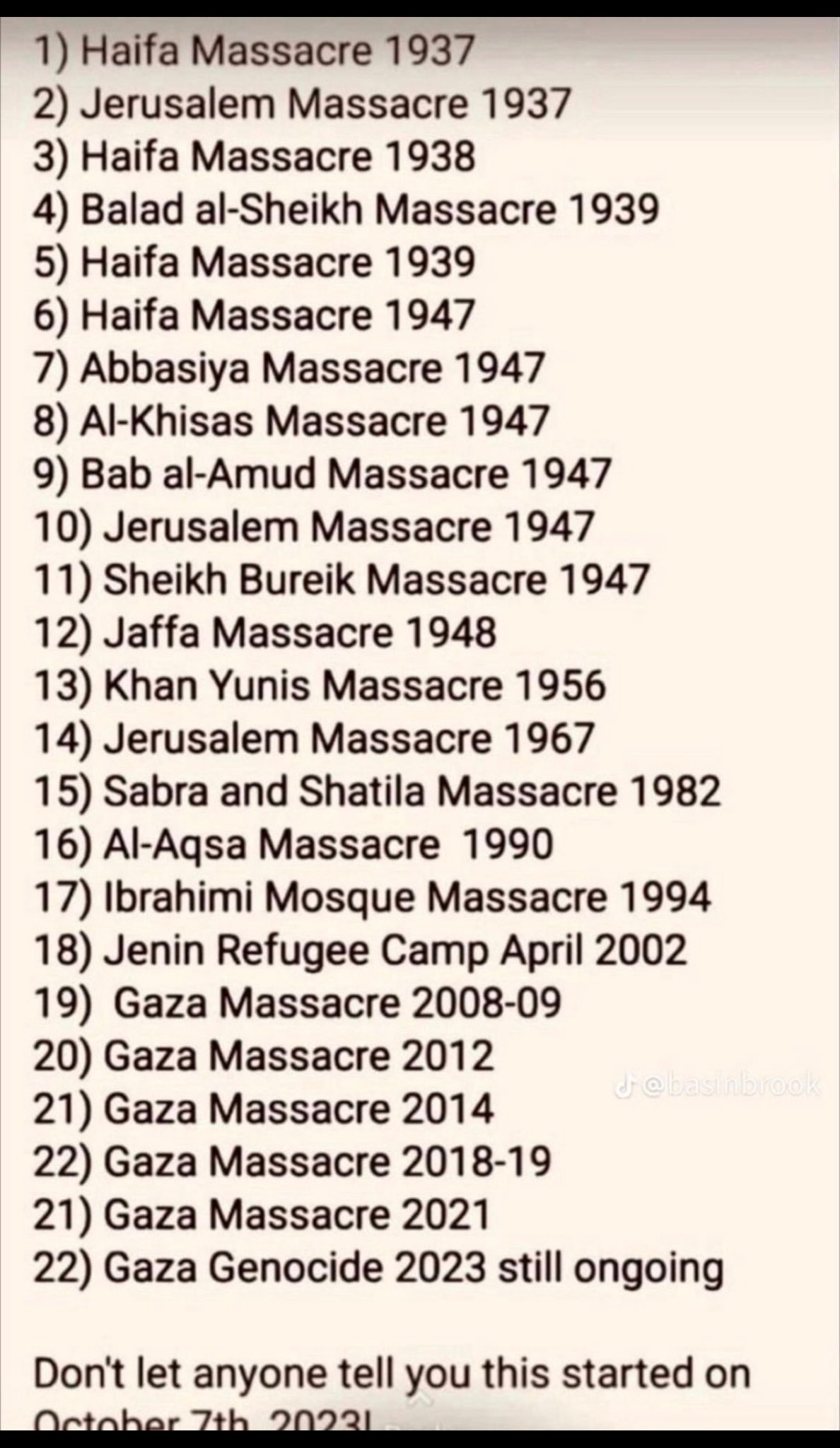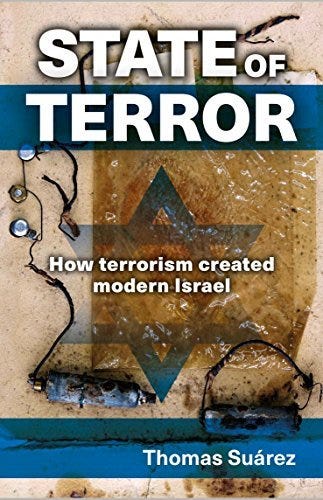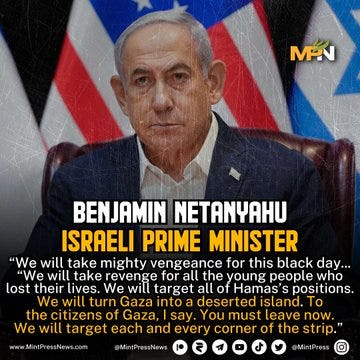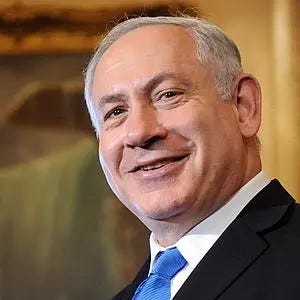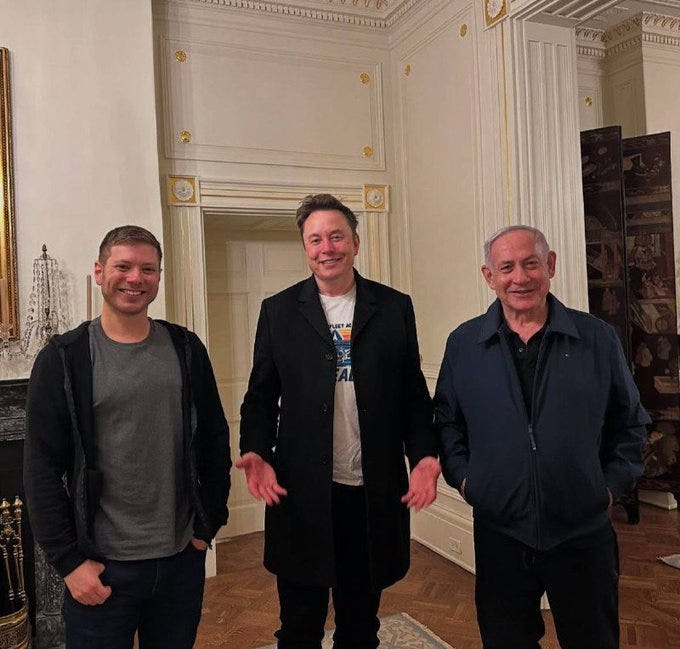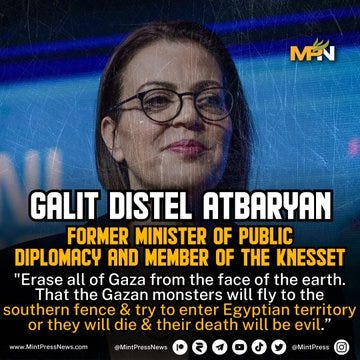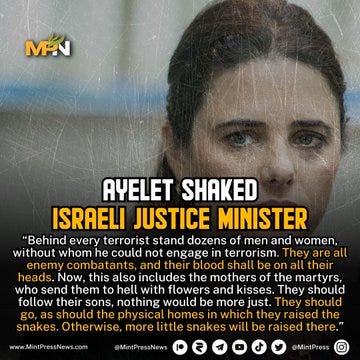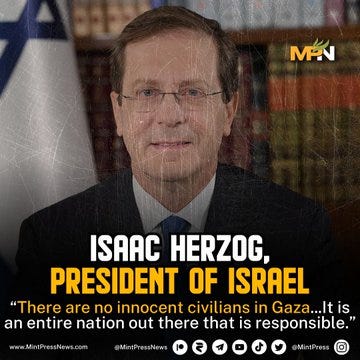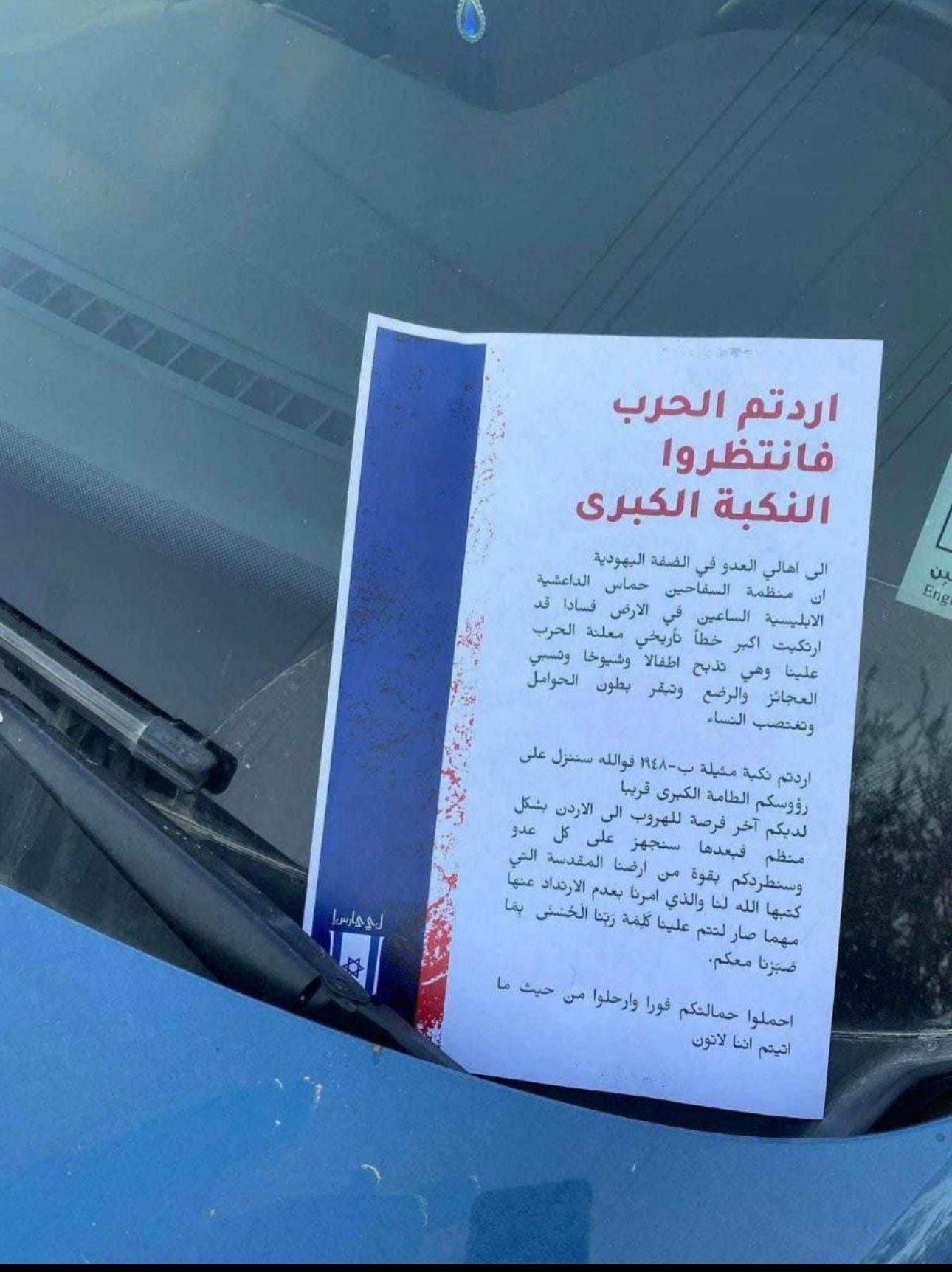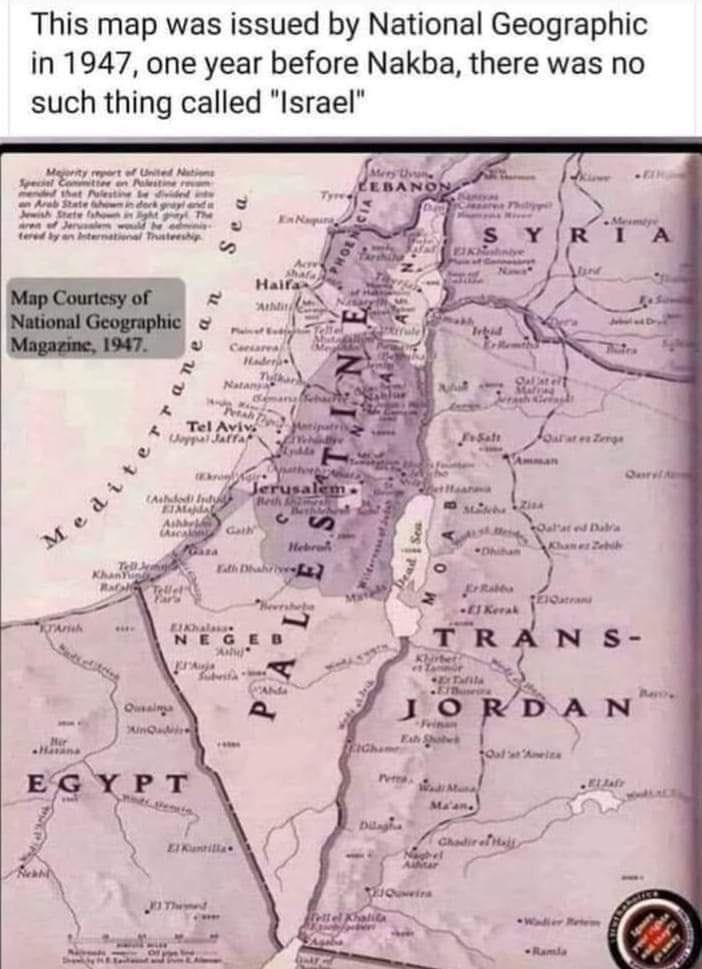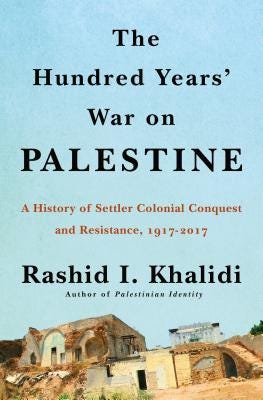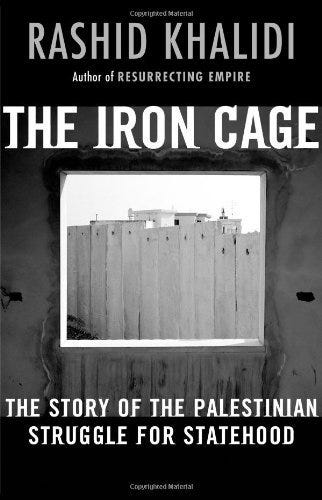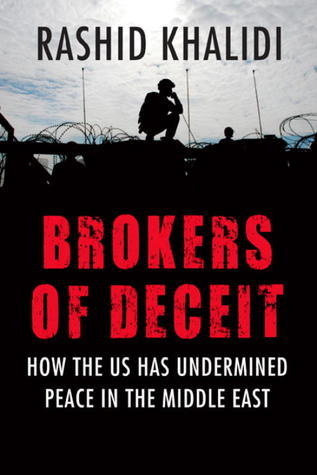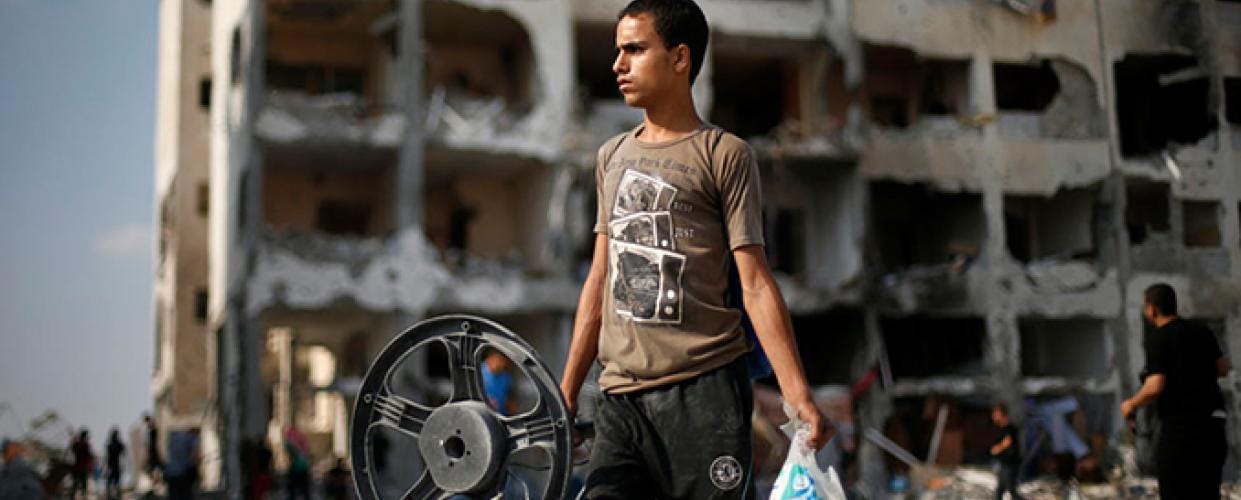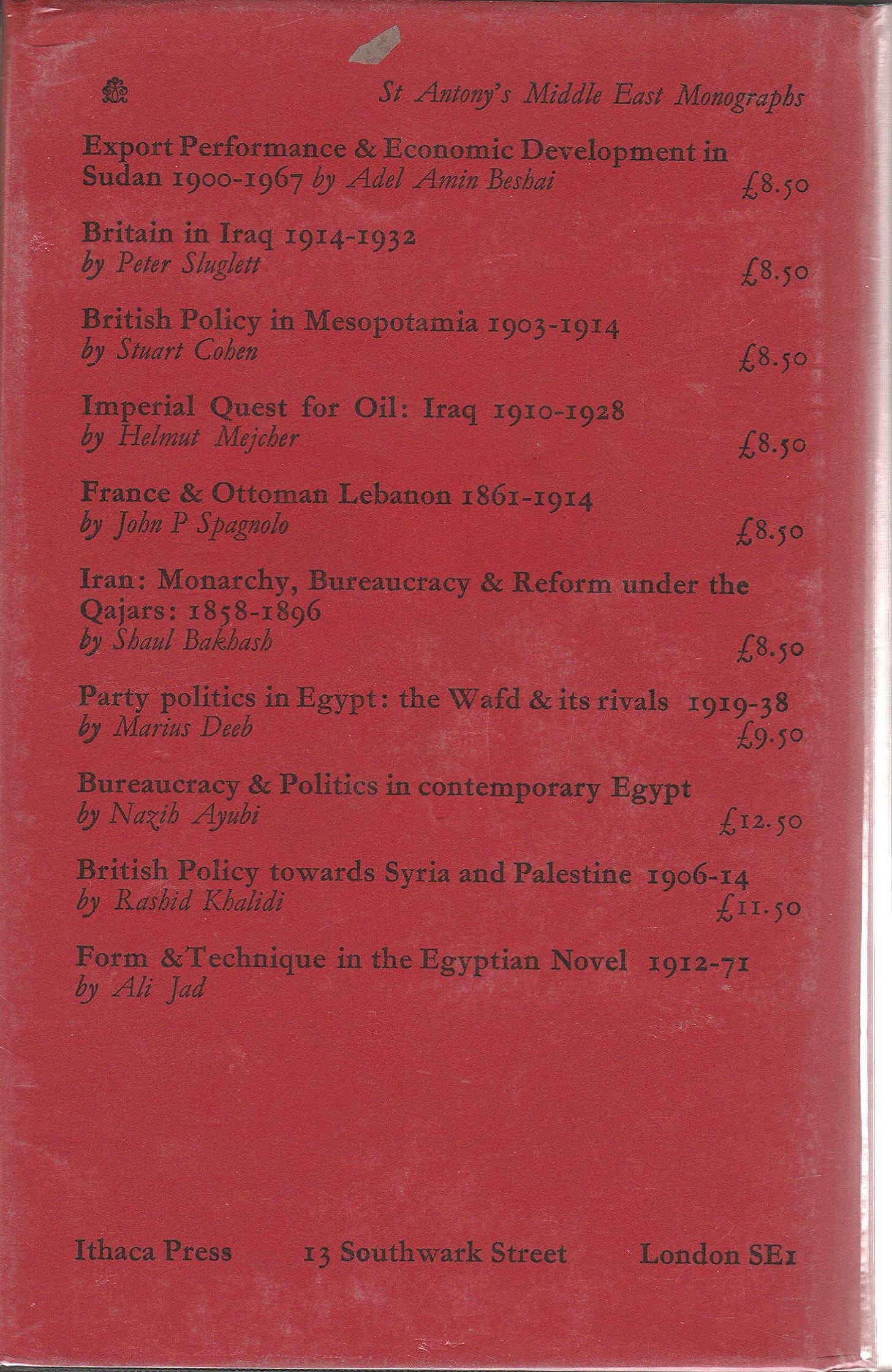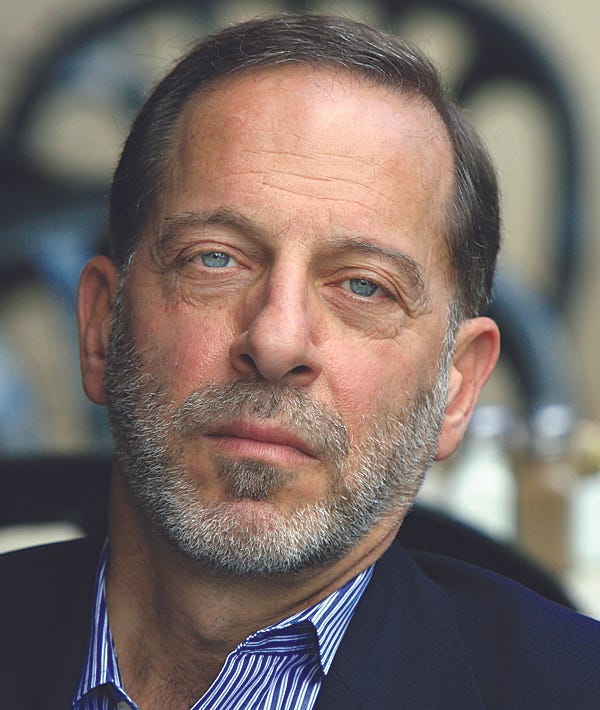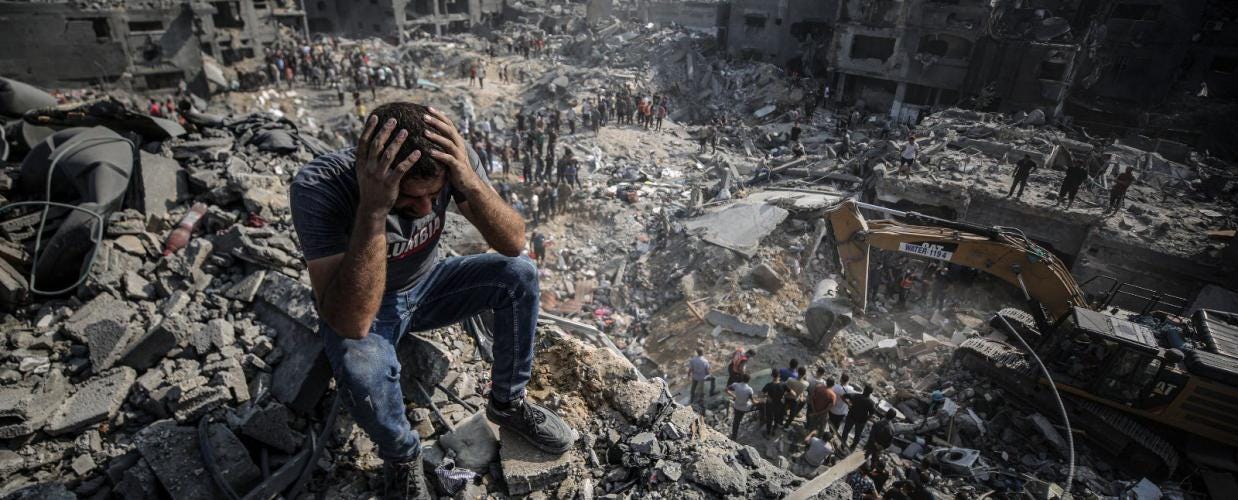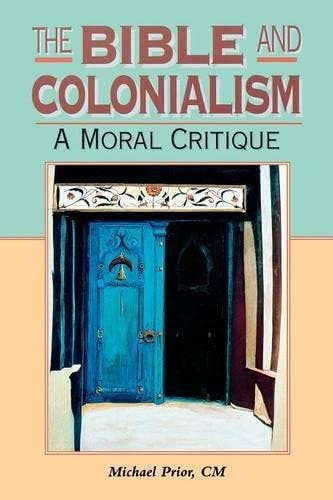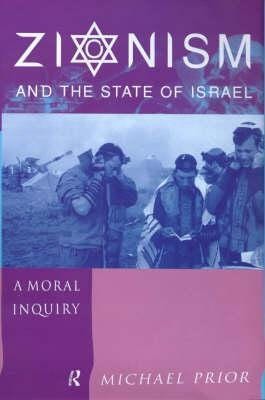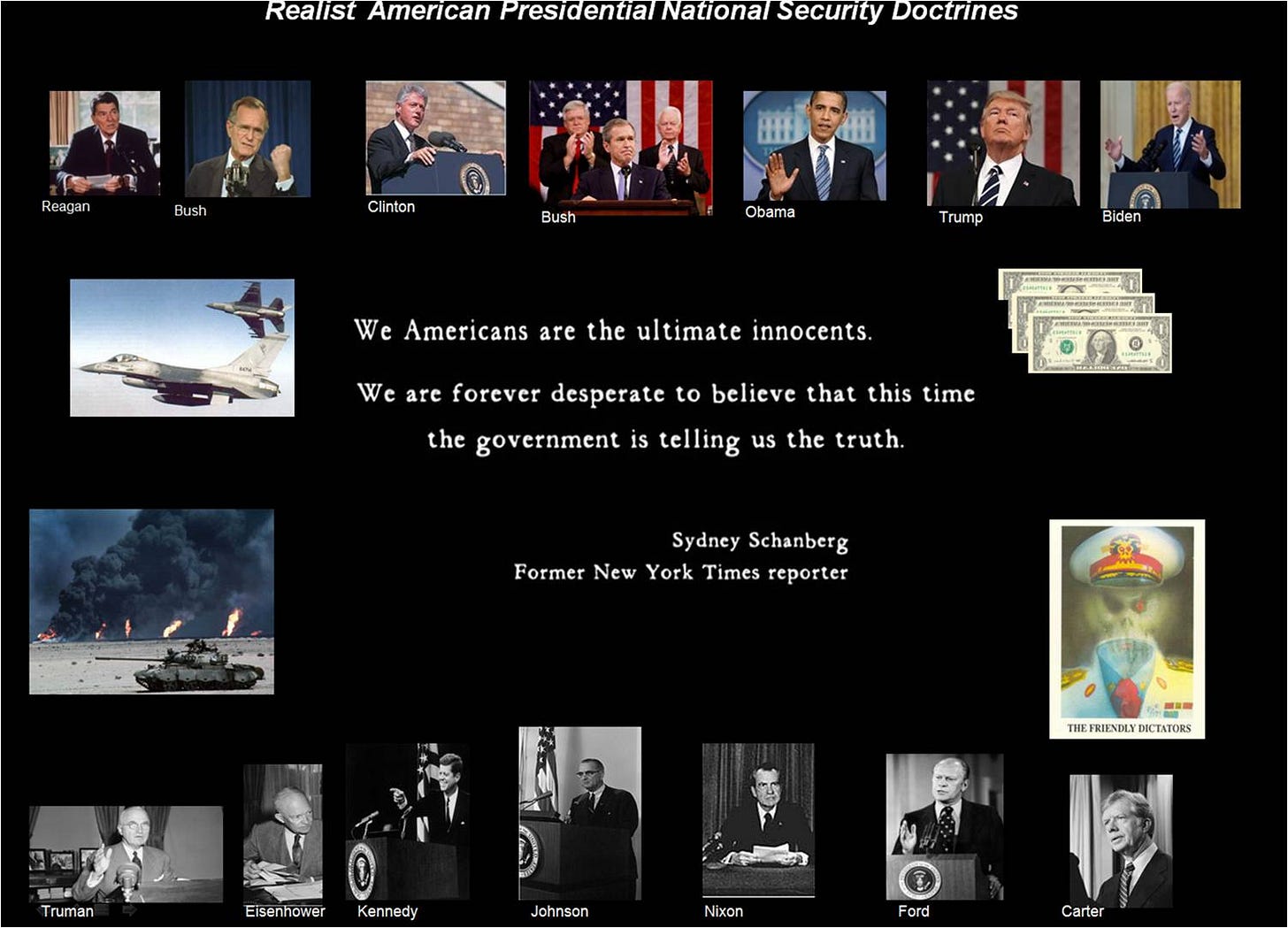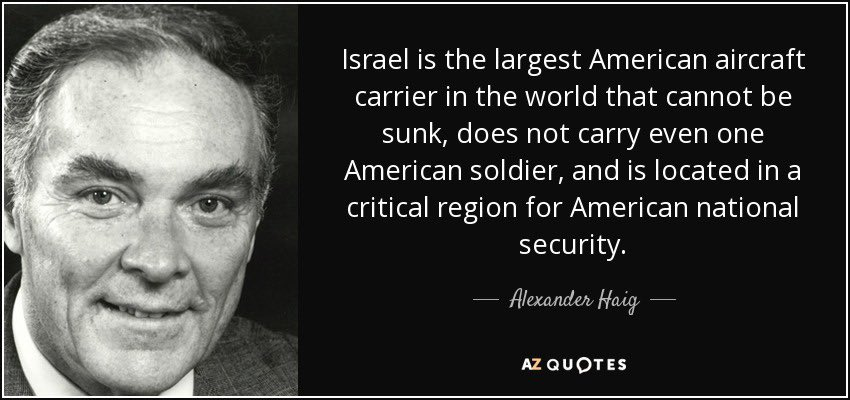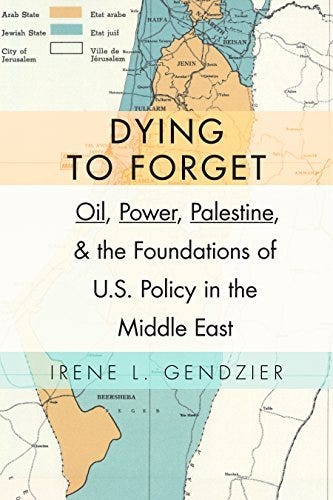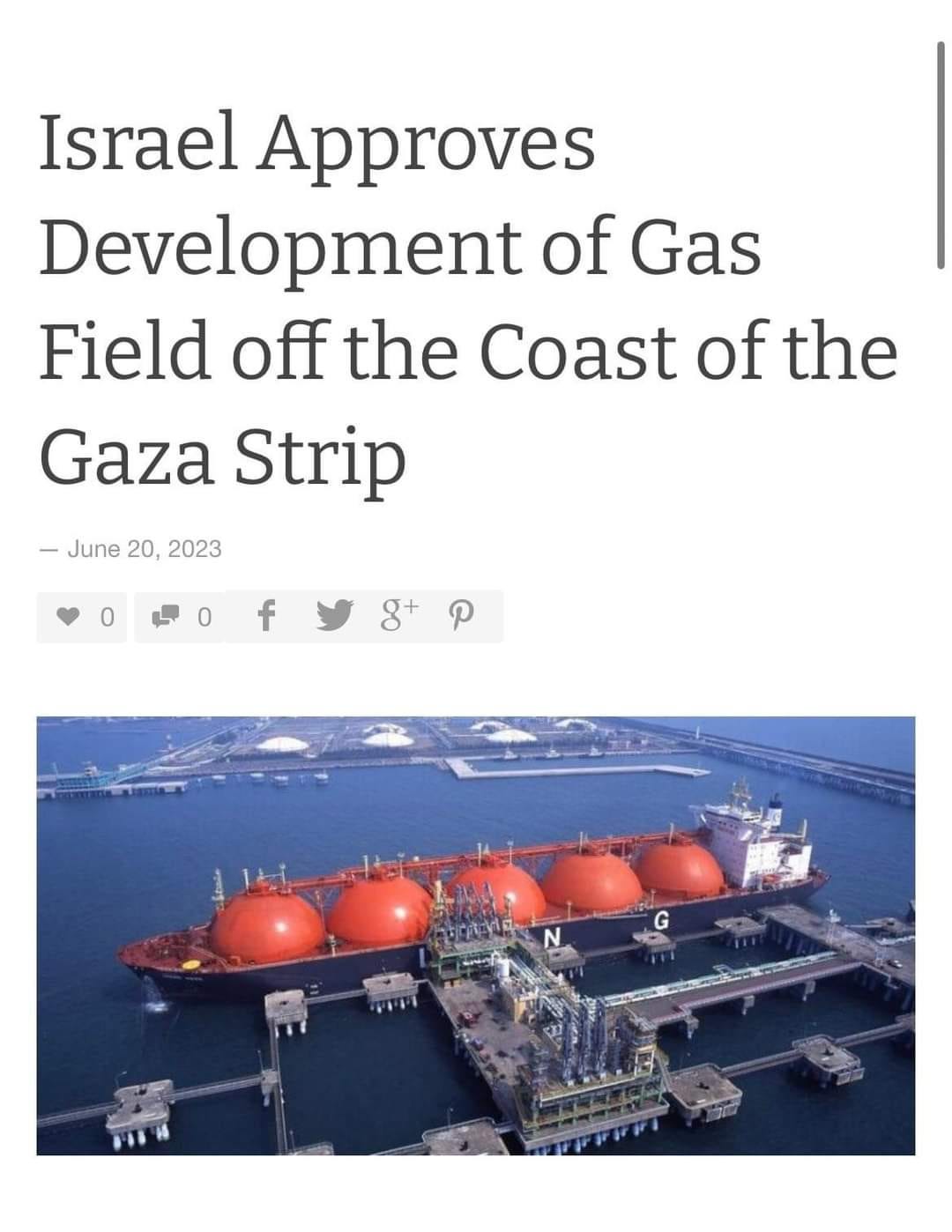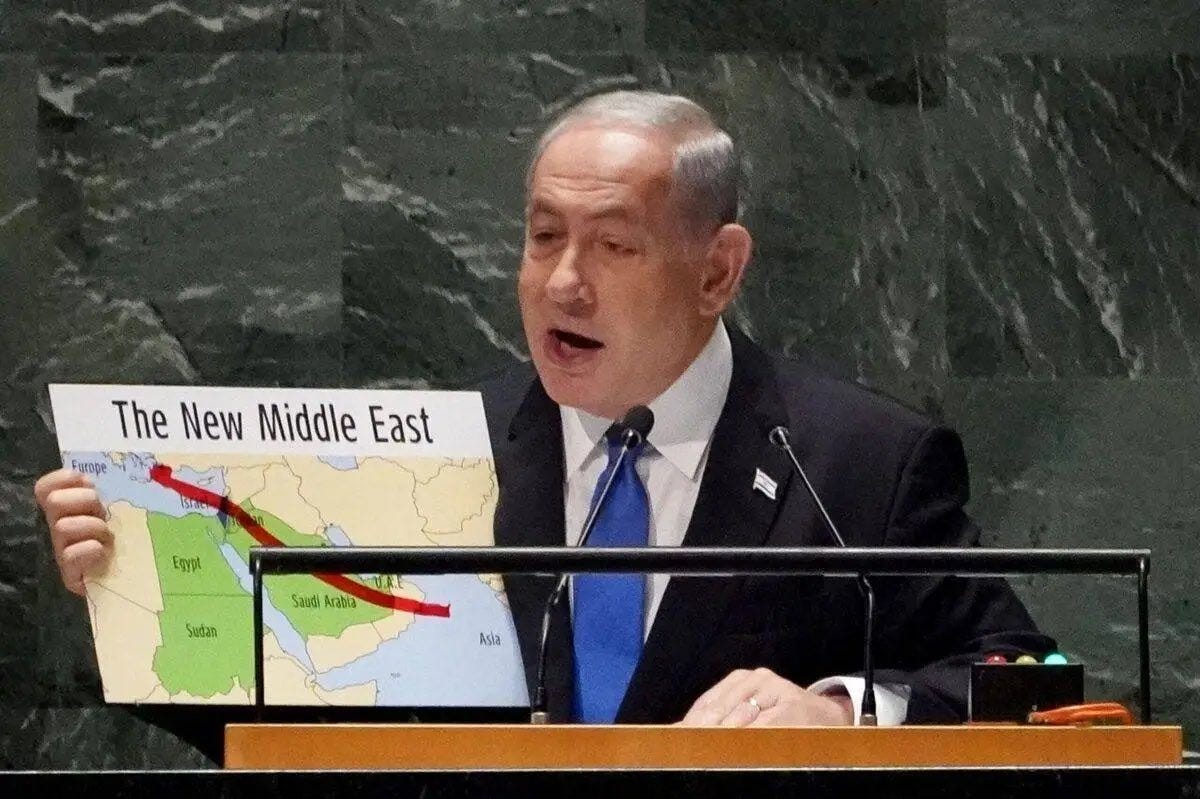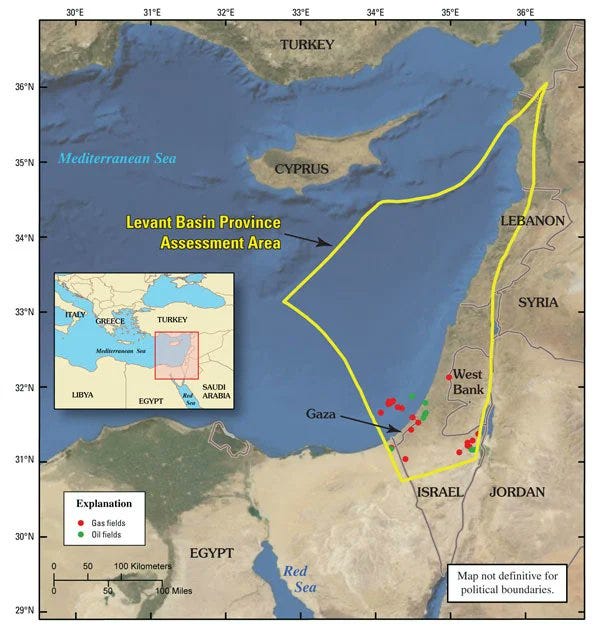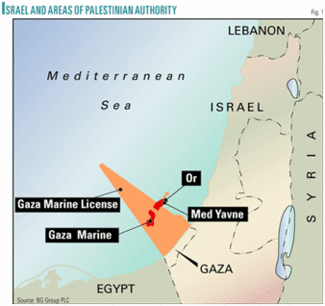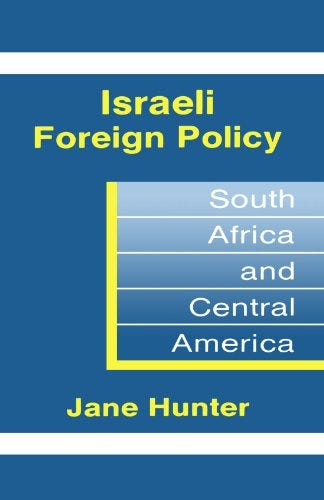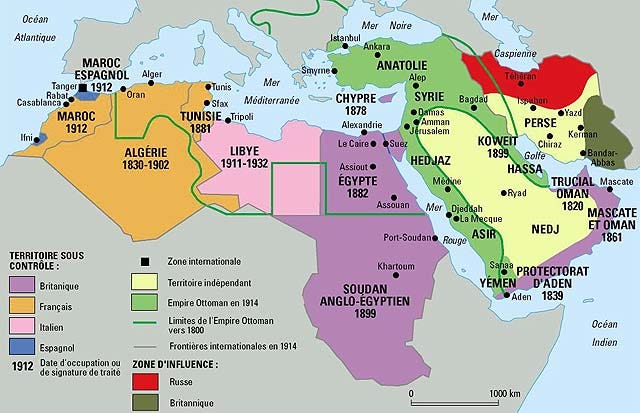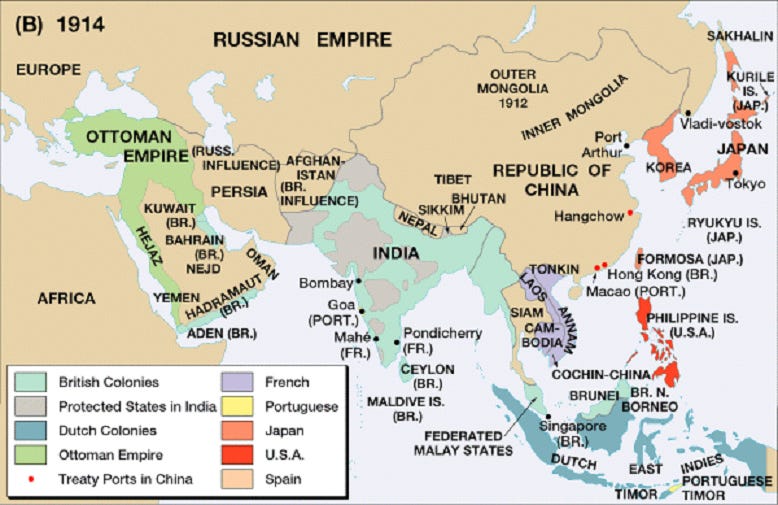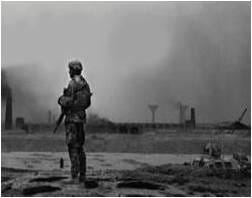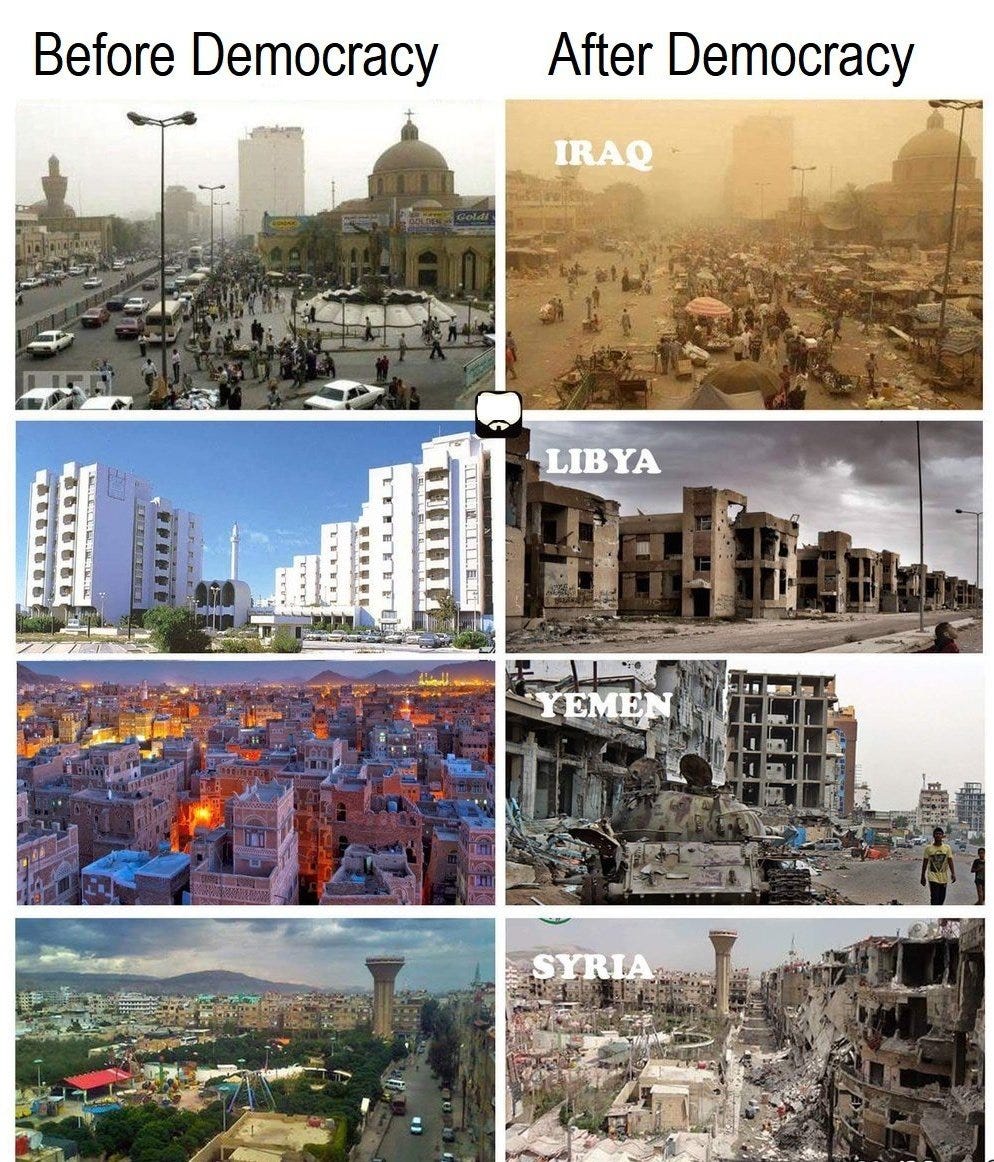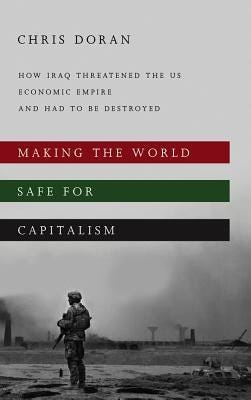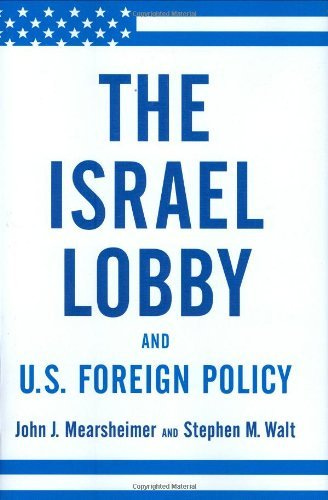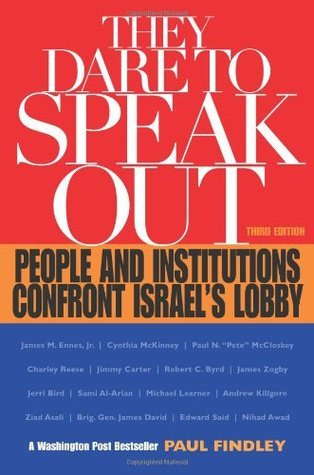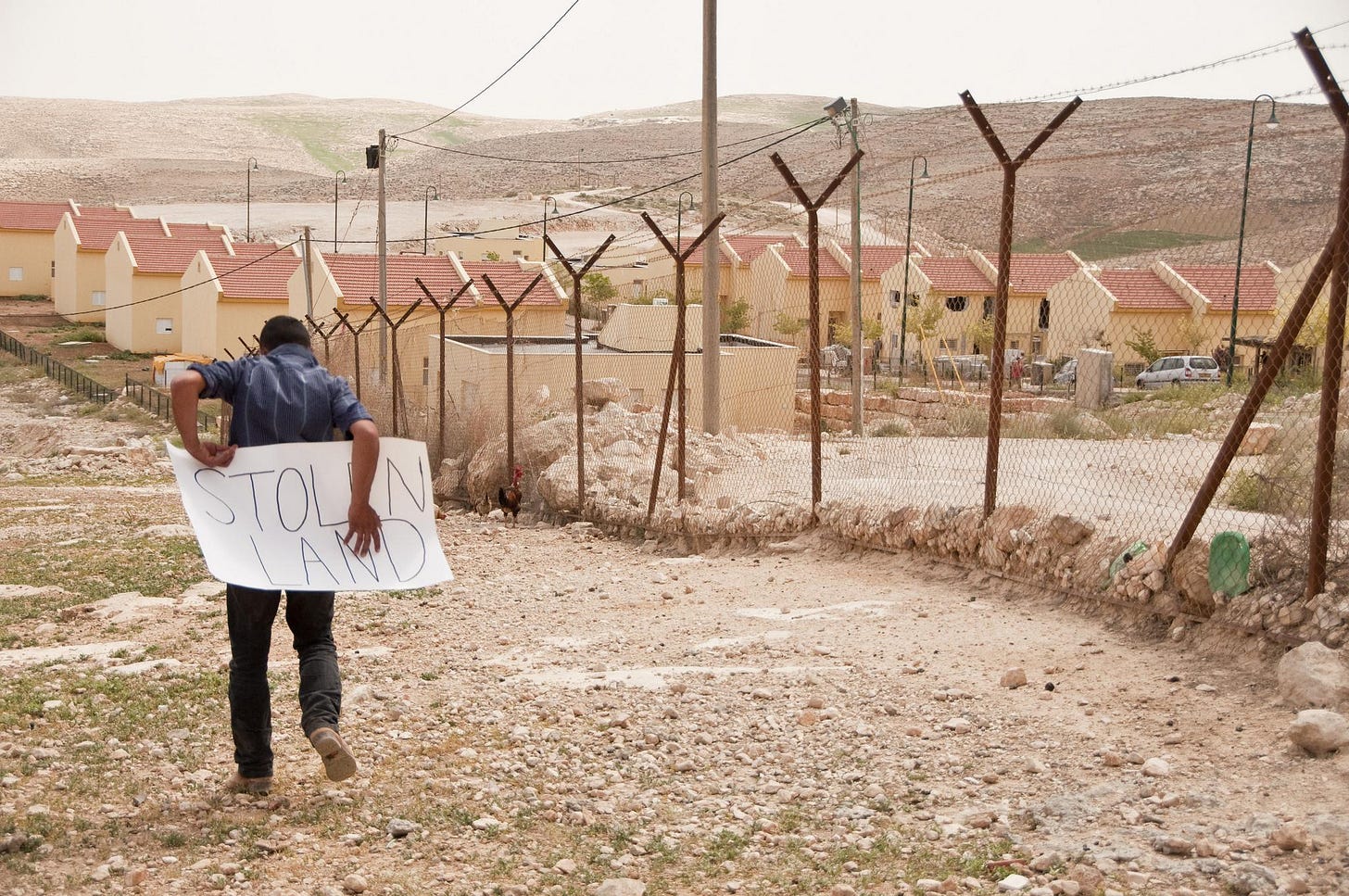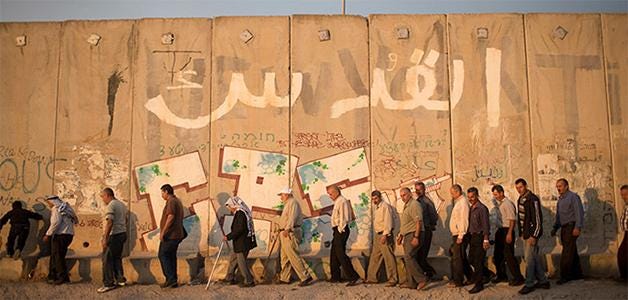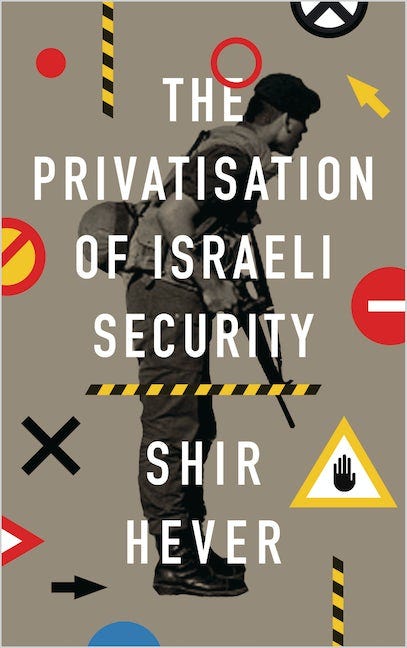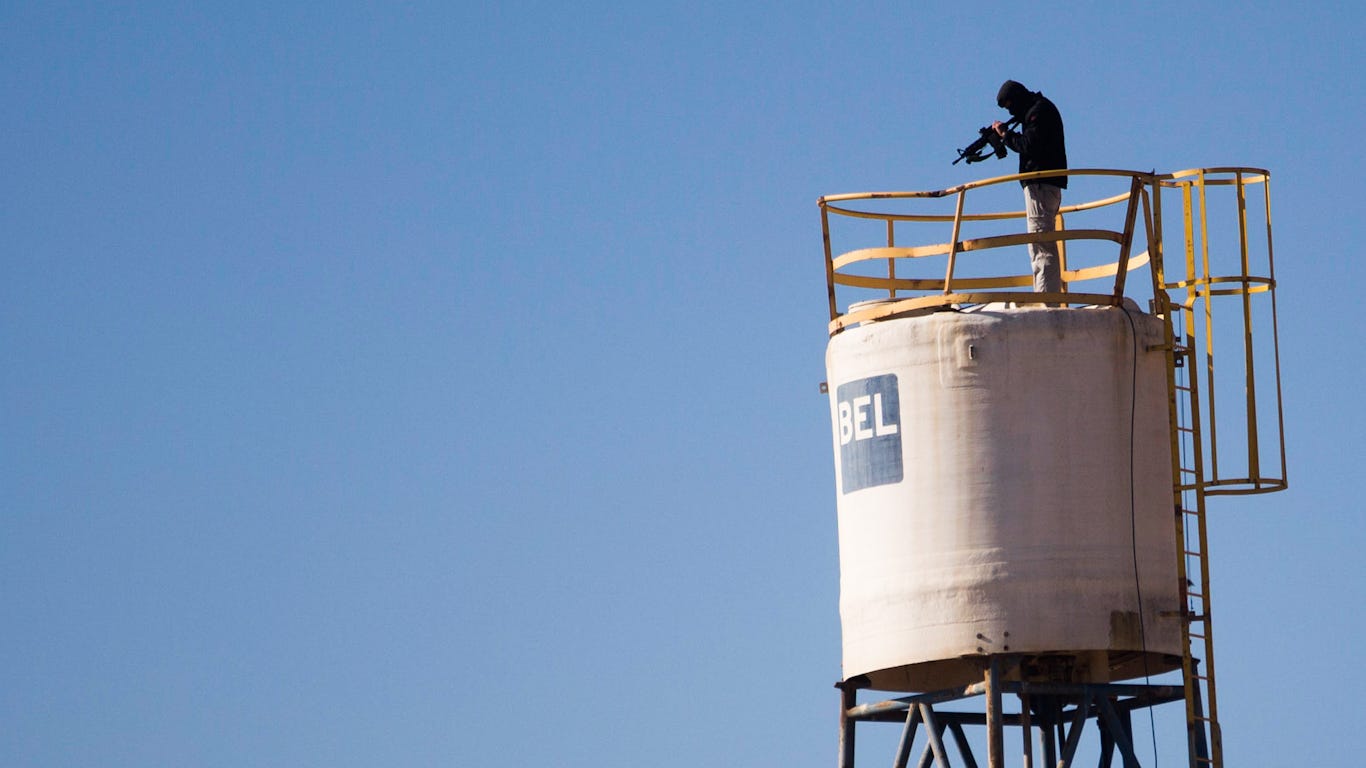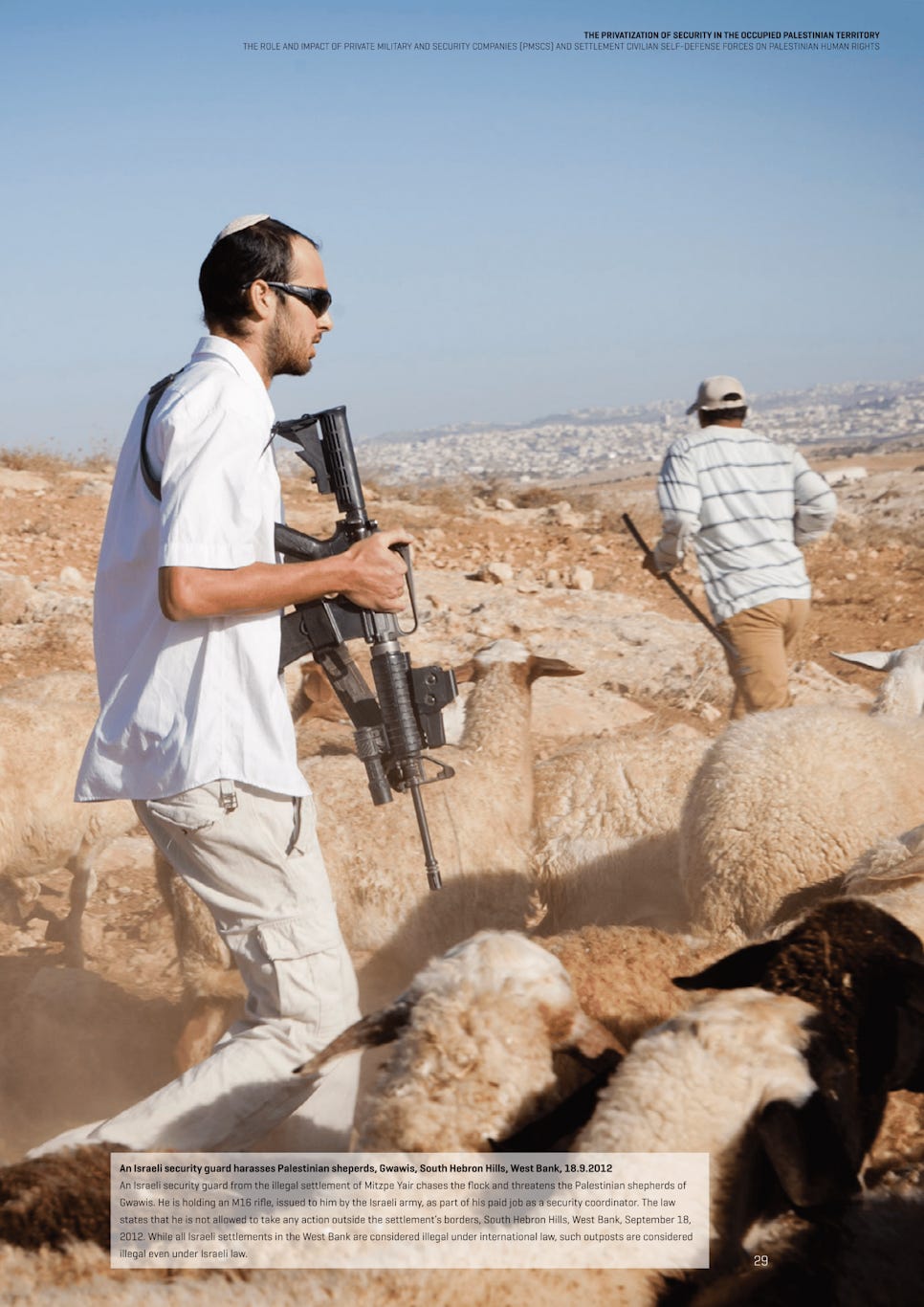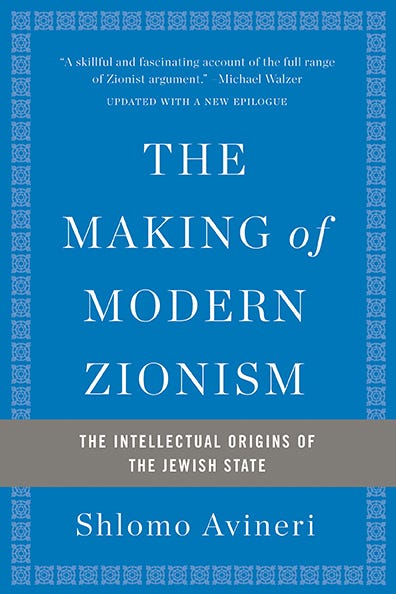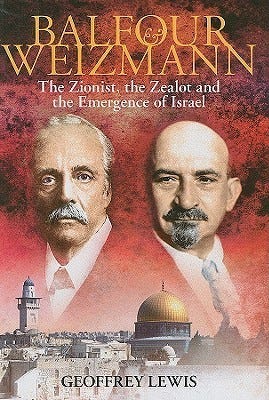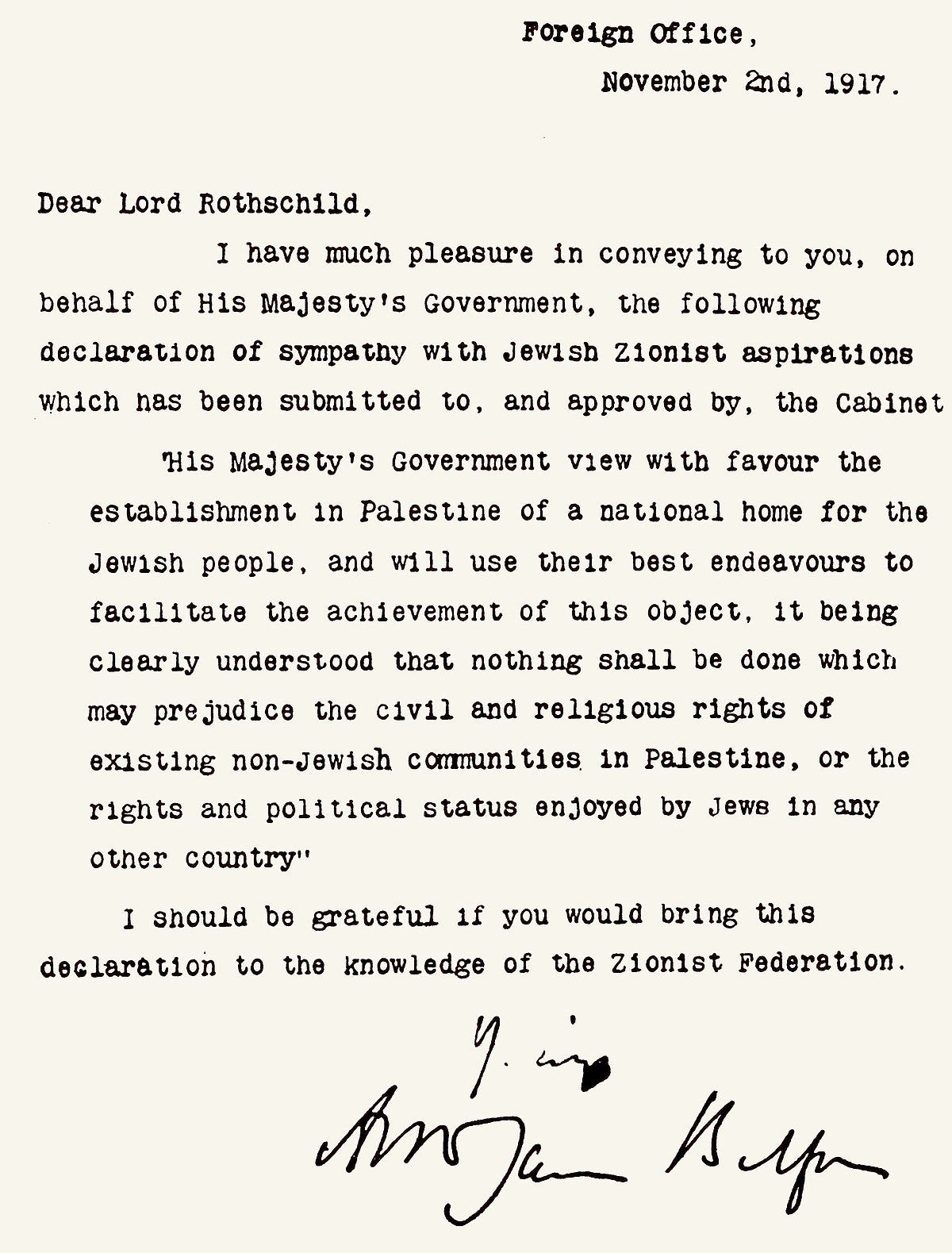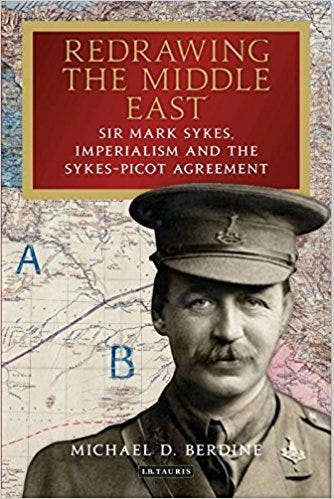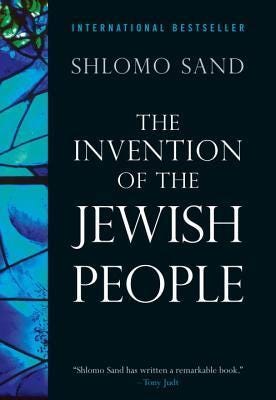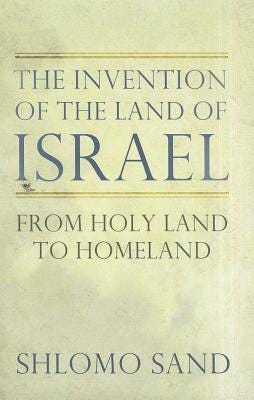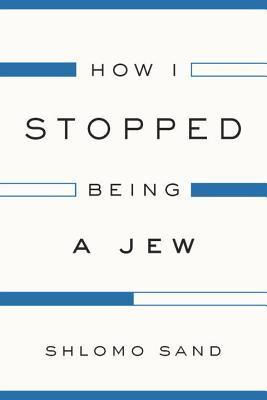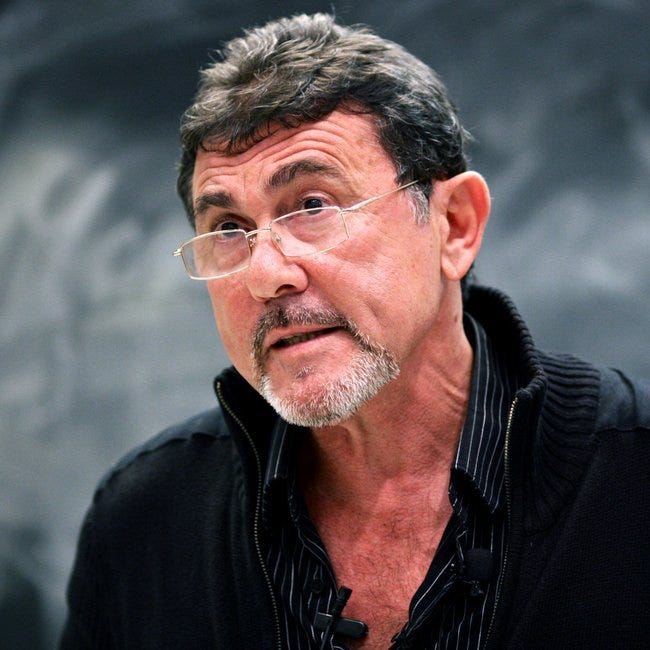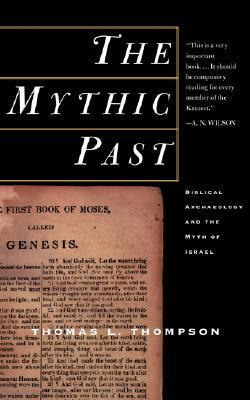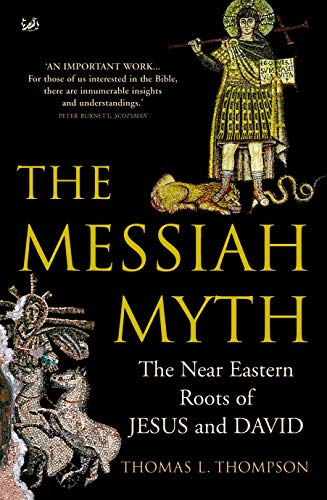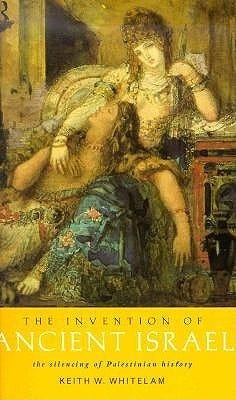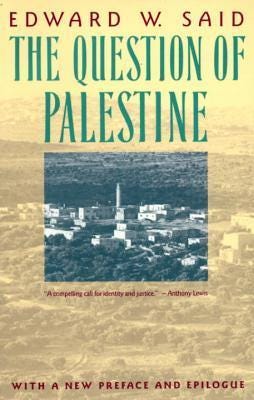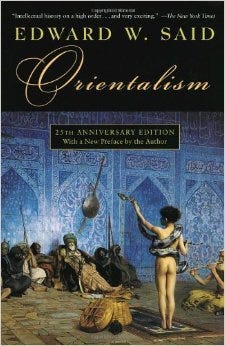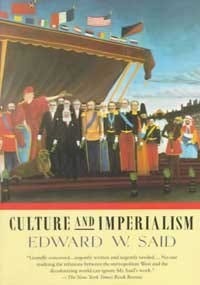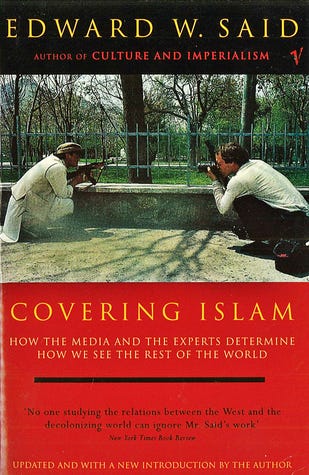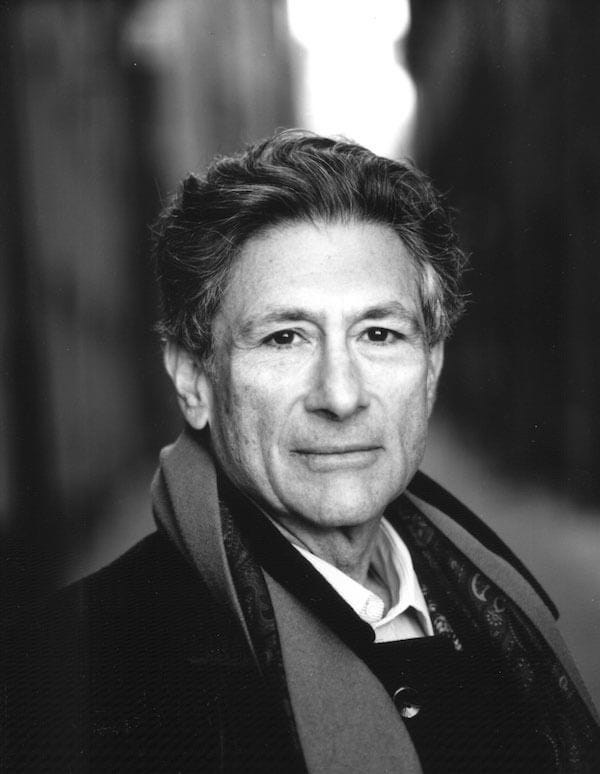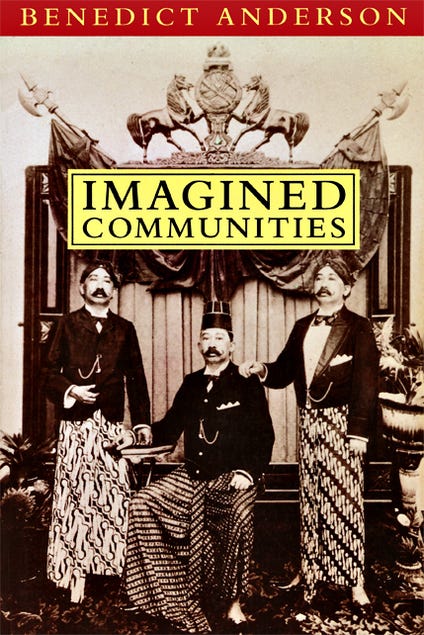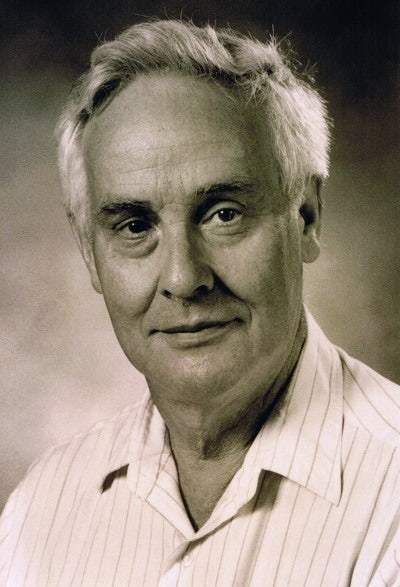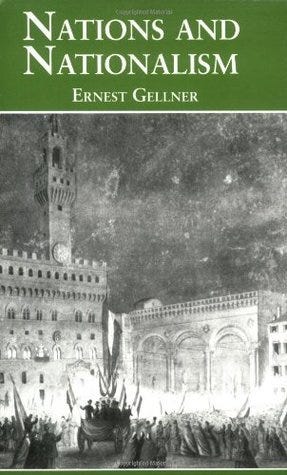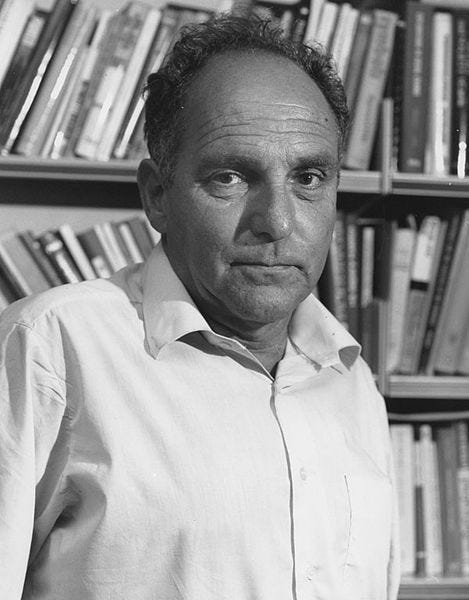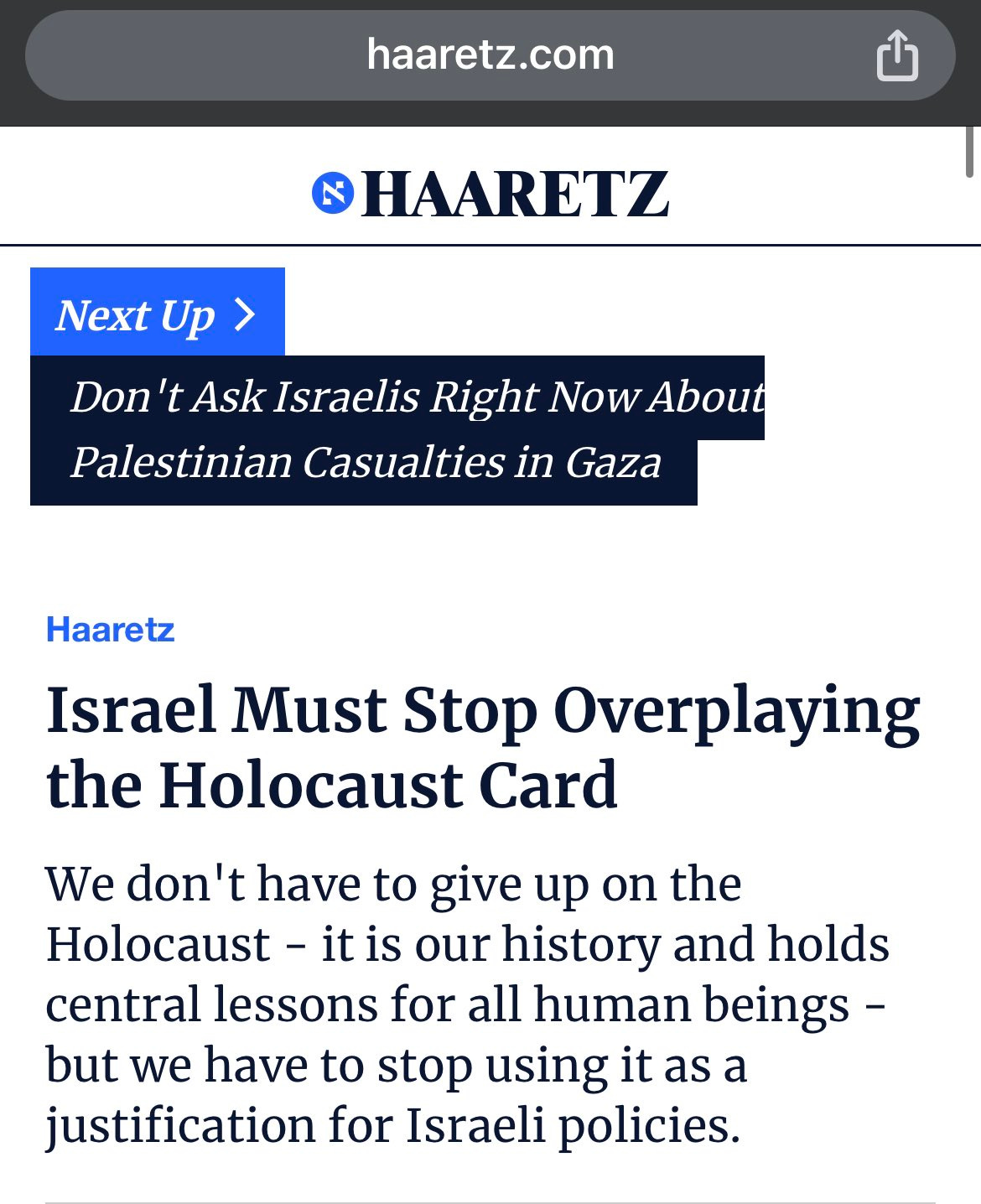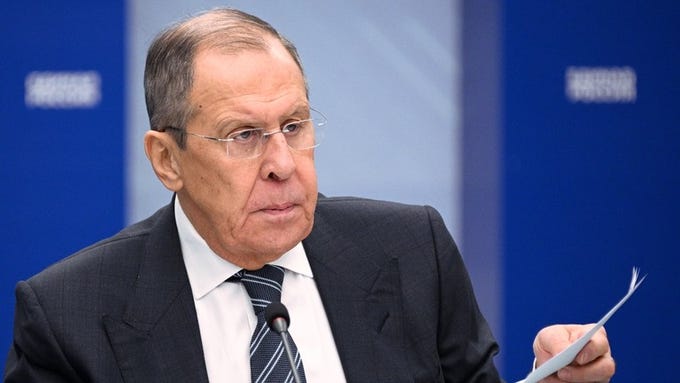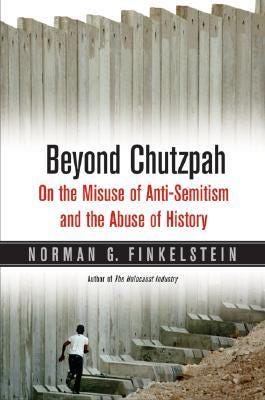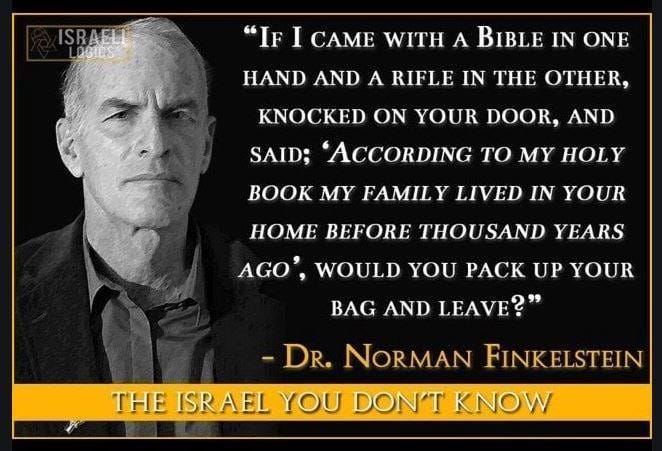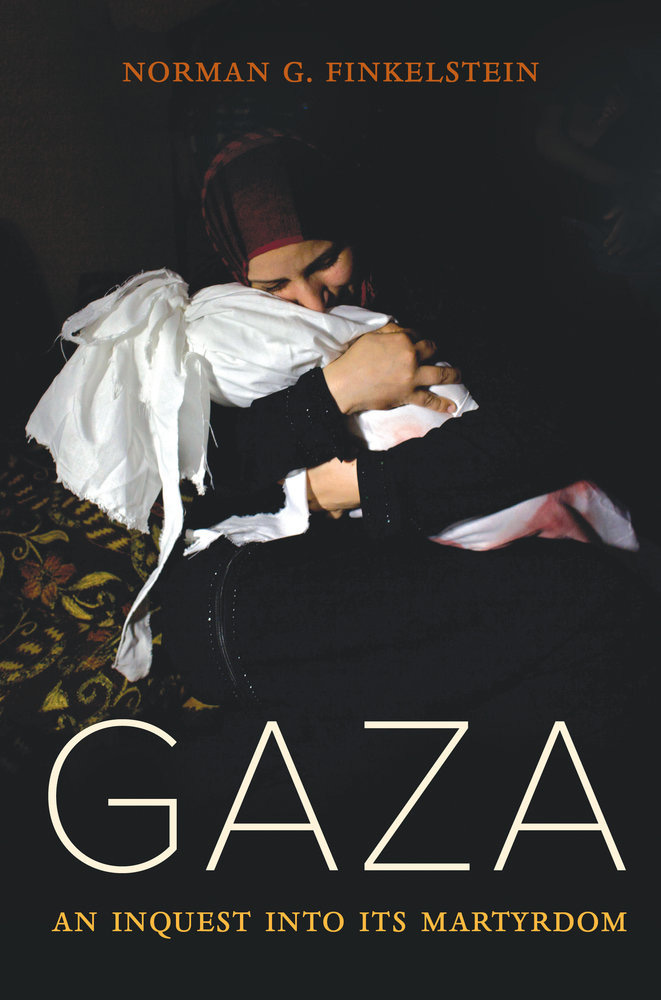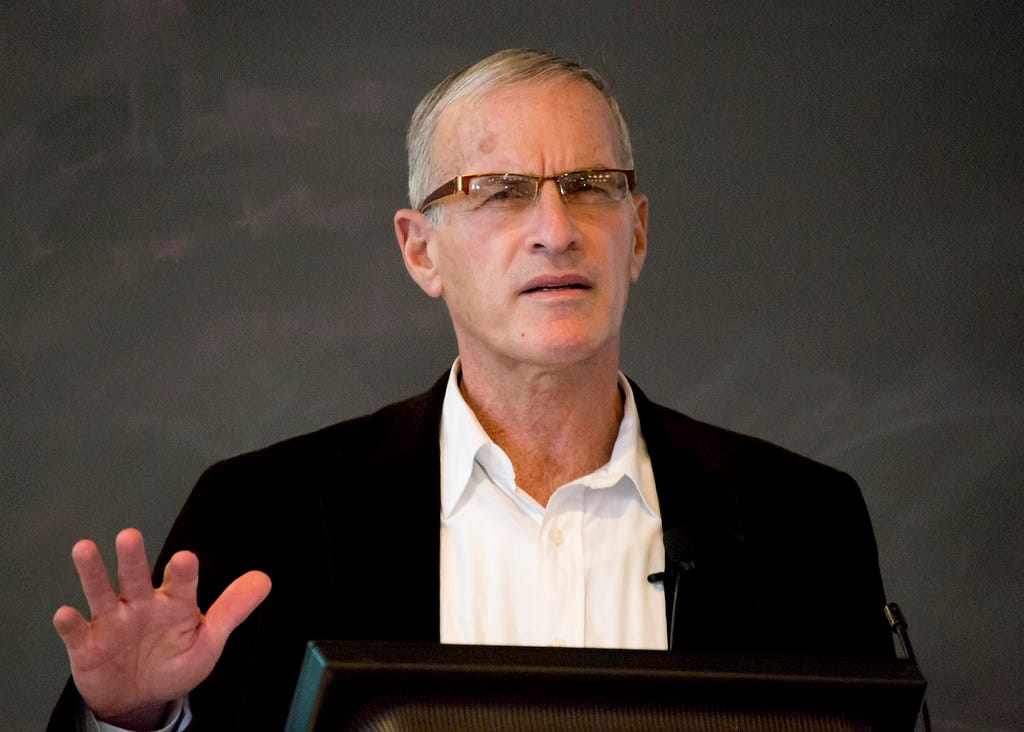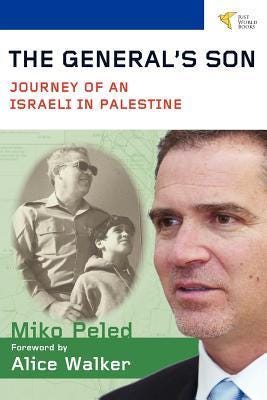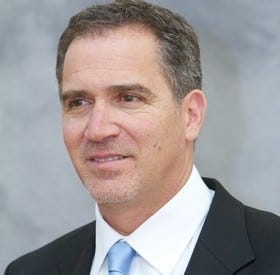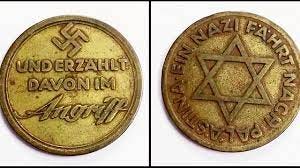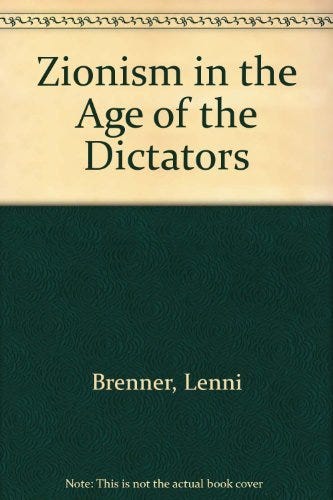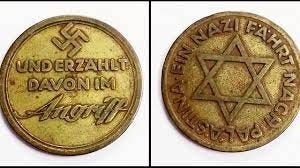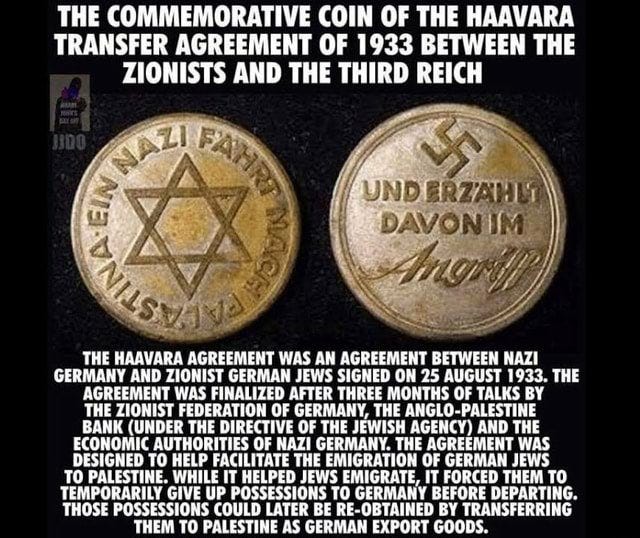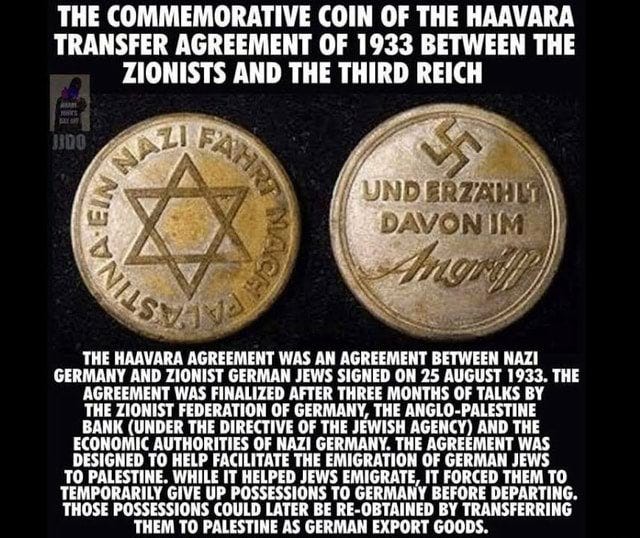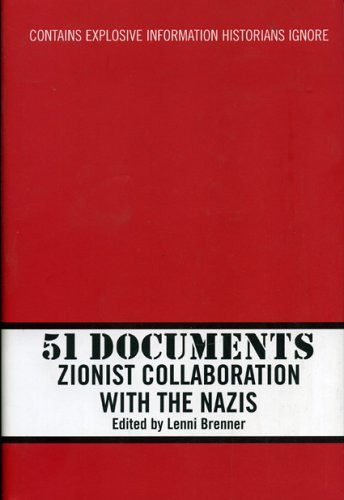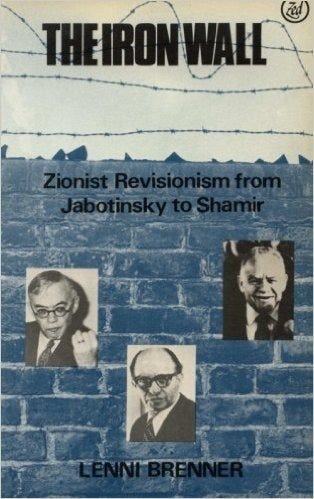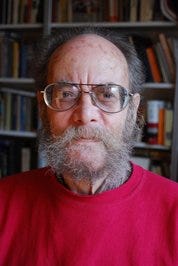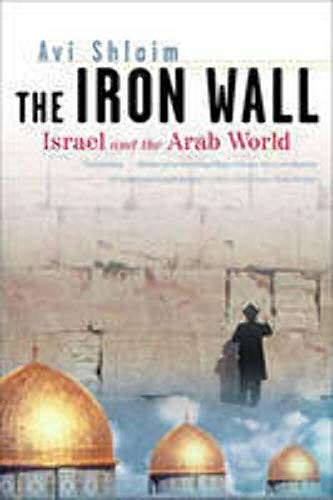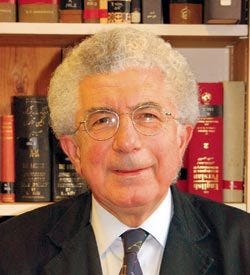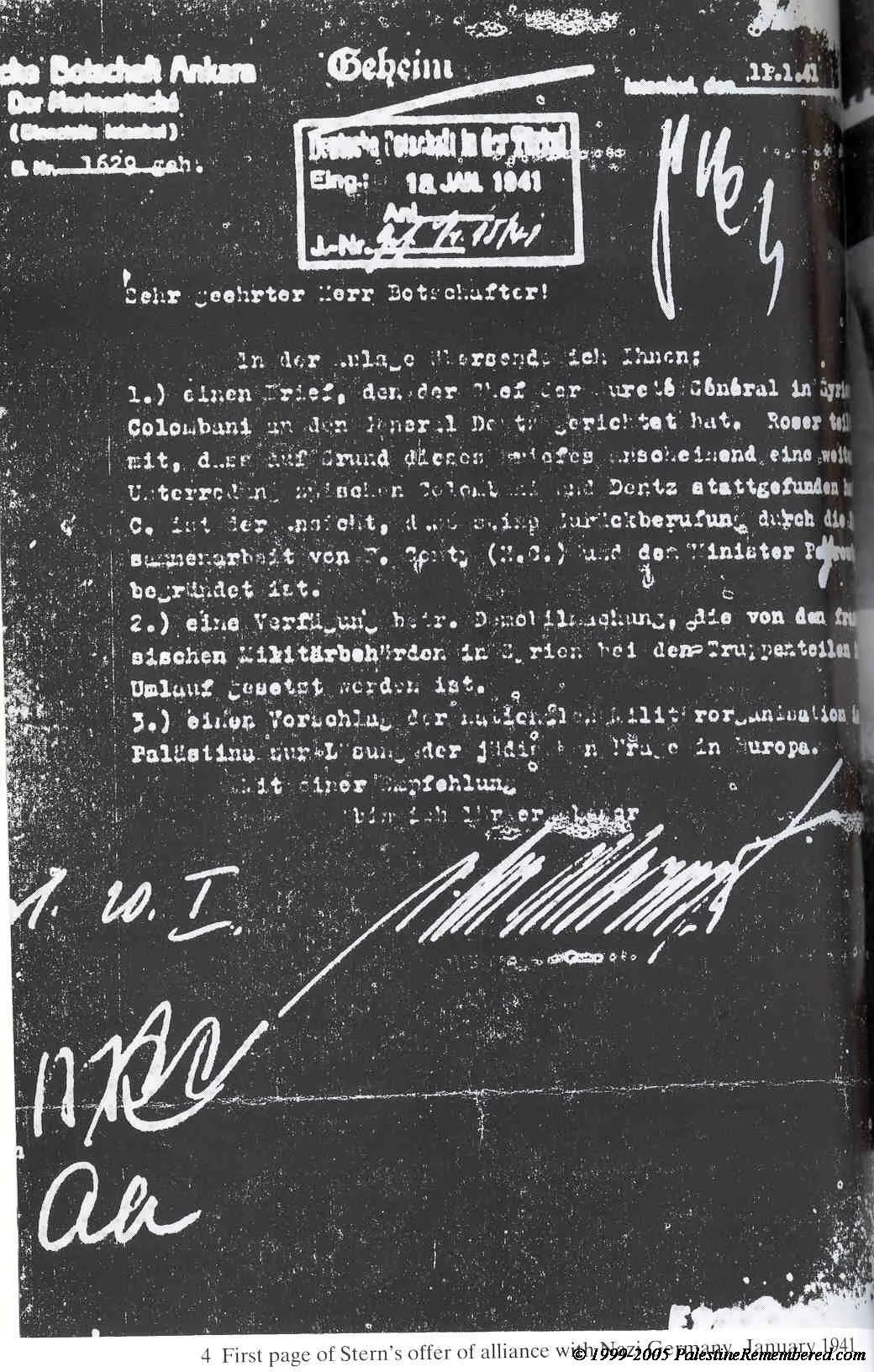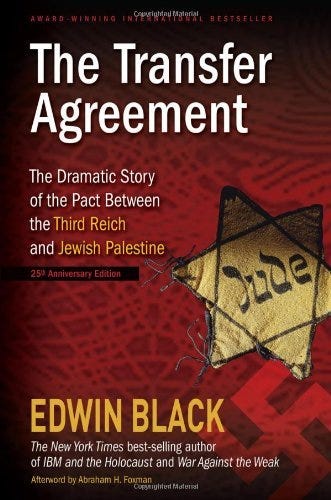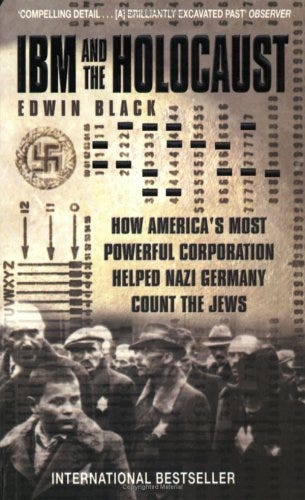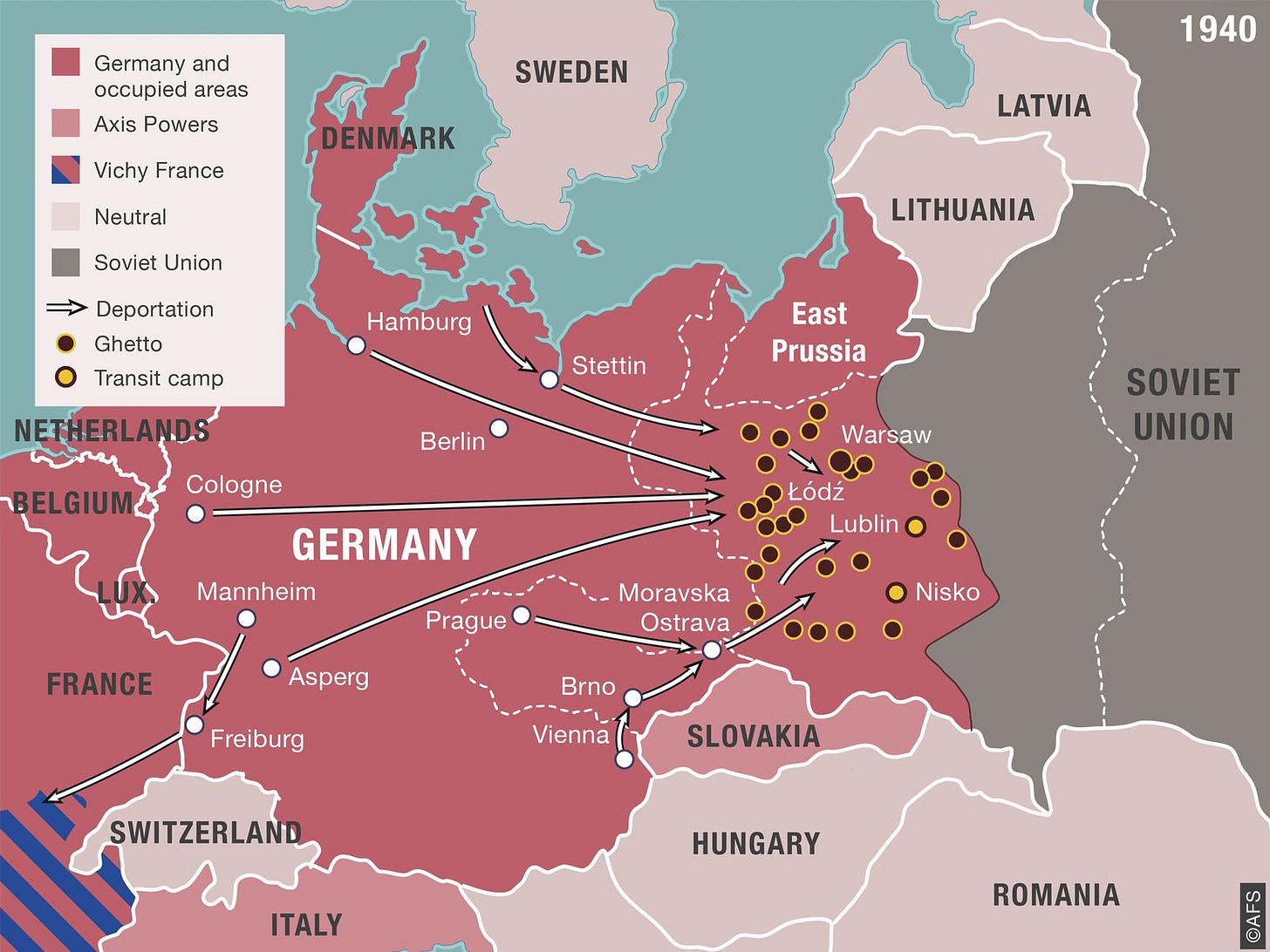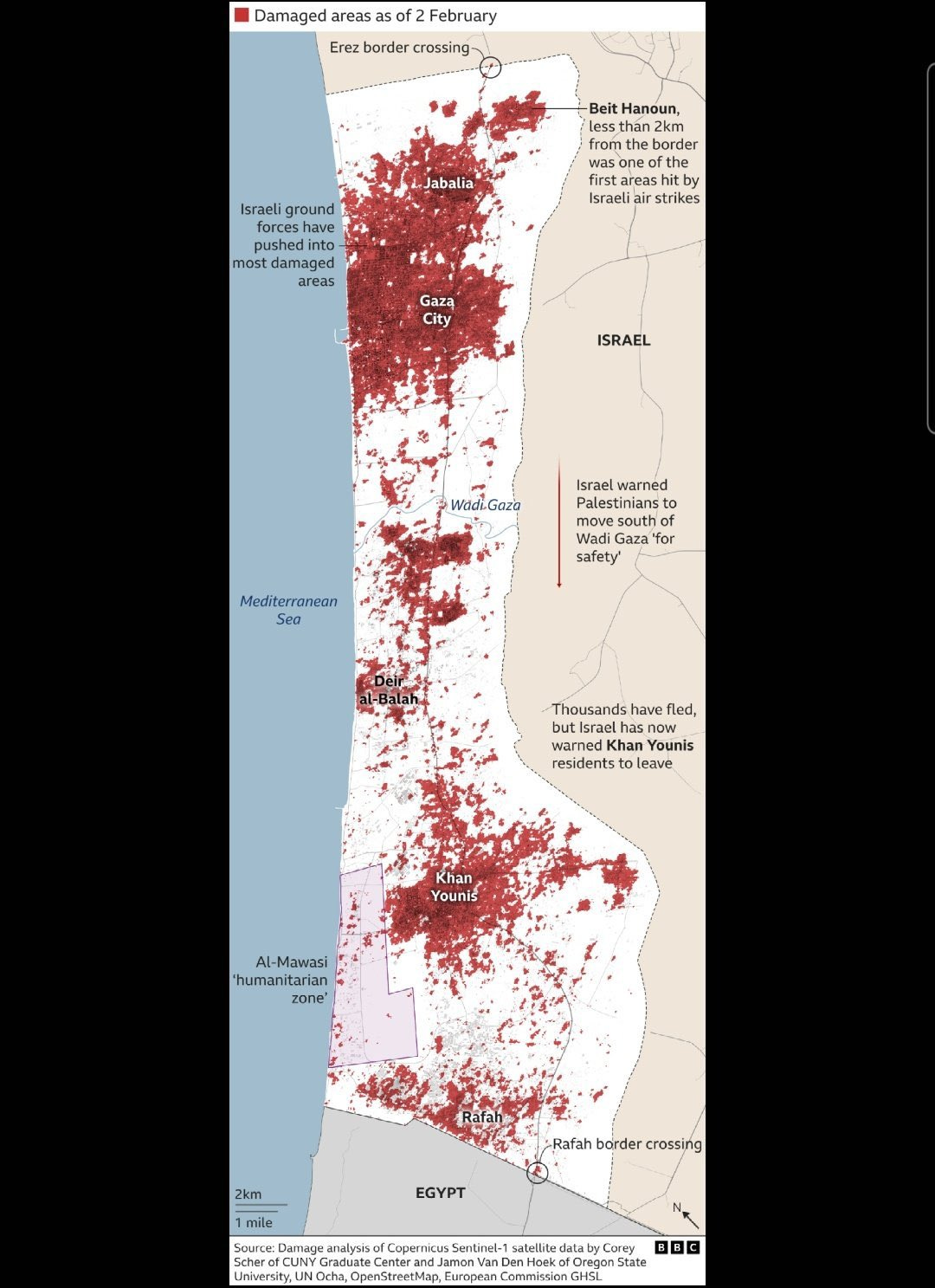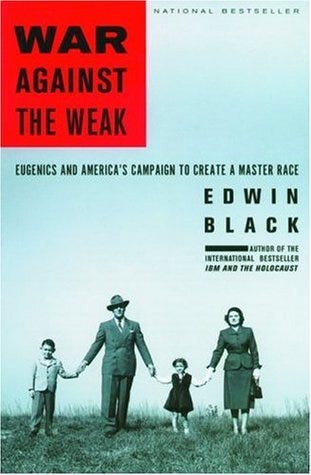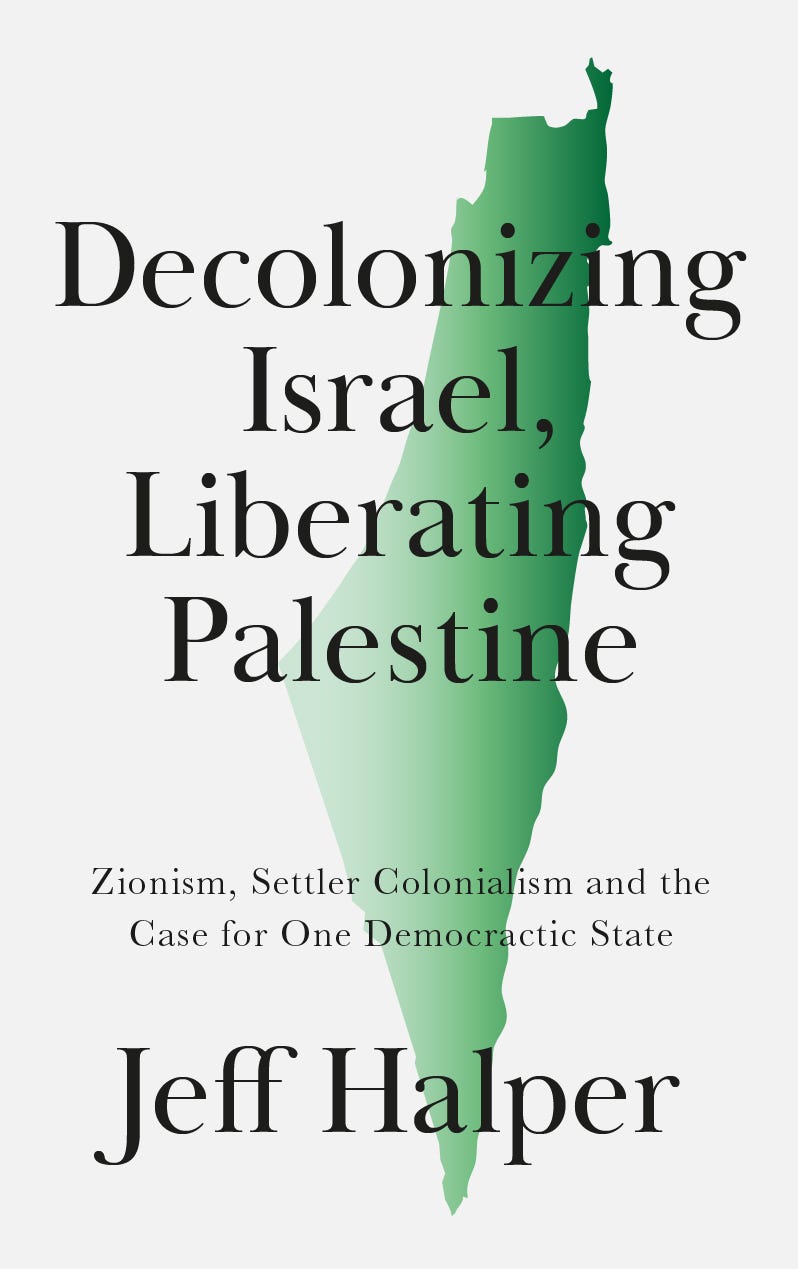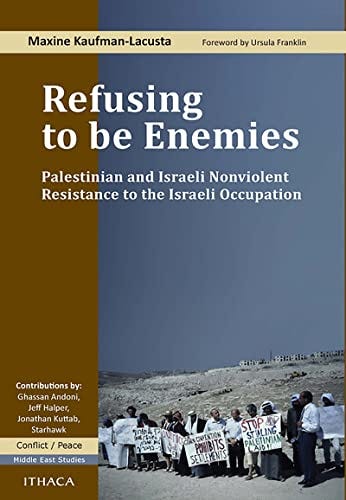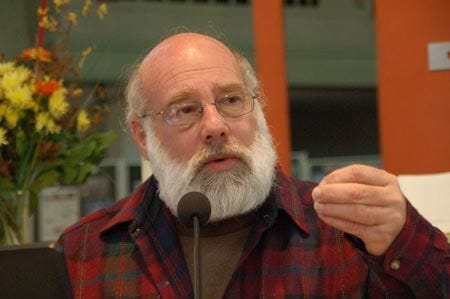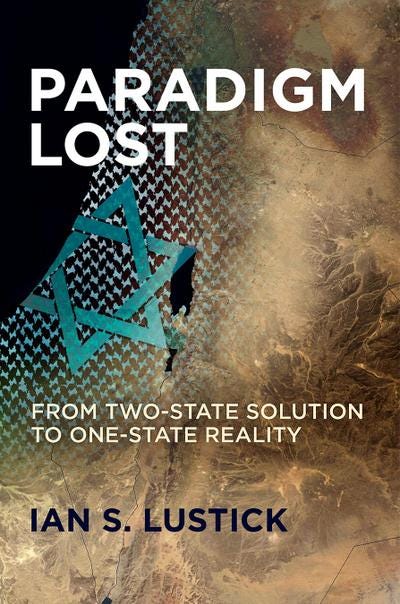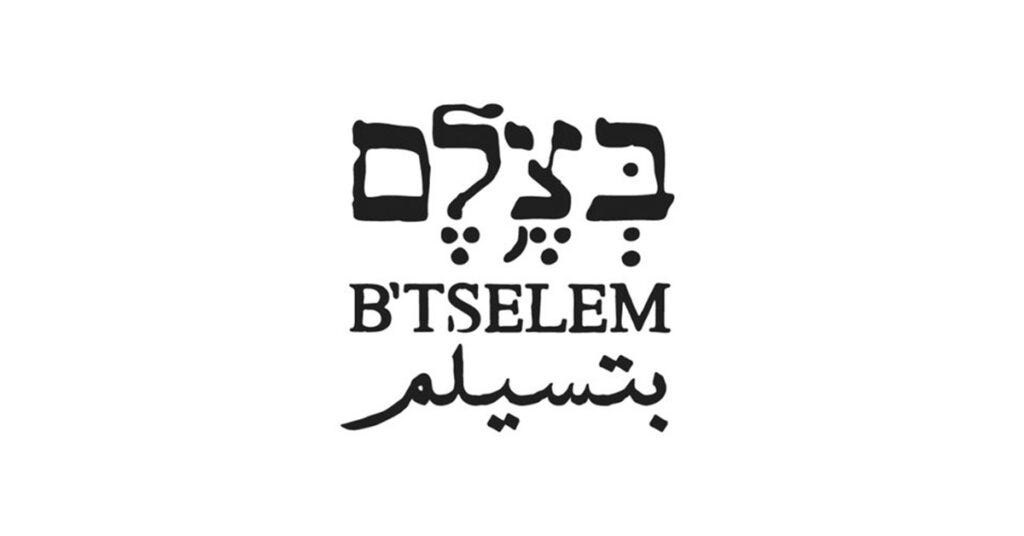Palestine Report Reading List
In this Time of Crisis, it is crucial that the World Community seriously study the roots of the Palestine Crisis
TRUTH IS SHARED BY THE WORLD COMMUNITY
In this Time of Crisis, it is crucial that the World Community seriously study the roots of the Palestine Crisis.
Over time, I will compile news and historical archival research reading/study lists that I encourage the World Community to use.
This reading/study list covers a survey of important, historical, books, journals, and current news research along with in-depth research by courageous scholars who have spent their lives challenging the official narratives while attempting to tell the story of Zionism’s Tragedy that created Palestine’s Agony.
“Anti-semitism means the hatred of Jews as Jews for what they believe. Judaism is a religion. Zionism is a political movement that is now the dominant political movement of the state of Israel—with its military, its nuclear arsenal, and its continuing genocide in Gaza.”
—Phyllis Bennis, fellow at the Institute for Policy Studies and advisor to Jewish Voice for Peace.
Research on Zionist Israeli Propaganda Operations by Asa Winstanley
Meticulously researched while reading like a fast-paced thriller, this explosive new book details the way the Israel lobby deployed charges of anti-Semitism to destroy Jeremy Corbyn’s bid for power as leader of the Labour Party.
In an electrifying account, investigative journalist Asa Winstanley shows how Labour’s anti-Semitism crisis was manufactured by pro-Israel groups. Despised and feared by Israel and its allies because of his long-standing support for the Palestine solidarity movement, Jeremy Corbyn became a target of enemies determined to abort his left-wing project.
Drawing on new interviews with many of those victimized in purges the Labour leadership claimed were necessary to tackle anti-Semitism, Winstanley exposes a plot by the Israel lobby, in alliance with the Labour right and Israeli and British intelligence agencies, to prevent a socialist entering Downing Street.
An essential historical corrective, Weaponising Anti-Semitism shines light into the murkiest corners of the British state and those who work with it.
FACES OF TRUE COURAGE
Ahed Tamimi, who was locked up at 16 for slapping an Israeli soldier, was reportedly detained overnight. Listen to her speak in 2022 about the 12,000 Palestinian children Israel has imprisoned since 2000.
Source: Gaza’s #GreatReturnMarch 1 Year On: Ahed Tamimi-Israeli Occupation WILL FALL!
Zionist Apartheid Regime along with its US and Collective Supporters Have Shamed Themselves Forever.
Historical Record Remains: PAST IS PROLOGUE
Based on the historical record of Zionism's long bloody colonization of Palestine, this brave young girl along with these children, maybe the older girls possibly would also been raped or shot by those "courageous Zionist soldiers, aka, Stern Gang, Irgun, Hagana, Palmach = now today's 'Moral IDF Army."
The "Moral IDF Army" has yet to fight a major peer strategic army. It specializes in being a Gaza Concentration Camp Prison Guard.
Why? Your US and collective west taxpayer monies along with western "leaders" support the Zionist cause in exchange for political backing, hence, US naval carrier task force sitting off the coast of Gaza protecting Israel's "Moral IDF Army's" methodical slaughter of the people of Gaza.
This grotesque scene in today's MSM propaganda jargon is "fighting Hamas terrorism."
So, in collective western MSM, US and Zionist national security state terrorism is NOT to be talked about. But, of course, there are video cameras today, but even that would not have stopped Israel's "Moral Army."
For more on Israel's "Moral Army" as defending Mideast's only "outpost of Democracy", recommend a close reading these histories herein.
Child killed every 10 minutes in Gaza – WHO chief
The situation in the Palestinian enclave is “impossible to describe,” the head of the UN health watchdog says
The continued Israeli military campaign in Gaza has devastated the Palestinian enclave’s healthcare system and has led to heavy losses among the civilian population, including children, the head of the World Health Organization (WHO), Tedros Adhanom Ghebreyesus, told the UN Security Council on Friday.
Since the start of the Israeli operation on October 7, the WHO has verified more than 250 attacks on the healthcare system in Gaza and the West Bank, including medical facilities, ambulances and patients, Ghebreyesus said, adding that the medical system in Gaza was “on its knees.” A total of 25 attacks on healthcare targets in Israel were reported over the same period, he added.
The situation in the Palestinian enclave is “impossible to describe,” the WHO chief said, adding that around 1.5 million people had to leave their homes, with tens of thousands of them having to seek shelter in hospitals and schools, which inevitably become overcrowded.
People are looking for shelter “anywhere they can find it,” Ghebreyesus said, adding that “nowhere and no one is safe” in Gaza. The Israeli bombardments and airstrikes, as well as the ongoing ground operation, have resulted in more than 10,800 deaths in Gaza, Ghebreyesus said. Most of those killed were women and children, he added.
The WHO chief also relayed a stark statistic: “On average, a child is killed every ten minutes in Gaza.”
Israel maintained it was making efforts to ease the humanitarian crisis in the Palestinian enclave. Its ambassador to the UN, Gilad Erdan, told the Security Council on Friday that his nation had created a special task force to establish hospitals in the southern part of the enclave.
“Israel is in advanced talks with the United Arab Emirates, with the ICRC and with other European countries regarding the establishment of field-hospital and floating-hospital ships,” the diplomat stated, adding that West Jerusalem had also “facilitated the Jordanian airdrop of medical aid to hospitals in northern Gaza.”
Erdan then said that Israel was supposedly doing more for Gaza than the WHO itself or any other UN body, for that matter.
Washington –West Jerusalem’s key ally– admitted on Friday that the Israeli actions had resulted in a massive number of casualties in Gaza. “Far too many” Palestinians have died in Israel’s retaliatory campaign against the Gaza-based Hamas militant group, US Secretary of State Antony Blinken said on Friday. The US has been seeking to convince Israel to introduce longer “humanitarian pauses,” in particular to facilitate humanitarian aid deliveries to the enclave.
Past is Prologue
For more historical background on US and collective western state terrorism:
US national security state terrorism
also see
Past is Prologue: April is the Cruelest Month for Nazis and Imperialists: A History of Two Wars
Ten Myths About Israel
Ilan Pappé
This is an excellent introduction to the story of Zionism’s Tragedy that created Palestine’s Agony.
ebook version:
The myths and reality behind the state of Israel and Israeli-Palestinian conflict—from “the most eloquent writer on Palestinian history” ( New Statesman )
In this groundbreaking book, published on the fiftieth anniversary of the Occupation, the outspoken and radical Israeli historian Ilan Pappe examines the most contested ideas concerning the origins and identity of the contemporary state of Israel.
The “ten myths” that Pappe explores—repeated endlessly in the media, enforced by the military, accepted without question by the world’s governments—reinforce the regional status quo. He explores the claim that Palestine was an empty land at the time of the Balfour Declaration, as well as the formation of Zionism and its role in the early decades of nation building. He asks whether the Palestinians voluntarily left their homeland in 1948, and whether June 1967 was a war of “no choice.” Turning to the myths surrounding the failures of the Camp David Accords and the official reasons for the attacks on Gaza, Pappe explains why the two-state solution is no longer viable.
The Ethnic Cleansing of Palestine
Ilan Pappé
ISBN 9781851684670 (ISBN10: 1851684670)
ebook version:
Since the Holocaust, it has been almost impossible to hide large-scale crimes against humanity. In our communicative world, few modern catastrophes are concealed from the public eye. And yet, Ilan Pappe unveils, one such crime has been erased from the global public memory: the ethnic cleansing of the Palestinians in 1948. But why is it denied, and by whom? The Ethnic Cleansing of Palestine offers an investigation of this mystery.
The Idea of Israel: A History of Power and Knowledge
Ilan Pappé
ebook version:
Since its foundation in 1948, Israel has drawn on Zionism, the movement behind its creation, to provide a sense of self and political direction. In this groundbreaking new work, Ilan Pappé looks at the continued role of Zionist ideology. The Idea of Israel considers the way Zionism operates outside of the government and military in areas such as the country’s education system, media, and cinema, and the uses that are made of the Holocaust in supporting the state’s ideological structure.
In particular, Pappé examines the way successive generations of historians have framed the 1948 conflict as a liberation campaign, creating a foundation myth that went unquestioned in Israeli society until the 1990s. Pappé himself was part of the post-Zionist movement that arose then. He was attacked and received death threats as he exposed the truth about how Palestinians have been treated and the gruesome structure that links the production of knowledge to the exercise of power. The Idea of Israel is a powerful and urgent intervention in the war of ideas concerning the past, and the future, of the Palestinian–Israeli conflict.
A History of Modern Palestine: One Land, Two Peoples
Ilan Pappé
ebook version:
Ilan Pappe's book traces the history of Palestine from the Ottomans in the nineteenth century, through the British Mandate, the establishment of the state of Israel in 1948, and the subsequent wars and conflicts which have dominated this troubled region. The second edition of Pappe's book has been updated to include the dramatic events of the 1990s and the early twenty-first century. These years, which began with a sense of optimism, as the Oslo peace accord was being negotiated, culminated in the second intifada and the increase of militancy on both sides. Pappe explains the reasons for the failure of Oslo and the two-state solution, and reflects upon life thereafter as the Palestinians and Israelis battle it out under the shadow of the wall of separation. As in the first edition, it is the men, women and children of Palestine who are at the centre of Pappe's narrative.
ebook version:
Operation Protective Edge, Israel's most recent assault on Gaza, left thousands of Palestinians dead and cleared the way for another Israeli land grab. The need to stand in solidarity with Palestinians has never been greater. Ilan Pappé and Noam Chomsky, two leading voices in the struggle to liberate Palestine, discuss the road ahead for Palestinians and how the international community can pressure Israel to end its human rights abuses against the people of Palestine. On Palestine is the sequel to their acclaimed book Gaza in Crisis.
Noam Chomsky, Ilan Pappé, Frank Barat (Editor)
https://www.goodreads.com/en/book/show/23129811
ebook version:
Following his critically acclaimed investigation of the ethnic cleansing of Palestine in the 1940s, renowned Israeli historian Ilan Pappe turns his attention to the annexation and occupation of Gaza and the West Bank, bringing us the first comprehensive critique of the Occupied Territories.
Based on groundbreaking archival research, NGO records, and eyewitness accounts, Pappe's investigation of the "bureaucracy of evil" explores the brutalizing effects of occupation, from the systematic abuse of human and civic rights, the IDF roadblocks, mass arrests, and house searches to the forced population transfer, the settlers, and the infamous wall that is rapidly turning the West Bank into an open prison. Providing a sharp contrast with life in Israel, this is a brilliantly incisive and moving portrait of daily life in the Occupied Territories.
About the Author and Scholar
lan Pappé is a professor with the College of Social Sciences and International Studies at the University of Exeter in the UK, director of the university's European Centre for Palestine Studies, co-director of the Exeter Centre for Ethno-Political Studies, and political activist. He was formerly a senior lecturer in political science at the University of Haifa (1984–2007) and chair of the Emil Touma Institute for Palestinian and Israeli Studies in Haifa (2000–2008).
Pappé is one of Israel's "New Historians" who, since the release of pertinent British and Israeli government documents in the early 1980s, have been rewriting the history of Israel's creation in 1948, and the corresponding expulsion or flight of 700,000 Palestinians in the same year. He has written that the expulsions were not decided on an ad hoc basis, as other historians have argued, but constituted the ethnic cleansing of Palestine, in accordance with Plan Dalet, drawn up in 1947 by Israel's future leaders. He blames the creation of Israel for the lack of peace in the Middle East, arguing that Zionism is more dangerous than Islamic militancy, and has called for an international boycott of Israeli academics.
His work has been both supported and criticized by other historians. Before he left Israel in 2008, he had been condemned in the Knesset, Israel's parliament; a minister of education had called for him to be sacked; his photograph had appeared in a newspaper at the centre of a target; and he had received several death threats
Related Historical Research:
Israelis in their own words: Israel’s First Prime Minister David Ben-Gurion:
"The strategic objective [of the Jewish forces] was to destroy the urban communities, which were the most organized and politically conscious sections of the Palestinian people. This was not done by house-to-house fighting inside the cities and towns, but by the conquest and destruction of the rural areas surrounding most of the towns. This technique led to the collapse and surrender of Halfa, Jaffa, Tiberias, Sated, Acre, Beit-Shan, Lydda, Ramleh, Majdal, and Beersheba. Deprived of transportation, food, and raw materials, the urban communities underwent a process of disintegration, chaos, and hunger, which forced them to surrender."
State of Terror
Thomas Suárez
ISBN 10: 191107203X ISBN 13: 9781911072034
STATE OF TERROR: HOW TERRORISM CREATED MODERN ISRAEL ebook version
State Of Terror: How Terrorism Created Modern Israel [1st Ed.] 191107203X, 9781911072034, 1134653611, 9781911072164, 1566560683, 9781566560689
State of Terror: Suarez, Thomas: 9781911072034: Amazon.com: Books
State of Terror - Thomas Suarez: 9781911072034 - AbeBooks
State of Terror: How Terrorism Created Modern Israel by Thomas Suárez | Goodreads
True History is Ironic: Did you know that in the 1930s Zionist Jews collaborated with Nazis to transfer selected pro-Zionist Jews to Palestine and even murdered anti-Zionist Jews in the process?
What you don’t know about real history of Zionist Israel will change your entire views about present day “Israel.”
This book is a must read for understanding how the Israeli Zionist State Terrorist Regime evolved historically.
Reviews:
This new book shows how the use of terror by supporters of the idea of a Jewish state in Palestine was systematic, routine, and accepted by Jewish leaders as necessary to achieve their aims. At the height of the British Mandate in Palestine, terrorist acts were carried out at a frequency and with an intensity that has been largely forgotten, even though daily newspaper headlines in the US, Britain, and Palestine spoke of bombings, assassinations, and massacres against Arabs and British civilians, as well as soldiers. Suarez tells this story using the terrorists' own accounts in secret internal papers boasting of their successes, and quoting from contemporary intelligence briefings and secret diplomatic correspondence.
Related Historical Research:
Zionist Militia’s Efforts to Recruit Nazis in Fight Against the British Are Revealed
The Haganah interrogated members of the Lehi in 1942 – and the recently released transcripts shed light on a dark chapter in the right-wing militia’s history: ‘Stern said that in war, there’s no room for sentiment’
by Ofer Aderet
In 1942, Haganah fighters kidnapped Efraim Zetler, a member of the Lehi militia, outside his father’s home in Kfar Sava. “They drove him around for an hour… holding him, blindfolding him and tying his legs together,” his father said later. “On the way, they changed cars and then took him to an orchard and brought into a packing house where they sat him on some empty boxes while blindfolded.” Over the next 20 days, the 18-year-old Zelter was questioned about his role in the extremist group, which was led by Avraham “Yair” Stern, who would be killed by the British later that…
Read more»>
https://www.haaretz.com/israel-news/2023-06-21/ty-article-magazine/.highlight/zionist-military-org-efforts-to-recruit-nazis-in-fight-against-the-british-are-revealed/00000188-d93a-d5fc-ab9d-db7ae0ea0000
Sources:
https://twitter.com/dancohen3000/status/1712945539203866957
As Israel continues to pound Gaza into dust, MintPress compiles some of the most genocidal statements made by senior Israeli officials, proving that their intent is to ethnically cleanse Gaza of its population.
The United States has handed Israel, one of the richest countries in the world, an average of $3.5 billion a year in "Aid" for the past 70 years The Palestinians, meanwhile, have received less than $1.7 billion a year from across the entirety of all international donors.
source: (5) Chay Bowes on X: "The United States has handed Israel, one of the richest countries in the world, an average of $3.5 billion a year in "Aid" for the past 70 years The Palestinians, meanwhile, have received less than $1.7 billion a year from across the entirety of all international donors. https://t.co/KV7GOKpJve" / X (twitter.com)
Netanyahu's son hides in Florida during Gaza war Yair Netanyahu, aged 32 and the son of Benjamin Netanyahu, hides discreetly within a luxurious Florida high-rise, where the monthly rent amounts to $5,000. Yair is protected by Israeli Shin Bet bodyguards stationed at his apartment.
Source: (5) MintPress News on X: "Netanyahu's son hides in Florida during Gaza war Yair Netanyahu, aged 32 and the son of Benjamin Netanyahu, hides discreetly within a luxurious Florida high-rise, where the monthly rent amounts to $5,000. Yair is protected by Israeli Shin Bet bodyguards stationed at his… https://t.co/eS4fb1iFJo" / X (twitter.com)
Elon Musk, Benjamin Netanyahu, and Yair Netanyahu were reported to have met on February 4, 2025, in an elegant setting
Elon Musk, Benjamin Netanyahu, and Yair Netanyahu were reported to have met on February 4, 2025, in an elegant setting, as evidenced by multiple social media posts and images. The meeting has sparked various interpretations, from viewing it as a diplomatic engagement to discussions potentially involving AI and antisemitism, though exact details remain unconfirmed.
Source:
Elon Musk Meets Netanyahu and Son: Diplomatic or Tech Talk? / X
https://x.com/i/trending/1886930074282176869
Source: MintPress News on X: "Criminal accusations are being filed against Israeli President Isaac Herzog while he is in Davos, Switzerland, for the World Economic Forum. https://t.co/hbatjoMVwO" / X (twitter.com)
The flyers make the following threat;
"You have one last chance to escape to Jordan in an orderly manner, after which we will kill every enemy and forcibly expel you from our holy land Take your belongings with you immediately, and leave because we are about to arrive”
Source: (2) Sulaiman Ahmed on X: "BREAKING: ISRAELI SETTLERS THREATEN PALESTINIANS IN THE WEST BANK TO LEAVE OR THEY WILL KILL THEM The flyers make the following threat; "You have one last chance to escape to Jordan in an orderly manner, after which we will kill every enemy and forcibly expel you from our holy… https://t.co/rZgfWTPEub" / X (twitter.com)
Zionist “Israel” is NOT a Democracy but a Racist Ethnocracy
Zionist “Israel” a Racist Apartheid Colonial Regime Colonized Palestine and Implemented Apartheid Race Laws same as Apartheid White Racist South Africa
‘Israel is definitely not a democratic state, but it’s also not a Jewish state. Israel is only Jewish in the same way South Africa was white. It is not Jewish by religion, it is only Jewish by supremacy, by ethnicity’ -Israeli dissident Ronnie Barkan
Gaza Slaughter
Is this the beginning of the end of the Zionist Israel project? Prof. Ilan Pappé
On this episode of Going Underground, we speak to Professor Ilan Pappé, renowned Israeli historian and director of the European Centre for Palestine Studies at the University of Exeter. He discusses why the Israeli public has been incapable of showing compassion for the people killed in Gaza by Israeli bombardment and for Palestinians living under occupation since 1948, why we may be witnessing the beginning of the end of the Zionist Israel project, and the two ways the occupation of Palestine can go from here, how the leaders of the UK, US, and EU are sending a message of ‘we absolve you’ to Israel as it bombs civilians, why Russia and China still stick to a two-state solution, and much more.
The Hundred Years' War on Palestine: A History of Settler-Colonial Conquest and Resistance, 1917-2017
A landmark history of one hundred years of war waged against the Palestinians from the foremost US historian of the Middle East, told through pivotal events and family history.
In 1899, Yusuf Diya al-Khalidi, mayor of Jerusalem, alarmed by the Zionist call to create a Jewish national home in Palestine, wrote a letter aimed at Theodore Herzl: the country had an indigenous people who would not easily accept their own displacement. He warned of the perils ahead, ending his note, "in the name of God, let Palestine be left alone." Thus Rashid Khalidi, al-Khalidi's great-great-nephew, begins this sweeping history, the first general account of the conflict told from an explicitly Palestinian perspective.
Drawing on a wealth of untapped archival materials and the reports of generations of family members - mayors, judges, scholars, diplomats, and journalists - The Hundred Years' War on Palestine upends accepted interpretations of the conflict, which tend, at best, to describe a tragic clash between two peoples with claims to the same territory. Instead, Khalidi traces a hundred years of colonial war on the Palestinians, waged first by the Zionist movement and then Israel, but backed by Britain and the United States, the great powers of the age. He highlights the key episodes in this colonial campaign, from the 1917 Balfour Declaration to the destruction of Palestine in 1948, from Israel's 1982 invasion of Lebanon to the endless and futile peace process.
Original, authoritative, and important, The Hundred Years' War on Palestine is not a chronicle of victimization, nor does it whitewash the mistakes of Palestinian leaders or deny the emergence of national movements on both sides. In reevaluating the forces arrayed against the Palestinians, it offers an illuminating new view of a conflict that continues to this day.
The Iron Cage: The Story of the Palestinian Struggle for Statehood
At a time when a lasting peace between the Palestinians and the Israelis seems virtually unattainable, understanding the roots of their conflict is an essential step in restoring hope to the region. In The Iron Cage, Rashid Khalidi, one of the most respected historians and political observers of the Middle East, homes in on Palestinian politics and history.
The story of the Palestinian search to establish a state begins in the mandate period immediately following the breakup of the Ottoman Empire, the era of British control, when fledgling Arab states were established by the colonial powers with assurances of eventual independence. Mandatory Palestine was a place of real promise, with unusually high literacy rates among men and a relatively advanced economy. But the British had already begun to construct an iron cage to hem in the Palestinians and the Palestinian leadership made a series of errors including their overwhelming support of Hitler and the genocide of the Jews, that would eventually prove crippling to their dream of independence.
Brokers of Deceit: How the U.S. Has Undermined Peace in the Middle East
An examination of the failure of the United States as a broker in the Palestinian-Israeli peace process, through three key historical moments
Widely considered the foremost historian of the modern Middle East, Rashid Khalidi here zeroes in on the United States’ role as a purportedly impartial honest broker in thirty-five years of a failed Palestinian-Israeli peace process. Khalidi closely analyzes the “Reagan Plan” of 1982, the 1991–1993 period covering the Madrid Peace Conference to the signing of the Oslo Accords, and President Obama’s retreat from his initially firm positions on the preconditions for a resolution to the Palestinian-Israeli conflict. These three moments reveal how the United States and Israel have colluded to prevent the emergence of a viable Palestinian state and preserve a status quo favorable to Israel. Brokers of Injustice shows why peace in the Middle East has been impossible to achieve: for decades, U.S. policymakers have masqueraded as an unbiased mediator working to bring the two sides together but, in fact, have been brokers of continuing injustice, actively preventing the compromises needed to achieve a just and lasting peace between Palestinians and Israelis.
Israel: ‘A Failed Settler-Colonial Project'
May 10, 2018
Seventy years after the Nakba, Israel is in many ways a failed settler-colonial project.
With the replacement of Palestine by Israel and the expulsion of most of its Arab population in 1948, it appeared that the Zionist dream had become a reality. A Jewish state had arisen, and there was no competing Palestinian state; ethnic cleansing had produced a massive demographic transformation, and the land of all those “absent” Arabs could be appropriated. The Zionists' hope and expectation was that the refugees would simply disappear, and that even the memory that this had been an Arab-majority country for more than a millennium could be effaced. As Golda Meir put it, “There were no such thing as Palestinians… They did not exist.” It seemed that the colonial-settler ideal had been realized: The natives were gone, there was plenty of space, their beautiful stone houses could be repurposed, and their “khummus” could be rebranded and mispronounced.
Taking the long view, however, things look quite different. From this perspective, it is clear that for all the power of the Israeli military and its lethal security services, the vibrancy of Israel's economy, and the aggressive potency of Israeli nationalism, this is in many ways a failed colonial-settler project. As the historian Patrick Wolfe has written, “Settler colonies were (are) premised on the elimination of native societies… The colonizers come to stay: invasion is a structure not an event” (emphasis added). In Palestine, however, the native society has not been eliminated. Palestine is not “as Jewish as England is English,” as Chaim Weizmann once candidly expressed Zionist aims.
Instead, the population of the entire country from the river to the sea, unified by decades of occupation and colonization since 1967, is today at least half Palestinian, and that proportion is growing. The natives are still there, and they are restless. Those Palestinians who have managed to remain in historic Palestine—in spite of the ceaseless efforts to dispossess them—continue to resist erasure. Outside of Palestine, an equal number remain profoundly attached to their homeland and to the right of return. The Palestinians have not forgotten, they have not gone away, and the memory of Palestine and its dismemberment has not been effaced. Indeed, wider international audiences are increasingly aware of these realities.
Nevertheless, the situation in Palestine today seems gloomy. The Palestinian national movement is in an advanced state of dilapidation and without a strategy, and the Palestinian people are physically fragmented. The occupation and its evil stepchild, the never-halted colonization of Palestine, is proceeding apace. For decades now, the bulldozers have not stopped working for a moment. Unarmed Palestinians are shot down with impunity, with thousands wounded and scores killed in Gaza just in recent weeks. Meanwhile, Israel's vital connection with its long-time enablers in the American metropole is stronger than ever in the era of Trump and Bibi.
However, two new phenomena have ominous implications for the Zionist colonial-settler project and for the Greater Israel movement that dominates Israel. The first has developed among Palestinians, who understand the futility of the approach of both wings of their national movement, those located in Ramallah and Gaza. Instead of futile diplomacy and pointless and easily exploited armed resistance, nonviolent grass-roots movements are growing stronger. They range from the boycott, divestment, and sanctions (BDS) movement to the kind of marches we've seen for the past several weeks in Gaza. Despite what we're told in the media, Palestinians have long employed nonviolent tactics in their quest for liberation. Like the ground-up, community-based, and mainly nonviolent resistance witnessed during the general strike of 1936 and the first intifada from 1987 until the early '90s, this involves a fertile and inventive range of efforts. Such an approach terrifies the Israeli security establishment, which depends on demonizing any Palestinian resistance to absolute Israeli dominance as “terrorism” and then smashing it. As retired Israeli Maj. Gen. Amos Gilad said of Israel's response to Palestinian nonviolence, “We don't do Gandhi very well.”
The other new development is in the United States. The growing dissent from the consensus of idiocy on Palestine that grips most of the US political and media class is a remarkable phenomenon. This dissent encompasses universities and colleges, most recently Barnard, where a resolution supporting divestment from companies that benefit from the oppression of Palestinians passed overwhelmingly. It includes the Movement for Black Lives, whose platform includes a clear rejection of Israeli apartheid practices and the overlapping tactics and ideologies of the Israeli and US police states. It also includes the Democratic Party, where the gap between the increasingly enlightened grassroots and a leadership still addled by Israel-advocacy Kool-Aid is growing apace. Most strikingly, however, it is profoundly affecting the American Jewish community, where there is growing revulsion at the increasingly intolerant, illiberal, fundamentalist, and racist cast of Israeli politics and society.
None of this means that we are on the brink of a just peace in Palestine that would enable two peoples to live as equals in the same land. Nevertheless, after seven decades of attempting to replace one people by another, Zionism faces the unsustainability of such a project in the 21st century. Edward Said wrote that, at the outset, Zionism “won the political battle for Palestine in the international world in which ideas, representation, rhetoric, and images were at issue.” It is losing that battle today, which is a cause for optimism for those who seek peace with justice for Palestinians and Israelis.
Rashid Khalidi, Edward Said Professor of Arab Studies at Columbia University, is the editor of the Journal of Palestine Studies. He is the author of several journal articles and books, most recently Brokers of Deceit: How the U.S. Has Undermined Peace in the Middle East.
ABOUT THE AUTHOR:
Rashid Khalidi, Edward Said Professor of Arab Studies at Columbia University, is the editor of the Journal of Palestine Studies. He is the author of several journal articles and books, most recently Brokers of Deceit: How the U.S. Has Undermined Peace in the Middle East.
British policy towards Syria & Palestine, 1906-1914: A study of the antecedents of the Hussein-the [sic] McMahon correspondence, the Sykes-Picot Agreement - Monograph
About the Author and Scholar
Rashid Khalidi is the author of seven books about the Middle East, including Palestinian Identity, Brokers of Deceit, Resurrecting Empire, The Iron Cage, and Sowing Crisis. His writing on Middle Eastern history and politics has appeared in the New York Times, Boston Globe, Los Angeles Times, Chicago Tribune, and many journals. For his work on the Middle East, Professor Khalidi has received fellowships and grants from the John D. and Catherine T. MacArthur Foundation, the Ford Foundation, the Woodrow Wilson International Center for Scholars, the American Research Center in Egypt, and the Rockefeller Foundation, among others. He is the Edward Said Professor of Modern Arab Studies at Columbia University in New York and editor of the Journal of Palestine Studies
Related report
Brief: 28 Days of Genocide
Institute for Palestine Studies
Nov. 3 marks 28 days of accelerated isolation, genocide, and displacement in the Occupied Gaza Strip. During this past week, in particular, Israel has committed hundreds of human rights atrocities. The gravity of the situation is nearly impossible to keep up with.
Israel has been deliberately targeting journalists and their families. 31 journalists in Gaza and one journalist in Lebanon have been killed by Israeli missile strikes. As this article was completed, we learned that an Israeli airstrike killed Palestine TV journalist Mohammad Abu Hatab with 11 members of his family (we backspaced and updated the rising number). On Oct. 25, Wael al-Dahdouh, Al Jazeera's bureau chief in Gaza, was reporting just moments before a bomb targeted the Nuseirat refugee camp in the center of the Strip where his family was seeking refuge after being displaced by the initial bombardment. Several of al-Dahdouh's family members, including his wife, daughter, and grandson, were murdered by the indiscriminate bombing.
Journalists across Occupied Palestine, especially in Gaza, are extremely valuable and key in reporting the reality of the Israeli regime's continued ethnic cleansing and genocide campaign. The escalated deadly attacks on journalists and their loved ones aim to intimidate journalists to stop reporting on the countless massacres being committed against Palestinians. Wael al-Dahdouh and other Palestinian journalists will not succumb to these tactics. Al-Dahdouh stated in a video addressing the public's condolences that it is his duty to continue reporting on the war crimes being committed, regardless of what happens.
Books by Michael Prior
The Bible and Colonialism: A Moral Critique
The biblical claim of the divine promise of land is integrally linked with a divine mandate to exterminate the indigenous people. The narrative has supported virtually all Western colonizing enterprises (e.g. in Latin America, South Africa, Palestine), resulting in the suffering of millions of people, and loss of respect for the Bible. According to modern secular standards of human and political rights, what the biblical narrative calls for are war-crimes and crimes against humanity. In this provocative and compelling study, Prior protests at the neglect of the moral question in conventional biblical studies, and attempts to rescue the Bible from being a blunt instrument in the oppression of people.
Zionism and the State of Israel: A Moral Inquiry
ebook version:
Zionism and the State of Israel provides a topical and controversial analysis of the development of Zionism and the recent history and politics of Israel.
This thought-provoking study examines the ways in which the Bible has been used to legitimize the implementation of the ideological and political programme of Zionism, and the consequences this has had.
Why Endless Wars for Empire?
From the Vietnam Wars to the Mideast Wars
Why is it difficult for Americans to Learn that War is a Racket?
America, Oil, and War in the Middle East
Let our position be absolutely clear: An attempt by any outside force to gain control of the Persian Gulf region will be regarded as an assault on the vital interests of the United States of America, and such an assault will be repelled by any means necessary, including military force.
“Great empires are not maintained by timidity.”
― Tacitus
“Veni, vidi, vici. (I came, I saw, I conquered.)”
― Julius Caesar
Dying to Forget: Oil, Power, Palestine, and the Foundations of U.S. Policy in the Middle East
Irene L. Gendzier presents incontrovertible evidence that oil politics played a significant role in the founding of Israel, the policy then adopted by the United States toward Palestinians, and subsequent U.S. involvement in the region. Consulting declassified U.S. government sources, as well as papers in the H.S. Truman Library, she uncovers little-known features of U.S. involvement in the region, including significant exchanges in the winter and spring of 1948 between the director of the Oil and Gas Division of the Interior Department and the representative of the Jewish Agency in the United States, months before Israel's independence and recognition by President Truman.
Gendzier also shows that U.S. consuls and representatives abroad informed State Department officials, including the Secretary of State and the President, of the deleterious consequences of partition in Palestine. Yet the attempt to reconsider partition and replace it with a UN trusteeship for Palestine failed, jettisoned by Israel's declaration of independence. The results altered the regional balance of power and Washington's calculations of policy toward the new state. Prior to that, Gendzier reveals the U.S. endorsed the repatriation of Palestinian refugees in accord with UNGA Res 194 of Dec. 11, 1948, in addition to the resolution of territorial claims, the definition of boundaries, and the internationalization of Jerusalem. But U.S. interests in the Middle East, notably the protection of American oil interests, led U.S. officials to rethink Israel's military potential as a strategic ally. Washington then deferred to Israel with respect to the repatriation of Palestinian refugees, the question of boundaries, and the fate of Jerusalem—issues that U.S. officials have come to realize are central to the 1948 conflict and its aftermath.
About the Author and Scholar
Irene L. Gendzier, Ph.D. (Columbia University, 1964; M.A., Columbia; B.A., Barnard College), is Professor Emerita in the Department of Political Science at Boston University, an Affiliate in Research at Center for Middle Eastern Studies at Harvard University and a research affiliate of the MIT Center for International Studies.
You'll understand easily why the US admin is complicit or even pushing for the Genocide in Gaza.
A plan looking for a pretext.
Netanyahu presented his plan two weeks before the Hamas attack.
‘Israeli Prime Minister, Benjamin Netanyahu, showing a map of “The New Middle East” without Palestine during his recent speech at the UN.’
Money Talks, Bullshit Walks!!!
Greasing The Skids: Who’s the “Real Terrorists”???
There's huge multi-billion dollar natural gas field off Gaza.
A British company is waiting to develop it for Israel.
In Syria's Golan Heights, occupied by Israel since 1967, subsidiary of Genie Energy (Dick Cheney, etc.) has the exclusive right to the gas!
Indeed.
Bibi's playing the "Suffering Zionist Card" on the world chessboard.
He's pushing it to the limit knowing US Israel Lobbying's influence over collective west will back him.
But to what degree? Zelensky is already being thrown under the bus. Yet, he doesn't have nuclear weapons.
Bottomline:
It's an old story: Struggle Over Real Estate and Capital Controls
Why Endless Wars for Empire?
From the Vietnam Wars to the Mideast Wars
Why is it difficult for Americans to Learn that War is a Racket?
America, Oil, and War in the Middle East
Let our position be absolutely clear: An attempt by any outside force to gain control of the Persian Gulf region will be regarded as an assault on the vital interests of the United States of America, and such an assault will be repelled by any means necessary, including military force.
—Jimmy Carter, state of the union address, Jan. 23, 1980
You'll understand easily why the US admin is complicit or even pushing for the Genocide in Gaza.
Sergeant Hollis’ War
"What's Democracy Got to Do with It?"
The Great Gazan Gas Robbery
JUNE 18, 2009BY ANDY ROWELLBLOG POST
As Iran continues to grab the headlines coming out of the Middle East, the Obama Administration is said to be quietly pushing Israel to soften its stance on Gaza to relax its vice-like grip on the border crossings, in order to ease the growing humanitarian crisis.
Any diplomatic initiative by Obama that lessens the suffering of the Gazan people has to be welcomed with a degree of urgency, especially in relation to the blockade of food and medicines.
Some 96 percent of Gaza’s population is dependent on humanitarian aid. According to Save the Children one in three families cannot afford a balanced diet.
Just as food and medicines shortages are deemed critical, so is the supply of energy, with much of the Gazan infrastructure said to be at breaking point, leading to routine power blackouts.
In order to help rectify this, earlier this month, an Israeli construction team finished work on a new pipeline for the transfer of fuel and natural gas from Israel to the Gaza strip. This is a crazy situation because it should be the Gazans who are exporting gas to the Israelis and not the other way around.
An estimated 60 percent of the gas reserves along the Gaza-Israel coastline actually belong to Palestine. Currently, British Gas (BG Group) and its partner, the Athens based Consolidated Contractors International Company (CCC) hold the oil and gas exploration rights to the whole of the offshore Gazan marine area, the rights to which were signed in a 25-year agreement in November 1999 with the Palestinian Authority. Reserves are estimated by British Gas to be of the order of 1.4 trillion cubic feet.
Back in May 2007, the Israeli Cabinet approved a proposal by Prime Minister Ehud Olmert “to buy gas from the Palestinian Authority”. The proposed contract was for $4 billion, of which one billion was to go the Palestinians.
However, the Israelis have been out to scupper this deal and take the gas reserves for their own.
Writing in Alternet recently Noam Chomsky noted how new attacks by Israeli naval vessels against Gazan fishermen “began shortly after the discovery by the British Gas group of what appear to be quite sizeable natural gas fields in Gaza’s territorial waters. Industry journals report that Israel is already appropriating these Gazan resources for its own use, part of its commitment to shift its economy to natural gas.”
Chomsky quotes Platt’s Commodity News, from February this year saying that “Israel’s finance ministry has given the Israel Electric Corp. approval to purchase larger quantities of natural gas from BG than originally agreed upon, according to Israeli government sources [which] said the state-owned utility would be able to negotiate for as much as 1.5 billion cubic meters of natural gas from the Marine field located off the Mediterranean coast of the Palestinian controlled Gaza Strip.”
Chomsky adds that “The pillage of what could become a major source of income for Palestine is surely known to US authorities” and could be one of the reasons behind the recent Israeli invasion into Gaza.
Chomsky is not the only academic who believes this. Michel Chossudovsky is a Canadian economist and professor of economics at the University of Ottawa. Writing earlier this year he argued that “the military invasion of the Gaza Strip by Israeli Forces bears a direct relation to the control and ownership of strategic offshore gas reserves. This is a war of conquest. Discovered in 2000, there are extensive gas reserves off the Gaza coastline.”
He continues: “the issue of sovereignty over Gaza’s gas fields is crucial. From a legal standpoint, the gas reserves belong to Palestine … however, the death of Yasser Arafat, the election of the Hamas government and the ruin of the Palestinian Authority have enabled Israel to establish de facto control over Gaza’s offshore gas reserves.”
Chossudovsky argues that the decision to speed up negotiations with British Gas (BG Group) by the Israelis coincided, chronologically, with the planning of the invasion of Gaza initiated back in June 2008.
He argues that “the military occupation of Gaza is intent upon transferring the sovereignty of the gas fields to Israel in violation of international law.”
If Obama is serious about building peace in the Middle East he has to make sure this does not happen.
Israeli Foreign Policy
Israeli Foreign Policy: South Africa & Central America.
Jane Hunter
274 pages, Hardcover
First published January 1, 1987
While the continuing conflict in the Middle East keeps Israeli regional policies on the front pages, much less is known about Israel’s relations withother parts of the world.
In this book, Jane Hunter critically examines Israeli foreign policy in areas of special concern to Americans: relations with South Africa, Central America, and politics around nuclear proliferation [Western assisted Israeli nuclear weapons development].
Reveals the political, military and economic links between Israel and 1980s apartheid state of South Africa, book demonstrates how Israel’s role counters the isolation of Apartheid South Africa and undercuts sanctions imposed by US national security state under the Reagan regime.
Israel’s aid to the repressive regimes of Guatemala and El Salvador, as well as Israel’s aid to the rightwing contra terrorist death squad’s participation in the arms-for-Iran scandal.
Book concludes with analysis of how the US use of Israel’s Lobby as a proxy to do our government’s “dirty work” directly opposes our attempts to affect a progressive foreign policy against apartheid.
Important book. Please note the publication date: 1987
1987 is when under the Reagan Administration’s massive bloody onslaught in Central American helped to expand and support the influential rise of AIPAC, aka, The Israel Lobby.
Starting with the cold war US national security state terror regime’s rise 1945, up to the 1980’s saw the integration of Zionist Israel’s military industrial complex as a ‘cutout’ proxy regime to do “the dirty work” for all US Democratic and Republican administrations and their US military industrial complex, especially through the Reagan 1980s and beyond which helped.
Zionist Apartheid Israel has and still does serve as a proxy national security state Mideast regime under US and collective national security state interests.
This has nothing to do with promoting Global South “democracy”, but more to do with straight geopolitical neo-colonial interests.
Past is Prologue.
The Long Bloody Legacy of EMPIRES
1914 Mideast Imperial Map
Dividing the Political Map of the World into an Economic Map between the North and 'Global South' or 'Developing Countries' has a long and tragic history based on EMPIRE's conquests and colonialism, racism and xenophobia. [See this 1914 Mideast Imperial Map]
The imperial conquest and competition for the control over the world's fossil fuel, aka, oil and natural gas, reserves has one of main reasons for what has been called 'The Great Game of Empires.' You'll note the majority of these 'black gold reserves' lay in regions of The Global South spanning from the Mideast, throughout the Asia-Pacific basin and the Latin American continent. In our journey through this course, you will learn how the wars and interventions of the Global North have and still rage over this vital yet deadly commodity and the millions killed to control it for profits.
From the Middle East to Asia: Western Colonial Empires Carve Up the Global South
Sergeant Hollis’ War
"What's Democracy Got to Do with It?"
It wasn’t until our next to last night in Iraq that we’d find someone who could truly understand just how little America’s objectives had changed since Kennan’s time. *
After three intense days embedded with the U.S. Army in an area north of Baghdad, we are placed on a dangerous “presence patrol” that takes us into Samarra, a hotbed of anti-American violence. That night, after surviving the exercise without incident, we start talking to Sergeant Robert Hollis, a thirty-five-year-old tank commander. Standing in front of a poster of Britney Spears posing with NFL football players, he begins deconstructing the historical parallels between the Second Punic War and the battle he’s been fighting.
“The Romans took the fight to them,” he explains. “That’s what we’re doing here. They wouldn’t field a credible army on the field of battle, so we came into their homeland.”
Sgt. Hollis is something of legend in his division, as a fast-talking, hip-hop autodidact from Alabama who spouts off about the Romans any chance he can get. The other guys don’t seem to know whether what he’s talking about is pure bull, or pure genius. Either way, he cracks them up. Tonight, he’s getting serious, and some start listening in.
“The reality is even the Roman Empire had to fight to secure its way of life,” he says. “When America says liberation, we mean capitalism. It’s about globalization. It’s about expansion of markets. We have to stabilize new and emerging markets in order to secure resources.”
As he talks, a group of plainclothes Special Forces operatives lock and load their weapons and check their radio headsets.
He continues, “Can you tell mothers and brothers and sisters that your sons and daughters are dying for capital goods? No, you cannot. You have to make sure you tell them you are fighting for moral, ethical reasons.”
Then Sgt. Hollis offers a final bleak yet depressingly accurate assessment of the operation’s prospect for success.
“Will we win the hearts and minds of people? Maybe not in this generation. But you have to think in the long term. Maybe not in fifty years, maybe not in one hundred years. There’s no hate. The problem is one side must win; one side must lose. The war must be won in Afghanistan, and it must be won here to improve our way of life.”
The problem is not will we win, but what we will have become when we do.
Anthony Lappe, Stephen Marshal, “Sergeant Hollis’ War,” in True Lies, Guerrilla News Network pp.141-142, 2004.]
America Has a Lot to Learn From the Roman Empire's Fall - Truthdig
Related Study References:
Making the World Safe for Capitalism: How Iraq Threatened the US Economic Empire and had to be Destroyed by Christopher Doran
https://www.goodreads.com/en/book/show/13169477-making-the-world-safe-for-capitalism
The Iraq war defined the first decade of the twenty-first century – leading to mass protests and raising profound questions about domestic politics and the use of military force. Yet most explanations of the war have a narrow focus either on political personalities or oil.
JOURNAL ARTICLES AND MUCH MORE RESEARCH
https://www.jstor.org/stable/j.ctt183p5cm
America, Oil, and War in the Middle East Toby Craig Jones, The Journal of American History, Vol. 99, No. 1, Oil in American History (June 2012), pp. 208-218
https://academic.oup.com/jah/article-abstract/99/1/208/854761?redirectedFrom=fulltext
Middle Eastern Wars Have Always Been About Oil
https://www.globalresearch.ca/middle-eastern-wars-have-always-been-about-oil/5510640
2003-2013: Iraqi Resistance, America’s “Dirty War” and the Remaking of the Middle East
https://www.thenation.com/article/the-real-reason-americans-dont-care-about-the-costs-of-war/
For more historical background on US and collective western state terrorism:
US national security state terrorism
also see
Past is Prologue: April is the Cruelest Month for Nazis and Imperialists: A History of Two Wars
The Israel Lobby and U.S. Foreign Policy
John J. Mearsheimer, Stephen M. Walt
ebook version:
The Israel Lobby," by John J. Mearsheimer of the University of Chicago and Stephen M. Walt of Harvard's John F. Kennedy School of Government, was one of the most controversial articles in recent memory.
Originally published in the London Review of Books in March 2006, it provoked both howls of outrage and cheers of gratitude for challenging what had been a taboo issue in the impact of the Israel lobby on U.S. foreign policy.
Now in a work of major importance, Mearsheimer and Walt deepen and expand their argument and confront recent developments in Lebanon and Iran.
They describe the remarkable level of material and diplomatic support that the United States provides to Israel and argues that this support cannot be fully explained on either strategic or moral grounds.
This exceptional relationship is due largely to the political influence of a loose coalition of individuals and organizations that actively work to shape U.S. foreign policy in a pro-Israel direction.
Mearsheimer and Walt provocatively contend that the lobby has a far-reaching impact on America's posture throughout the Middle East--in Iraq, Iran, Lebanon, and toward the Israeli-Palestinian conflict--and the policies it has encouraged are in neither America's national interest nor Israel's long-term interest.
The lobby's influence also affects America's relationship with important allies and increases dangers that all states face from global jihadist terror.
Writing in The New York Review of Books , Michael Massing declared, "Not since Foreign Affairs magazine published Samuel Huntington's 'The Clash of Civilizations?' in 1993 has an academic essay detonated with such force." The publication of The Israel Lobby and U.S. Foreign Policy is certain to widen the debate and to be one of the most talked-about books of the year.
About the Author and Scholar
John Joseph Mearsheimer (1947) is an American political scientist and international relations scholar, who belongs to the realist school of thought. He is the R. Wendell Harrison Distinguished Service Professor at the University of Chicago. He has been described as the most influential realist of his generation.
Mearsheimer is best known for developing the theory of offensive realism, which describes the interaction between great powers as being primarily driven by the rational desire to achieve regional hegemony in an anarchic international system. In accordance with his theory, Mearsheimer believes that China's growing power will likely bring it into conflict with the United States.
They Dare to Speak Out: People and Institutions Confront Israel's Lobby
Paul Findley
ebook version:
The first book to speak out against the pervasive influence of the American-Israeli Public Affairs Committee (AIPAC) on American politics, policy, and institutions resonates today as never before.
With careful documentation and specific case histories, former congressman Paul Findley demonstrates how the Israel lobby helps to shape important aspects of U.S. foreign policy and influences congressional, senatorial, and even presidential elections.
Described are the undue influence AIPAC exerts in the Senate and the House and the pressure AIPAC brings to bear on university professors and journalists who seem too sympathetic to Arab and Islamic states and too critical of Israel and its policies.
Along with many longtime outspoken critics, new voices speaking out include former President Jimmy Carter, U.S. Representative Cynthia McKinney, Senator Robert Byrd, prominent Arab-American Dr. Ziad Asali, Rabbi Michael Lerner, and journalist Charles Reese. In addition, the lack of open debate among politicians with regard to the U.S. policy in the Middle East is lamented, and AIPAC is blamed in part for this censorship. Connections are drawn between America’s unconditional support of Israel and the raging anti-American passions around the world—and ultimately the tragic events of 9/11. This replaces 1556520735.
About the Author
Paul Findley is a former United States Representative from Illinois, representing its 20th District. A Republican, he was first elected in 1961.
Findley lost his seat in 1982 to current United States Senator Dick Durbin. Findley attended Illinois College and is a member of Phi Alpha Literary Society.
He is a cofounder of the Council for the National Interest, a Washington, DC advocacy group, and a board member of If Americans Knew.
He resides in Jacksonville, Illinois.
Settler Colonial Studies
palestine | Search Results | settler colonial studies blog
A Century of Settler Colonialism in Palestine: Zionism’s Entangled Project - Online Research Paper
Israel is a settler colony, annexing native land is what it does
Since its early days of colonising Palestine, the Zionist movement has always aimed to establish a Greater Israel.
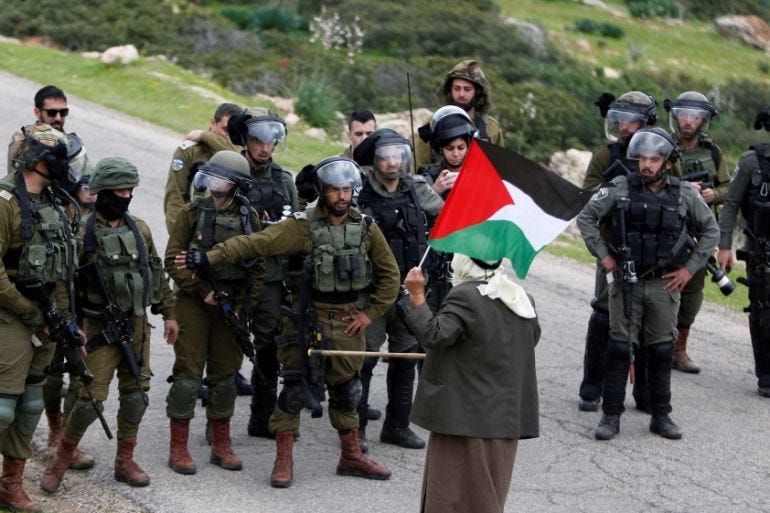
The international rejection of Israel’s plan to formally annex even more Palestinian land is based on two arguments: the annexation is a violation of international law and it defeats the prospects of a two-state solution.
The world view of this international consensus underscores as problematic the lack of a reciprocal dialogue between the sides, their inability to compromise and the unilateral actions that inhibit peace efforts. At the same time, it foregrounds conventional peace-building processes that emphasise mutual recognition as well as economic and security cooperation.
There is basically a belief in the international community that universal international laws and norms can facilitate a just outcome to the conflict with two independent states living side by side.
This world view is operating in a diplomatic space that has lost all connection to the realities that ordinary Palestinians face. The Palestinian losses are much more serious than is conventionally suggested in the “save the two-state solution before it is too late” type of thinking.
It is already a very late hour for the prospects of Palestinian freedom and sovereignty. A different lens must, therefore, be adopted, which first and foremost underscores the logic that underlies the Israeli state – settler-colonialism.
A settler colony
Academics have debated for decades whether Israel constitutes a settler colony, and following the arguments of leading scholars such as Joseph Massad, Rashid Khalidi, Noura Erakat, Ilan Pappe, Hamid Dabashi and Robert Wolfe (among others), the answer is convincing: Israel is the product of a national settler-colonial project.
So, what makes a settler colony a settler colony? The answer to this question cannot be reduced to specific characteristics but must instead be sought in a general principle. Simply put: all settler colonies constitute a continuous process of land annexation, whereby native inhabitants are removed and settlers from elsewhere are brought to occupy the land.
To be sure, all modern nation-states have annexed land in certain respects, but the settler-colonial state’s distinguishing feature is that it does not come into being and cannot continue to exist without claiming sovereignty over land that is forcefully taken from its native inhabitants. In short, the settler colony can only claim its sovereignty through the eradication and erasure of native sovereignty.
The methods of annexation certainly vary, but this variety should not detract us from naming and highlighting their underlying logic: the expulsion of native people from their lands. This is the core problem of the Palestinian-Israeli struggle. And nowhere is this logic more visible than in the expansion of settlements on occupied Palestinian lands.
Settlements and the Israeli state
Not all, but the majority of arguments that emphasise international law and the peace process are based on the dubious assumption that Israel is interested in seeing a Palestinian state established along the 1967 borders. But Israeli policies have clearly shown that is not their goal or aspiration.
Sign up for Al Jazeera
Week in the Middle East
The list is long but among those policies are the long-held policy of annexing East Jerusalem; the building of the apartheid wall; the siege on Gaza, separating Palestinian land into non-contiguous units; the constant imprisonment of Palestinians under the charge of being political; the occupation and the checkpoints that make life impossible for ordinary Palestinians, hence encouraging their emigration; the de-development of the Palestinian economy; the policy of home demolitions; the discriminatory policies against Palestinian citizens of Israel that deny them the ability to purchase and lease land; and the non-ending stream of Israeli government permits to build more settlements and expand existing ones.
It is important to take a moment and reflect on the last point. For decades, settler movements and the settlers have been expelling and replacing native Palestinians from more and more Palestinian lands. In much of what passes as intellectual diplomatic discourse in North America and Western Europe, these settlers are presented as divorced from the Israeli state and even painted as a burden on the Israeli state.
This occurs even when Israeli policy is directly tied to the expansion of settlements. In 2016, for example, then-Secretary of State John Kerry claimed, “Let’s be clear. Settlement expansion has nothing to do with Israel’s security. Many settlements actually increase the security burden on the Israeli defence forces and leaders of the settler movement are motivated by ideological imperatives that entirely ignore legitimate Palestinian aspirations.”
And when he was not divorcing the ideology of the settlement leaders from the ideology of the state, Kerry made sure to present the settlements as a side issue, and not the core of the problem: “Let me emphasise, this is not to say that the settlements are the whole or even the primary cause of this conflict, of course they are not. Nor can you say that if the settlements were suddenly removed, you’d have peace without a broader agreement. You would not.”
Versions of this discourse are repeated ad nauseam in the diplomatic arena, all of which misses (purposely or not) the crucial point that these settlers are not ideologically opposed to the state, but are rather a mirror for the foundation of the Israeli state revealed in its naked form.
The main difference is that these settlers act without the sophisticated rhetoric that hides and conceals the violence of the settler colony. They do not hide their intention to remove Palestinians and expand the state that is to come, the state of Greater Israel.
Since the early 20th century, the Zionist movement has longed for the creation of a Greater Israel, but it has been savvy enough to hide and conceal its intentions, especially in the international arena.
As Benny Morris put it in his famous book The Birth of the Palestinian Refugee Problem, “[Zionist leader David] Ben-Gurion, a pragmatist, from 1937 on, was willing (at least outwardly) to accept partition and the establishment of a Jewish state in only part of the country. In effect, he remained committed to a vision of Jewish sovereignty over all of Palestine as the ultimate goal of Zionism, to be attained by stages.”
The current relation between the state and the settlers is, thus, not one of opposition or nuisance, but one between a force that expands (the settlers) and a force that makes possible but hides the violence of the expansion (the state). And at the opportune moment, provided in this case through the Trump administration’s unwavering support for Israel, the state becomes one with the settlers out in the open and officially expands.
The annexation plan is nothing more than the state’s turn to claim sovereignty over what the settlers have already annexed. And they are able to annex precisely because the state makes that possible through its occupation of Palestinian land.
And this cycle will not stop. The settlers will continue to expand and annex with the aid of the state, until such time that the state can officially announce the reality of their fusion with the settlers, taking even more land.
As far as the Israelis are concerned, time is on their side, and they can patiently proceed stage by stage.
Empty words
The latest round of international reactions will predictably change nothing for the Palestinian people. International law will flag the violation against its rules, words of “condemnation” will fill the air, analysts and commentators will discuss the “strength” of these words in comparison to past statements, and Palestinian land will continue to be stolen.
Palestinian lives will continue to be threatened with death, injury, debilitation, occupation, oppression and expulsion while the world watches and pronounces empty words.
These words do not carry any consequence that can give them meaning, depth, and force. They are part of the diplomatic routine, which gives the feeling that something is being done, that the world is watching closely and that the world is concerned for Palestine.
This chimera of an act ends up sustaining the status quo and ensures that nothing consequential is ever undertaken. The very emptiness of these words thus becomes another weapon that enables annexation.
Many ordinary Palestinians have understood this situation for some time: the cavalry is not coming – not from the Arab world, not from the UN and not from international law. And in their absence, those international institutions and states show themselves as part of the problem, not the solution.
Israeli settler colonialism will not rest until the majority of the Palestinians are removed and expelled, and all of the Palestinian lands are under Israeli sovereignty, just as Ben-Gurion envisioned.
Israel cannot tolerate the idea of Palestinian sovereignty, let alone its implementation because the erasure of Palestinian sovereignty is part and parcel of the underlying logic of the settler colony. As a result, regardless of how much land Prime Minister Benjamin Netanyahu and his ally, Defence Minister Benny Gantz actually annex this year, this episode will be neither the first nor will it be the last.
The settler colony, secured in its power after the founding violence, often plays a long game. But despite the scantest of hopes of ever gaining their freedom and sovereignty, the Palestinians will continue to stand, more or less, alone in their long and historic resistance.
The views expressed in this article are the author’s own and do not necessarily reflect Al Jazeera’s editorial stance.
Professor of Sociology at Mount Royal University in Calgary, Canada.
Ayyash is the author of A Hermeneutics of Violence (UTP, 2019), and a policy analyst at Al-Shabaka, the Palestinian Policy Network. He was born and raised in Silwan, Al-Quds, before immigrating to Canada where he is now a Professor of Sociology at Mount Royal University. He is currently writing a book on settler colonial sovereignty.
ISRAELI SETTLER COLONIALISM AND APARTHEID
Israeli settlements are built on Palestinian land, and are illegal under International law.
People often say that what’s happening in Palestine is difficult to understand or too complicated to take a stand on. In this resource, we show that the situation, in its essence, is actually pretty straightforward. This page is a summary of the pages that follow. You can navigate between the pages using the arrows at the top and bottom of each page or using the menu on the left hand side.
Israel was formed in 1948 through the brutal displacement of nearly 800,000 Palestinians and the destruction of more than 530 towns and villages. This pre-meditated ethnic cleansing is known as al-Nakba, the catastrophe. Since then, Israel has implemented a regieme of settler colonialism, apartheid and occupation. over the Palestinian people.
During and since its foundation in 1948, Israel has set out to control as much of the land of historic Palestine as possible and drive as many of the indigenous Palestinian population from the land as it can. Israel’s oppression of Palestinians involves settler colonialism: Zionism seeks to establish a distinct new society, take over control of land and resources and forcibly remove Palestinians.
Apartheid is an Afrikaans word meaning ‘separation’ and was the name given to the system of racial segregation and subjugation of the African and other non-white population of South Africa by white settlers from 1948 to 1994.
There are many similarities between apartheid in South Africa and modern day Israeli apartheid. South African apartheid was characterised by settler colonialism and the forced displacement of the indigenous population, the division of the colonised into different groups with different rights, severe restrictions on movement and violent suppression of resistance. These are all key characteristics of Israel’s modern day regime over the Palestinian people.
However, the validity of the apartheid analysis of Israel’s regime over the Palestinian people does not depend on similarities between Israeli policies and South Africa under apartheid. Israel’s oppression of Palestinians meets the definition of the crime of Apartheid that is set out by the 2002 Rome Statute of the International Criminal Court.
Israel has de-facto control over all of Israel and the Occupied Palestinian Territories but treats Jewish Israelis and Palestinians very differently. The way in which Palestinians are given less rights than Jewish Israelis is is institutionalised and written into the laws that govern how the Israeli state operates.
The majority of Palestinians are the 7.25m refugees who have been forced from their homes to make way for Jewish Israelis and are denied their right to return to their homes. The demand that Palestinian refugees be allowed their right to return to their homes is a key demand of the Palestinian struggle for freedom, justice and equality.
Israel says it is a "Jewish and democratic" state. However, the 20% of the population of Israel who are Palestinian citizens of Israel who are subjected to a series of racist laws and segregation policies that facilitate the continued ethnic cleansing of Palestinian citizens of Israel and make them third class citizens. A state that gives different rights to different people based purely on their ethnic identity cannot be described as a democracy.
Israel carried out horrific massacres of Palestinians in Gaza in 2008-09, 2012 and 2014. In all three attacks, the UN and human rights organisations have documented how Israel deliberately attacked Palestinian civilians, schools, hospitals and other civilian infrastructure and other war crimes. A UN report published in 2015 said that Gaza could be "uninhabitable" by 2020 as a result of the economic siege imposed by Israel and its regular attacks on Palestinians.
East Jerusalem is recognised as occupied Palestinian territory but Israel has annexed the city and is seeking to turn it into a Jewish Israeli city. It is seeking to do this by forcibly displacing Palestinians and transferring Israelis into the area in their place. The route of the Israel’s illegal apartheid wall deliberately cuts off East Jerusalem from the rest of the occupied West Bank.
As part of its military occupation, Israel steals land and forces Palestinians into ghettos, surrounded by checkpoints, settlements and watchtowers and an illegal apartheid Wall. (photo: Activestills.org)
Israeli policies in the West Bank aim to forcibly displace and concentrate the Palestinian population into isolated bantustans and ensure the continued expansion of illegal Israeli settlements on Palestinian land. There are now approximately 650,000 Israeli settlers living in more than 200 colonies or settlements in the West Bank (including East Jerusalem). Around half of the West Bank is allocated to the settlements or otherwise off limits to Palestinians.
Israel is only able to maintain its system of apartheid and settler colonialism over the Palestinian people because of the support that it receives from world governments and corporations. All states, particularly those 124 states that have ratified the Rome Statute of the ICC, have a legal obligation to suppress Israeli war crimes and crimes against humanity.
Waves of Palestinian popular resistance, especially the intifadas, has always revealed to Israel, the U.S. and other world powers that are complicit in maintaining Israel’s regime of oppression, that Palestinians will never accept slavery as fate. New generations will continue to rise up and assert their will to be free, against all odds.
The Palestinian BDS campaign is an effective way to provide support and solidarity to the Palestinian struggle for freedom, justice and equality. It aims to pressure Israel to comply with international law and to end international support for Israel’s regime of settler colonialism and apartheid.
Israeli and Palestinian Settler Colonialism in New Media: The Case of Roots - Article
Magdalena Pycińska
Abstract
Israeli settler colonialism, in time, became highly linked to the idea of a state, culminating in an institution that defends the past, present, and future practises maintaining the relations between the “native” and “settlers”. Settler colonial ideas and practises sustaining binary opposition between the “native” and the “settler” are reproduced not only by Israeli state broadcasters, but also by settler colonial social media.
This article proposes media analysis that goes beyond the usual national and conflict narrative and links “settler colonial common sense” with social media impacts and state ideas/sovereign ideas of property that strive to eliminate native people or transfer them outside Israel’s perceived land ownership and sovereignty. This article also shows how Israeli settler colonial politics and narratives are supported by other settler colonial states (especially the United States). New media and settler common sense cannot be disassociated from the Israeli state and global politics, even though some settlers may have their own strategies regarding the relations with native Palestinians.
The State of Israel, through massive surveillance technologies and support from other states that view militarisation and population management as crucial to maintaining its power, holds a great deal of influence over how it frames the “conflict” with Palestinians. We witness how both state violence and institutionalised Jewish privilege are recreated on the ground and globally through the new media. This issue is analysed through the “Roots” (a grassroots movement for understanding among Israelis and Palestinians) case study.
ebook version:
Between 1994-2014, Israel’s security service was transformed, becoming one of the most extreme examples of privatised security in the world. This book is an investigation into this period and the conditions that created ‘Occupation Inc.’: the institution of a private military-security-industrial complex.
State sponsored violence is increasing as a result of this securitisation, but why is it necessary, and what are its implications? In this book, Shir Hever considers the impact of the ongoing Palestinian resistance to Israeli occupation, the influence of U.S. military aid and the rise of neoliberalism in Israel, to make sense of this dramatic change in security policy.
Through the lens of political economy, this book shows how the Israeli security elites turn violence into a commodity in order to preserve their status and wealth, providing a fresh new perspective on the Israeli occupation.
Economy of the Occupation
The Economy of the Occupation (EOC) is a research project of the Alternative Information Center, a joint Palestinian-Israeli organization. In the years 2005-2013, fifteen publications were published on various topics related to the political economy of Israeli occupation of the West Bank and the Gaza Strip, and to various aspects of the Israeli and Palestinian economies.
The publications, called “socioeconomic bulletins” were numbered in volumes 1-30, as some were single-issues and some double. All were edited by Shir Hever, who also authored 25 of the volumes and co-authored two.
According to the publication’s mission statement, the EOC aims to offer a “new approach to the economic situation in the Occupied Palestinian Territories and Israel” and to “provide accessible and singular analyses of the socio-economic interests behind the Israeli occupation of Palestine.”
All of the publications were published in English, and some of them were also published in Hebrew and Arabic. Several were also translated into German, Italian or Japanese.
About the Scholar and Author
An independent economic researcher, manager of the Alliance for Justice between Israelis and Palestinians and coordinator of the military embargo campaign for the Boycott National Committee (BNC).
. His research topics include:
Privatization of security
Global arms trade
Israeli arms trade and security sector
The economic aspect of the Israeli occupation of the Palestinian territory
International aid to the Palestinians and to Israel
Shir Hever holds a Ph.D from the Free University of Berlin. His most recent book, based on his Ph.D dissertation, is titled The Privatization of Israeli Security (Pluto Press, 2017).
Affiliations:
Jüdische Stimme für gerechten Frieden in Nahost (board member) – a Jewish German organization promoting just peace in Israel/Palestine. The organization is a member of the EJJP: European Jews for Just Peace.
Alternative Information Center, a joint Palestinian-Israeli organization active in Jerusalem and Beit Sahour.
Privatizing the Occupation: How Israeli Corporations Came to Police the Palestinians (mintpressnews.com)
Jessica Buxbaum is a Jerusalem-based journalist for MintPress News covering Palestine, Israel, and Syria. Her work has been featured in Middle East Eye, The New Arab and Gulf News.
PRIVATIZING THE OCCUPATION: HOW ISRAELI CORPORATIONS CAME TO POLICE THE PALESTINIANS
OCCUPIED WEST BANK — On any given morning, masses of Palestinians are packed like sardines at the Qalandiya checkpoint at the edge of Ramallah in the Occupied West Bank. Here, the Israeli army, border police, and Israeli police are all on patrol. But another group of officers — nearly indistinguishable from the state authorities — also stands guard. These are the employees of Israeli private security behemoth Modiin Ezrachi. The security corporation is part of a plethora of private companies carrying out state functions in the Occupied Palestinian Territories.
PRIVATE SECURITY AT THE CHECKPOINTS
The process of transferring military operations to private security contractors commenced during the Second Intifada (Palestinian uprising against the Israeli state) from 2000 to 2005. An Israeli government decision handed over the powers to civilian and police control in 2005 and established the Crossing Points Authority as the body responsible for maintaining the checkpoints.
The Ministry of Defense (MoD) stated the reasoning behind this decision was to preserve Palestinians’ “fabric of life.” The fabric of life refers to the basic minimum conditions a person needs to work, study, and live. Dr. Shir Hever, a political economist and author of the book “The Privatisation of Israeli Security,” explained Israel’s security interest in protecting Palestinians’ fabric of life as arising not out of moral duty but rather as a diplomatic strategy. “The whole point is that the Israeli security operations need to disrupt that fabric as little as possible in the fewest instances possible because this impacts the Israeli image abroad,” Hever told MintPress News.
“The presence of 18-year-old soldiers in the checkpoints, where the soldiers are not trained and not experienced in dealing with civilian populations, causes embarrassing issues,” Hever continued. In order for the MoD to avoid potential gaffes on the world stage, trained security personnel replaced the army.
Yet security professionals appear just as inept at interacting with civilians as does the Israeli army.
Maram Saleh Hassan Abu Ismail was attempting to cross the Qalandiya checkpoint with her teenage brother, Ibrahim Taha, when the siblings were shot dead by two civilian security guards on April 27, 2016. Israel Police claimed the woman threw a knife at an officer, prompting the fatal shooting. A police investigation was opened and abruptly closed the following August with no indictments.
This is just one of many violent incidents perpetrated by private security guards against Palestinians at checkpoints, settlements, and various Israeli public places. The Israeli government’s objective for privatization was for more professional interaction between Palestinians and security forces. But Dr. Hever explained that the way privatization was structured actually eliminated all interaction. “Everything’s done remotely and mechanically, meaning there’s a voice coming from the wall telling you to put your bag into the machine, put your identity card into the slot, move through the turnstile, and you don’t see anybody. You don’t speak with anybody,” Hever said.
THE COMPANIES OPERATING AT THE CHECKPOINTS
According to Machsom Watch, an Israeli women’s organization monitoring the checkpoints, there are 593 checkpoints in the West Bank — including 23 border checkpoints. The border checkpoints have been undergoing privatization efforts since 2006. Research center Who Profits details all of the checkpoints along the Apartheid Wall — which the Israeli government refers to as the Separation Barrier, between the West Bank and 1948-Occupied Palestine (or modern-day Israel) — that are to be privatized. Fifteen checkpoints are currently privatized and one is partially privatized.
The following are the companies involved in the checkpoints:
SHELEG LAVAN
Sheleg Lavan is an Israeli firm providing cleaning and security services. In 2019, it won a tender from the Israel Police to provide security operations to the area of the Apartheid Wall surrounding Jerusalem (Israel Police declined to provide an interview for this story; Sheleg Lavan and the Crossing Points Authority did not respond to requests for comment).
The company has inspectors and guards at the following checkpoints in Gaza and the West Bank: Tarqumia, Meitar, Maccabim, Habika, Eliyahu, Hashmonaim, Sha’ar Efraim, and Kerem Shalom. The company’s revenue stands at 600 million shekels or nearly $190 million.
MODIIN EZRACHI
Modiin Ezrachi is one of the largest Israeli security companies, with a revenue of 700 million shekels or nearly $220 million. It has security guards and inspectors at the following checkpoints in the West Bank, Gaza, and Occupied East Jerusalem: Gilboa, Reihan, Eyal, Hotze Shomron, Qalandiya, Sheikh Sa’ad, Anata, and Al-Jib. The two security guards responsible for Abu Ismail and Taha’s deaths were employed by Modiin Ezrachi.
G1 SECURE SOLUTIONS
This Israeli security firm’s luggage- and body-scanning machines are used at the Erez checkpoint in Gaza, and at the Qalandiya, Bethlehem and Sha’ar Efraim checkpoints in the West Bank. The company had a contract with the Israel Civil Administration (ICA) for maintenance of metal gates designed by U.S. corporation Rapiscan and installed at ICA checkpoints. The contract was renewed until April 2018. G1 Secure Solutions did not respond to comments on whether it still retains this contract. The company’s current revenue is 821.4 million shekels or roughly $260 million.
MALAM TEAM
Malam Team is an Israeli information technology firm. The company has an estimated revenue of $711 million shekels or $220 million. Malam Team’s subsidiary, Eltel, has scanning equipment at several West Bank checkpoints and at the Erez checkpoint in Gaza. It also maintains scanning equipment in the following checkpoints in the West Bank and Gaza: Hotze-Shomron, Eyal, Barta’a, Eliyahu, Jalme, Metar, Metzudut Yehuda, Sha’ar Efraim, Maccabim, Tarqumya, and Habika.
T&M PROTECTION RESOURCES HOLDINGS ISRAEL
This Israeli security company won a tender published by the Israel Police in 2019 for nine checkpoints in Jerusalem near the Apartheid Wall. These checkpoints are: a-Sheikh Sa’ed, a-Sawahrah, a-Za’ayem, Mazmuriyeh, Ein Yael, The Tunnels, Anata, Checkpoint 300, and a-Zaitun. The firm also provides guarding services to the Crossing Points Authority.
T&M Israel is the highest-ranked company in Israel’s security and cleaning industry. Its 2021 revenue stands at 1.175 billion shekels or $367 million. The company’s CEO, Shimon Talmor, served as a combat fighter in the Israeli army.
PRIVATE SECURITY IN THE SETTLEMENTS
Many of the private companies operating at the checkpoints also provide security services to the illegal Israeli settlements in the West Bank. In 2008, the Israeli military decided to transfer the security of 40 settlements to private security personnel. The military attributed its decision to the installation of army equipment having made the presence of soldiers in the settlements obsolete, and maintained that trained professionals would be able to offer better security than soldiers.
Modiin Ezrachi, G1 Secure Solutions, Malam Team, and T&M Israel are all involved in the settlements.
Modiin Ezrachi provides security to settlements in East Jerusalem, including working with the settler organization El’ad; nine settlements in the West Bank; and has been contracted by the Mount Hebron and Mateh Benjamin settlement councils. Settlement councils are Israeli government-run institutions charged with running the affairs of Israeli settlements on Palestinian land, including the hiring of contractors. Most of Israel’s illegal settlements are managed by a group of representatives known as regional councils. The company provides security to businesses in the Mishor Adumim industrial zone and the construction sites in the Beitar Illit settlement.
G1 Secure Solutions provides security to eight settlements in the West Bank and East Jerusalem. Malam runs an IT services project employing orthodox Jewish women, called Ma’alot in Beitar Illit. And T&M Israel provides security, guarding and escorting services to settlers in East Jerusalem.
The following security companies also operate in the settlements and industrial zones in the West Bank and East Jerusalem.
RESHEF SECURITY
This Israeli security firm operates in 22 settlements in East Jerusalem, the West Bank and the occupied Syrian Golan. Reshef Security won a tender issued by the Israel Nature and Parks Authority in 2019 for maintaining security at nine sites in the Golan and 10 in the West Bank. It works with the Ministry of Education to provide security to educational facilities in the West Bank. And Reshef Security’s National Center for Earthquake Prediction and Control has sensors installed in 10 settlements in the West Bank.
TZEVET 5
Tzevet 5 provides security services to 13 settlements, settlement councils, and industrial zones in the West Bank. In 2019, Who Profits researchers documented Tzevet 5 employees guarding the Og sewage purification plant located in the Jordan Valley in the West Bank.
MOKED MATARA
This Israeli security and surveillance company’s clientele includes seven settlements in the West Bank. The company’s top executives are all veterans of the Israeli army.
According to his LinkedIn profile, chairman Yossi Refaelov served as a Combat Engineering Brigade commander and Special Operation Unit commander in the Israel Defense Forces. Yossi Arbiv is Moked Matara’s business development manager and “served as a Deputy in one of the Combat Engineering Battalions, as a commander of a Bomb Disposal Unit, as a Special Operation Unit deputy commander and as operations officer of Combat Engineering Corps.” Atai Shelach has served as the company’s director since 2014. Shelach’s Linkedin profile boasts “27 years of military operational experience. He served as the Commander of the special Elite Combat Engineering Unit of the Israel Defense Forces, as Head of the IDF’s VIP Protection Unit, as Chief, IDF’s CBRN Center and as Second in Command of the IDF engineering corps.”
NOF YAM SECURITY
Nof Yam provides security services to four settlements in the West Bank: Ma’ale Adumim, Efrat, Har Gilo, and Elazar. According to Who Profits, “[t]he company’s directors and consultants are former high-ranking officers in the Israeli military and security forces.”
BEN SECURITY
This Israeli security firm operates in eight settlements in East Jerusalem and the West Bank. Ben Security ranked 10th in Israel’s index of the leading security and cleaning companies. The company’s estimated revenue is 170 million shekels or just over $50 million.
GALSHAN MARKETING HUMAN RESOURCES GUARDING & SECURITY
Galshan is a private security company whose settlement clientele includes Beit El Local Council, Mevaseret Zion Local Council, Mateh Yehuda Regional Council, Gush Etzion Regional Council, and Beitar Illit.
FROM MILITARY HEAD TO SECURITY FIRM CEO
It’s no coincidence that many of these companies’ top management officials were once senior military officers. Dr. Hever explained the traditional career step for most retired Israeli army generals is the private sector:
With the rise of high technology, ex-generals became less desirable as company CEOs, with preference given to engineering and tech experts instead. “The options for these retired generals are narrowing and they either become arms dealers or they set up security companies,” Hever said.
But for Palestinians, whether it’s a soldier or private security guard stationed at a settlement or checkpoint doesn’t matter.
“What do Palestinians care who looks at their papers?” Hanna Barag, an activist with Machsom Watch, told MintPress.
Feature photo | An armed Israeli stands atop a water tower in a settlement near the West Bank village of Um Fagarah, South Hebron Hills, West Bank. Oren Ziv | Activestills
Jessica Buxbaum is a Jerusalem-based journalist for MintPress News covering Palestine, Israel, and Syria. Her work has been featured in Middle East Eye, The New Arab and Gulf News.
The Making of Modern Zionism: The Intellectual Origins of the Jewish State
For eighteen centuries pious Jews had prayed for the return to Jerusalem, but only in the revolutionary atmosphere of nineteenth-century Europe was this yearning transformed into an active political Zionism. In The Making of Modern Zionism , the distinguished political scientist Shlomo Avineri rejects the common view that Zionism was solely a reaction to anti-Semitism and persecution. Rather, he sees it as part of the universal quest for self-determination. In sharply-etched intellectual profiles of Zionism's major thinkers from Moses Hess to Theodore Herzl and from Vladimir Jabotinsky to David Ben Gurion, Avineri traces the evolution of this quest from its intellectual origins in the early nineteenth century to the establishment of the State of Israel. In an expansive new epilogue, he tracks the changes in Israeli society and politics since 1967 which have strengthened the more radical nationalist and religious trends in Zionism at the expense of its more liberal strains. The result is a book that enables us to understand, as perhaps never before, one of the truly revolutionary ideas of our time.
About the Author and Scholar
Shlomo Avineri is Professor of Political Science at the Hebrew University of Jerusalem. During 1975-77, he was Director General of Israel’s Ministry of Foreign Affairs. He also serves as a Recurring Visiting Professor at the Central European University in Budapest.
Balfour and Weizmann: The Zionist, the Zealot and the Emergence of Israel
On November 2, 1917, Arthur Balfour, then Foreign Secretary, wrote to Lord Rothschild to say that the British Government viewed with favor the establishment in Palestine of a national home for the Jewish people. The consequences of this statement have reverberated throughout the world in a crescendo of bitterness and violence ever since. It interposed a European (mainly Russian) Jewish cultural idea in an Arab land and it led eventually to the Arab-Israeli conflict.
Eleven years before his declaration, Balfour had met the passionate Zionist and émigré chemist Chaim Weizmann while electioneering in Manchester. At the centre of Geoffrey Lewis's compelling book is the story of this encounter and the developing relationship between these two men: the Zionist and the Zealot, so different from each other, yet drawn together by forces that neither quite understood, with consequences that were to have a profound effect on the modern world.
Balfour Declaration
British government statement of 1917
Wikipedia
The declaration that changed history for ever
Avi Shlaim
Ernest Bevin, Labour's postwar foreign secretary, once told the Zionist leader, David Ben-Gurion, that the Balfour Declaration of 1917 was the worst mistake in western foreign policy in the first half of the 20th century. From the perspective of British interests, it was certainly a strategic blunder. It committed Britain to support the establishment of a "national home" for the Jewish people in Palestine when the Jews constituted less than 10% of the population. Britain's promise paved the way for the establishment of the state of Israel, but also unleashed one of the most bitter conflicts of modern times.
The story of the Balfour Declaration has been told many times. Geoffrey Lewis has chosen to focus only on the part played by the two principal architects of the declaration: Arthur Balfour and Chaim Weizmann, the Gentile Zionist and the ardent Jewish nationalist. The result is a perceptive, elegantly written and fair-minded book.
At first sight, Balfour seems an unlikely candidate for the role of mover and shaker. He was a languid aristocrat with a philosophical turn of mind. A popular saying went: "If you want nothing done, Balfour is your man." Yet he was moved by a strong conviction that the case for a Jewish homeland in Palestine was wholly exceptional and that it overrode the natural right of the Arabs to self-determination.
Weizmann, a lecturer in chemistry at Manchester University, was a consummate diplomat and an eloquent advocate who converted many in the British establishment to the Zionist cause. The first meeting between Balfour and Weizmann took place in 1906, three years after the Zionist leadership had turned down the offer of a Jewish homeland in Uganda. Their conversation lasted more than an hour and contained within it the germ of the Balfour Declaration.
Balfour could not understand why the persecuted Russian Jews refused the offer of a safe asylum. Weizmann tried to explain why the Zionists could not accept a home anywhere but Jerusalem. "Suppose," he said, "I were to offer you Paris instead of London." "But, Dr Weizmann, we have London," Balfour replied. "That is true," Weizmann said, "but we had Jerusalem when London was a marsh." "Are there many Jews who think like you?" wondered Balfour. "I believe I speak the minds of millions of Jews," replied Weizmann. "It is curious," Balfour remarked, "the Jews I meet are quite different." "Mr Balfour," said Weizmann, "you meet the wrong kind of Jews."
In fact, most of the leaders of British Jewry were opposed to the idea of a Jewish homeland in Palestine. Prominent among them was Edwin Montagu, the secretary of state for India. Montagu rejected the notion that the Jews were a nation and warned that a Jewish home in Palestine would undermine the struggle for equal rights for Jews in the rest of the world. Balfour, however, was persuaded by Weizmann that race, religion and geography were linked in a unique way for Zionist Jews.
Weizmann's refusal even to look at the Uganda scheme greatly impressed Balfour. He concluded that the Jewish form of patriotism was without parallel, that Zionism was a noble project and that Britain ought to support it on idealistic grounds. This perception led directly to the famous declaration that bore Balfour's name, one that changed the course of Middle East history.
Avi Shlaim is a professor of international relations at the University of Oxford. His books include Lion of Jordan: King Hussein's Life in War and Peace (Penguin)
Redrawing the Middle East: Sir Mark Sykes, Imperialism and the Sykes-Picot Agreement
The Sykes-Picot Agreement was one of the defining moments in the history of the modern Middle East. Yet its co-creator, Sir Mark Sykes, had far more involvement in British Middle East strategy during World War I than the Agreement for which he is now most remembered. Between 1915 and 1916, Sykes was Lord Kitchener's agent at home and abroad, operating out of the War Office until the war secretary's death at sea in 1916. Following that, from 1916 to 1919 he worked at the Imperial War Cabinet, the War Cabinet Secretariat and, finally, as an advisor to the Foreign Office. The full extent of Sykes's work and influence has previously not been told. Moreover, the general impression given of him is at variance with the facts. Sykes led the negotiations with the Zionist leadership in the formulation of the Balfour Declaration, which he helped to write, and promoted their cause to achieve what he sought for a pro-British post-war Middle East peace settlement, although he was not himself a Zionist. Likewise, despite claims he championed the Arab cause, there is little proof of this other than general rhetoric mainly for public consumption. On the contrary, there is much evidence he routinely exhibited a complete lack of empathy with the Arabs. In this book, Michael Berdine examines the life of this impulsive and headstrong young British aristocrat who helped formulate many of Britain's policies in the Middle East that are responsible for much of the instability that has affected the region ever since.
About the Author and Scholar
Michael D. Berdine is a retired history lecturer who has taught history, political science and religious studies at universities and colleges in the US and the UK.
The Invention of the Jewish People
ebook version:
A historical tour de force that demolishes the myths and taboos that have surrounded Jewish and Israeli history, offers a new account of both that demands to be read and reckoned with. Was there really a forced exile in the first century, at the hands of the Romans? Should we regard the Jewish people, throughout two millennia, as both a distinct ethnic group and a putative nation—returned at last to its Biblical homeland?
The Invention of the Land of Israel: From Holy Land to Homeland
ebook version:
What is a homeland, and when does it become a national territory? Why have so many people been willing to die for them throughout the twentieth century? What is the essence of the Promised Land? Following the acclaimed and controversial Invention of the Jewish People, Shlomo Sand examines the mysterious sacred land that has become the site of the longest running national struggle of the twentieth-century. The Invention of the Land of Israel deconstructs the age-old legends surrounding the Holy Land and the prejudices that continue to suffocate it. Sand's account dissects the concept of 'historical right' and tracks the invention of the modern geopolitical concept of the 'Land of Israel' by nineteenth cntury Evangelical Protestants and Jewish Zionists. This invention, he argues, not only facilitated the colonization of the Middle East and the establishment of the State of israel; it is also what is threatening the existence of the Jewish state today.
How I Stopped Being a Jew
ebook version:
Shlomo Sand was born in 1946, in a displaced person’s camp in Austria, to Jewish parents; the family later migrated to Palestine. As a young man, Sand came to question his Jewish identity, even that of a “secular Jew.” With this meditative and thoughtful mixture of essay and personal recollection, he articulates the problems at the center of modern Jewish identity.
Related news:
Being Palestine after Gaza: Why does Palestine have to suffer for Western-centric “Jewish Identity Politics”?
About the Author and Scholar
Shlomo Sand is professor of history at Tel Aviv University and author of the controversial book The Invention of the Jewish People (Verso Books, 2009). His main areas of teaching are nationalism, film as history and French intellectual history.
Sand was born to Polish Jewish survivors of the Holocaust. His parents had Communist and anti-imperialist views and refused to receive compensations from Germany for their suffering during the Second World War. Sand spent his early years in a displaced persons camp and moved with the family to Jaffa in 1948. He was expelled from high school at the age of sixteen, and only completed his bagrut following his military service. He eventually left the Union of Israeli Communist Youth (Banki) and joined the more radical, and anti-Zionist, Matzpen in 1968. Sand resigned from Matzpen in 1970 due to his disillusionment with the organisation.
He declined an offer by the Israeli Communist Party Rakah to be sent to do cinema studies in Poland, and in 1975 Sand graduated with a BA in History from Tel Aviv University. From 1975 to 1985, after winning a scholarship, he studied and later taught in Paris, receiving an MA in French History and a PhD for his thesis on "George Sorel and Marxism". Since 1982, Sand has taught at Tel Aviv University as well as at the University of California, Berkeley and the École des hautes études en sciences sociales in Paris.
Books by Thomas L. Thompson
The Mythic Past: Biblical Archaeology And The Myth Of Israel
The Jewish people's historical claims to a small area of land bordering the eastern Mediterranean are not only the foundation for the modern state of Israel, but they are also at the very heart of Judeo-Christian belief. Yet in The Mythic Past, Thomas Thompson argues that such claims are grounded in literary myth, not history. Among the author's startling conclusions are these:· There never was a "united monarch" of Israel in biblical times· We can no longer talk about a time of the Patriarchs· The entire notion of "Israel" and its history is a literary fiction. The Mythic Past provides refreshing new ways to read the Old Testament as the great literature it was meant to be. At the same time, its controversial conclusions about Jewish history are sure to prove incendiary in a worldwide debate about one of the world's seminal texts, and one of its most bitterly contested regions.
In another book, the author delves into the "Messiah myth".
The Messiah Myth: The Near Eastern Roots of Jesus and David
Bible scholars dissect the gospels to separate the “Jesus of history” from the “Christ of faith.” This provocative study argues that the biblical characters of Jesus and David should be viewed not as historical figures, but as embodiments of Babylonian, Egyptian and Near Eastern mythology.
Since the eighteenth century, scholars and historians studying the texts of the Bible have attempted to distill historical facts and biography from the mythology and miracles described there. That trend continues into the present day, as scholars such as those of the "Jesus Seminar" dissect the Gospels and other early Christian writings to separate the "Jesus of history" from the "Christ of faith." But with The Messiah Myth, noted Biblical scholar Thomas L. Thompson argues that the quest for the historical Jesus is beside the point, since the Jesus of the Gospels never existed.Like King David before him, says Thompson, the Jesus of the Bible is an amalgamation of themes from Near Eastern mythology and traditions of kingship and divinity. The theme of a messiah-a divinely appointed king who restores the world to perfection-is typical of Egyptian and Babylonian royal ideology dating back to the Bronze Age. In Thompson's view, the contemporary audience for whom the Old and New Testament were written would naturally have interpreted David and Jesus not as historical figures, but as metaphors embodying long-established messianic traditions. Challenging widely held assumptions about the sources of the Bible and the quest for the historical Jesus, The Messiah Myth is sure to spark interest and heated debate.
The Invention of Ancient Israel: The Silencing of Palestinian History
The Invention of Ancient Israel shows how the history of ancient Palestine has been obscured by the search for Israel. Keith W. Whitelam argues that ancient Israel has been invented by scholars in the image of a European nation state. He explores the theological and political assumptions which have shaped research into ancient Israel by Biblical scholars, and contributed to the vast network of scholarship which Said identified as 'Orientalist discourse' Keith W. Whitelam's groundbreaking study argues that Biblical scholars, through their traditional view of this region, have contributed to dispossession of both a Palestinian land and a Palestinian past. This is important reading for historians, biblical specialists, social anthropologists and all those who are interested in the history of ancient Israel and Palestine.
About the Author and Scholar
Keith Whitelam
The University of Sheffield, Biblical Studies, Emeritus
The Question of Palestine
This original and deeply provocative book was the first to make Palestine the subject of a serious debate--one that remains as critical as ever. With the rigorous scholarship he brought to his influential Orientalism and an exile's passion (he is Palestinian by birth), Edward W. Said traces the fatal collision between two peoples in the Middle East and its repercussions in the lives of both the occupier and the occupied--as well as in the conscience of the West. He has updated this landmark work to portray the changed status of Palestine and its people in light of such developments as the Israeli invasion of Lebanon, the intifada, the Gulf War, and the ongoing MIddle East peace initiative. For anyone interested in this region and its future, The Question of Palestine remains the most useful and authoritative account available.
Orientalism
More than three decades after its first publication, Edward Said's groundbreaking critique of the West's historical, cultural, and political perceptions of the East has become a modern classic.
In this wide-ranging, intellectually vigorous study, Said traces the origins of "orientalism" to the centuries-long period during which Europe dominated the Middle and Near East and, from its position of power, defined "the orient" simply as "other than" the occident. This entrenched view continues to dominate western ideas and, because it does not allow the East to represent itself, prevents true understanding. Essential, and still eye-opening, Orientalism remains one of the most important books written about our divided world.
Culture and Imperialism
A landmark work from the intellectually auspicious author of Orientalism that explores the long-overlooked connections between the Western imperial endeavor and the culture that both reflected and reinforced it. Culture and Imperialism, by Edward Said, is a collection of thematically related essays that trace the connection between imperialism and culture throughout the 18th, 19th, and 20th centuries.
Covering Islam: How the Media and the Experts Determine How We See the Rest of the World
In this classic work, now updated, the author of Culture and Imperialism reveals the hidden agendas and distortions of fact that underlie even the most "objective" coverage of the Islamic world.
From the Iranian hostage crisis through the Gulf War and the bombing of the World Trade Center, the American news media have portrayed "Islam" as a monolithic entity, synonymous with terrorism and religious hysteria. At the same time, Islamic countries use "Islam" to justify unrepresentative and often repressive regimes. Combining political commentary with literary criticism, Covering Islam continues Edward Said's lifelong investigation of the ways in which language not only describes but also defines political reality.
About the Author and Scholar
Edward Wadie Said was a professor of literature at Columbia University, a public intellectual, and a founder of the academic field of postcolonial studies. A Palestinian American born in Mandatory Palestine, he was a citizen of the United States by way of his father, a U.S. Army veteran.
Educated in the Western canon, at British and American schools, Said applied his education and bi-cultural perspective to illuminating the gaps of cultural and political understanding between the Western world and the Eastern world, especially about the Israeli-Palestinian conflict in the Middle East; his principal influences were Antonio Gramsci, Frantz Fanon, Aimé Césaire, Michel Foucault, and Theodor Adorno.
As a cultural critic, Said is known for the book Orientalism (1978), a critique of the cultural representations that are the bases of Orientalism—how the Western world perceives the Orient. Said’s model of textual analysis transformed the academic discourse of researchers in literary theory, literary criticism, and Middle-Eastern studies—how academics examine, describe, and define the cultures being studied. As a foundational text, Orientalism was controversial among the scholars of Oriental Studies, philosophy, and literature.
As a public intellectual, Said was a controversial member of the Palestinian National Council, because he publicly criticized Israel and the Arab countries, especially the political and cultural policies of Muslim régimes who acted against the national interests of their peoples. Said advocated the establishment of a Palestinian state to ensure equal political and human rights for the Palestinians in Israel, including the right of return to the homeland. He defined his oppositional relation with the status quo as the remit of the public intellectual who has “to sift, to judge, to criticize, to choose, so that choice and agency return to the individual” man and woman.
In 1999, with his friend Daniel Barenboim, Said co-founded the West–Eastern Divan Orchestra, based in Seville, which comprises young Israeli, Palestinian, and Arab musicians. Besides being an academic, Said also was an accomplished pianist, and, with Barenboim, co-authored the book Parallels and Paradoxes: Explorations in Music and Society (2002), a compilation of their conversations about music. Edward Said died of leukemia on 25 September 2003.
Imagined Communities: Reflections on the Origin and Spread of Nationalism
What makes people love and die for nations, as well as hate and kill in their name? While many studies have been written on nationalist political movements, the sense of nationality--the personal and cultural feeling of belonging to a nation--has not received proportionate attention. In this widely acclaimed work, Benedict Anderson examines the creation and global spread of the 'imagined communities' of nationality.
Anderson explores the processes that created these communities: the territorialization of religious faiths, the decline of antique kingship, the interaction between capitalism and print, the development of vernacular languages-of-state, and changing conceptions of time. He shows how an originary nationalism born in the Americas was modularly adopted by popular movements in Europe, by the imperialist powers, and by the anti-imperialist resistances in Asia and Africa.
This revised edition includes two new chapters, one of which discusses the complex role of the colonialist state's mindset in the develpment of Third World nationalism, while the other analyses the processes by which, all over the world, nations came to imagine themselves as old.
About the Author and Scholar
Benedict Richard O'Gorman Anderson was Aaron L. Binenkorb Professor Emeritus of International Studies, Government & Asian Studies at Cornell University, and is best known for his celebrated book Imagined Communities: Reflections on the Origin and Spread of Nationalism, first published in 1983. Anderson was born in Kunming, China, to James O'Gorman Anderson and Veronica Beatrice Bigham, and in 1941 the family moved to California. In 1957, Anderson received a Bachelor of Arts in Classics from Cambridge University, and he later earned a Ph.D. from Cornell's Department of Government, where he studied modern Indonesia under the guidance of George Kahin. He is the brother of historian Perry Anderson.
Nations and Nationalism
This thoughtful and penetrating book, addressed to political scientists, sociologists, historians, and anthropologists, interprets nationalism in terms of its social roots, which it locates in industrial social organization. Professor Gellner asserts here that a society's affluence and economic growth depend on innovation, occupational mobility, the effectiveness of the mass media, universal literacy, and an all-embracing educational system based on a shared, standard idiom. These factors, taken together, govern the relationship between culture and the state. Political units that do not conform to the principle, "one state, one culture" feel the strain in the form of nationalistic activity.
About the Author and Scholar
Ernest Gellner was a prominent British-Czech philosopher, social anthropologist, and writer on nationalism.
The Holocaust Industry: Reflections on the Exploitation of Jewish Suffering
Controversial indictment of those who exploit the tragedy of the Holocaust for their own gain.
In an iconoclastic and controversial study, Norman G. Finkelstein moves from an interrogation of the place the Holocaust has come to occupy in American culture to a disturbing examination of recent Holocaust compensation agreements. It was not until the Arab-Israeli War of 1967, when Israel's evident strength brought it into line with US foreign policy, that memory of the Holocaust began to acquire the exceptional prominence it enjoys today. Leaders of America's Jewish community were delighted that Israel was now deemed a major strategic asset and, Finkelstein contends, exploited the Holocaust to enhance this newfound status. Their subsequent interpretations of the tragedy are often at variance with actual historical events and are employed to deflect any criticism of Israel and its supporters. Recalling Holocaust fraudsters such as Jerzy Kosinski and Binjamin Wilkomirski, as well as the demagogic constructions of writers like Daniel Goldhagen, Finkelstein contends that the main danger posed to the memory of Nazism's victims comes not from the distortions of Holocaust deniers but from prominent, self-proclaimed guardians of Holocaust memory. Drawing on a wealth of untapped sources, he exposes the double shakedown of European countries as well as legitimate Jewish claimants, and concludes that the Holocaust industry has become an outright extortion racket. Thoroughly researched and closely argued, The Holocaust Industry is all the more disturbing and powerful because the issues it deals with are so rarely discussed.
In a devastating new postscript to this best-selling book, Norman G. Finkelstein documents the Holocaust industry's scandalous cover-up of the blackmail of Swiss banks, and in a new appendix demolishes an influential apologia for the Holocaust industry.
Holocaust doesn’t give Israel impunity – Lavrov
Source: Holocaust doesn’t give Israel impunity – Lavrov — RT Russia & Former Soviet Union
Holocaust doesn’t give Israel impunity – Lavrov
The Soviet people were also subject to Nazi genocide, but Russia doesn’t have carte blanche in the global arena, he says
The Soviet people were also subject to Nazi genocide, but Russia doesn’t have carte blanche in the global arena, he says Israel should not think that the suffering of Jews during World War II gives it free rein in foreign policy, particularly when it comes to the hostilities in Gaza, Russian Foreign Minister Sergey Lavrov has said. Speaking at a press conference on the results of Moscow’s diplomacy in 2023 on Thursday, Lavrov reiterated his support for the creation of a Palestinian state.
The decades-long failure to do this is one of the key reasons for the current instability in the Middle East and tensions between Palestinians and Israelis, he added.
The foreign minister noted that Russia had immediately condemned the attack on Israel by Hamas on October 7. However, after the hostilities began, some Israeli officials went so far as to call the residents of Gaza “animals” without facing any backlash from the West, he added. Lavrov added that the Soviet people had suffered no less as they were exterminated in the same Nazi concentration camps as the Jews, with both people dying from starvation side-by-side in besieged Leningrad.
“According to this logic, we can do whatever we want. That won’t work if we want to systematically uphold international law,” he added. Hamas attacked Israel on October 7, with the ensuing fighting killing more than 1,200 Israelis and 24,000 Palestinians. Since then, Israel started a ground operation in the Palestinian enclave, which has caused unprecedented destruction.
It has vowed not to stop until Hamas is completely defeated and Palestinian society “deradicalized.” Russia has repeatedly called on the two sides to agree to a ceasefire while urging Israel not to forget the laws of war. The Holocaust claimed the lives of around six million Jews in Europe.
Meanwhile, the Soviet Union lost some 27 million people during the war, including many Jews, with two-thirds of those losses among the civilian population.
Beyond Chutzpah: On the Misuse of Anti-Semitism and the Abuse of History
In this long-awaited sequel to his international bestseller The Holocaust Industry, Norman G. Finkelstein moves from an iconoclastic interrogation of the new anti-Semitism to a meticulously researched exposé of the corruption of scholarship on the Israel-Palestine conflict.
Bringing to bear the latest findings on the conflict and recasting the scholarly debate, Finkelstein points to a consensus among historians and human rights organizations on the factual record. Why, then, does so much controversy swirl around the conflict? Finkelstein’s answer, copiously documented, is that apologists for Israel contrive controversy. Whenever Israel comes under international pressure, another media campaign alleging a global outbreak of anti-Semitism is mounted.
Finkelstein also scrutinizes the proliferation of distortion masquerading as history. Recalling Joan Peters’ book From Time Immemorial, published to great fanfare in 1984 but subsequently exposed as an academic hoax, he asks deeply troubling questions here about the periodic reappearance of spurious scholarship and the uncritical acclaim it receives. The most recent addition to this genre, Finkelstein argues, is Harvard Law Professor Alan Dershowitz’s bestseller, The Case for Israel.
The core analysis of Beyond Chutzpah sets Dershowitz’s assertions on Israel’s human rights record against the findings of the mainstream human rights community. Sifting through thousands of pages of reports from organizations such as Amnesty International, B’Tselem, and Human Rights Watch, Finkelstein argues that Dershowitz has misrepresented the facts.
Thoroughly researched and tightly argued, Beyond Chutzpah lifts the veil of controversy shrouding the Israel-Palestine conflict.
Gaza: An Inquest into Its Martyrdom
https://twitter.com/normfinkelstein
The Gaza Strip is among the most densely populated places in the world. More than two-thirds of its inhabitants are refugees, and more than half are under eighteen years of age. Since 2004, Israel has launched eight devastating “operations” against Gaza’s largely defenseless population. Thousands have perished, and tens of thousands have been left homeless. In the meantime, Israel has subjected Gaza to a merciless illegal blockade.
What has befallen Gaza is a man-made humanitarian disaster.
Based on scores of human rights reports, Norman G. Finkelstein's new book presents a meticulously researched inquest into Gaza’s martyrdom. He shows that although Israel has justified its assaults in the name of self-defense, in fact these actions constituted flagrant violations of international law.
But Finkelstein also documents that the guardians of international law—from Amnesty International and Human Rights Watch to the UN Human Rights Council—ultimately failed Gaza. One of his most disturbing conclusions is that, after Judge Richard Goldstone's humiliating retraction of his UN report, human rights organizations succumbed to the Israeli juggernaut.
Finkelstein’s magnum opus is both a monument to Gaza’s martyrs and an act of resistance against the forgetfulness of history.
About the Author and Scholar
Norman Finkelstein, son of a holocaust survivor, is a fierce and controversial critic of Israeli policy, especially toward Palestinians. He has had a tense rivalry with his pro-Israel counterpart, Alan Dershowitz. In 2007 DePaul University denied his tenure, a decision for which Dershowitz lobbied. For his views and suspected connections to anti-Zionist groups, Israel has denied Finkelstein entry and banned him from the country for a decade.
Norman Finkelstein's Official Substack | Substack
The General's Son:
Journey of an Israeli in Palestine
ebook version:
In 1997, a tragedy struck the family of Israeli-American Miko Peled. His beloved niece Smadar was killed by a suicide bomber in Jerusalem. That tragedy propelled Peled onto a journey of discovery. It pushed him to re-examine many of the beliefs he had grown up with, as the son and grandson of leading figures in Israel's political-military elite, and transformed him into a courageous and visionary activist in the struggle for human rights and a hopeful, lasting peace between Israelis and Palestinians.
In The General's Son , Peled writes about growing up in Jerusalem in the heart of the group that ruled the then-young country, Israel. He describes the path he took to his belief in peace between the two peoples living in the Holy Land. And he paints numerous touching portraits of Palestinian and Israeli peace activists he has worked with in rcent years.
About the Author
Miko Peled is an Israeli peace activist, author, and karate instructor. His first book is The General’s Son: Journey of an Israeli in Palestine, and his most recent is Injustice: The Story of the Holy Land Foundation Five. He has travelled extensively, giving talks about his experiences to audiences across the US, the UK, Canada, and Australia.
Born and raised in Jerusalem in 1961, Peled grew up in a prominent Zionist family; his grandfather, Avraham Katsnelson, signed Israel’s Declaration of Independence.His father, Mattityahu Peled, fought in the 1948 war and served as a general in the war of 1967; later, after the Israeli cabinet ignored his investigation of an 1967 Israeli war crime, he became a peace activist and leading proponent of an Israeli dialogue with the PLO. He condemned the Israeli military for illegally seizing the West Bank, Gaza, Sinai and the Golan Heights, calling the war a "cynical campaign of territorial expansion".He was marginalized and shunned for his activism and call for a two-state solution. Palestinian activist Susan Abdulhawa has described Peled's father, who died in 1995, as “a man that many of us Palestinians could not figure out whether to love or hate” and whom “many notable Palestinians” nicknamed “Abu Salam” (Father of Peace).
Miko Peled followed his father’s footsteps at first, joining Israel’s Special Forces after high school and earning the red beret, but he soon grew to regret his decision. He surrendered his status as soon as he earned it, becoming a medic, and finally, disgusted by the 1982 Lebanon invasion, he buried his service pin in the dirt.[5] He then distanced himself from activism until 1997, becoming a sixth-degree black belt in karate and moving first to Japan, then to San Diego.For a time he was involved in activism. One evening in 1983, however, he skipped a Peace Now demonstration in Jerusalem to attend karate class, and on that evening a grenade attack by a right-wing extremist killed one of the demonstrators. “Peled took this as a sign,” according to one interview, and consequently “followed the path of karate – a practice of non-violence...that teaches one to 'overcome insurmountable obstacles.'” This path “that took him to Japan and eventually to San Diego, where he settled with his wife and family” and worked as a karate instructor. He is a sixth-degree black belt.
Miko Peled – Author. Writer. Speaker. Human Rights Activist.
From Genocide Joe to Genocide Donald. US Zionist Gaza Genocide Operations Continue.
US President’s War Crimes in Palestine Continue with Zionist Lobbyist Blood Money from American Taxpayers.
Miko Peled: the Israeli apartheid state must be dismantled to end the Gaza genocide
Zionism in the Age of the Dictators
ebook version:
In Zionism in the Age of Dictators Brenner searches through Zionist record — and finds evidence that Zionist Leaders sought the patronage and benevolence of the avowed anti-Semites and, ultimately, the collaboration of the Fascists and Nazis.
Zionism is an ideology. The author argues, that it is not now, nor was it ever, co-extensive with either Judaism or the Jewish people.
51 Documents: Zionist Collaboration with the Nazis
This book brings to light, through the use of actual historic documents, the disservice that the Zionist did to Jews before and during the Holocaust.
FROM THE BACK COVER: The Iron Wall is a comprehensive and documented history of Revisionism which is now the dominant ideological tendency in present-day Zionism. Starting with the pre-Revisionist period of Vladimir Jabotinsky's life, this book traces the origins and course of what used to be regarded as the lunatic fringe of Zionism, but which has, since 1977, dominated the Likud Administrations of Menachem Begin, and Yitzhak Shamir.
Lenni Brenner gives his readers an account of Revisionism that is indispensable to any understanding of the Israel¡ Government's policies on the West Bank and in the Middle East as a whole. Jabotinsky, the movement's founder, laid down ideological guidelines not merely for his own tendency within Zionism, but, indeed, increasingly for Zionism as a whole. He was explicit in his racism, his colonialism, and the pro-capitalist nature of his movement.
Arguing that no compromise with the Palestinians was possible, his stance led the Revisionists into close connections with Mussolini as well as terrorism against the Arabs. Begin saw himself explicitly as his mentor's successor, with results since 1977 that are there for all to see.
And the subsequent Likud Prime Minister, Shamir, was himself the last of the Revisionist leaders. He created the Stern Gang that proposed a war-time alliance with Adolf Hitler and the establishment of a totalitarian Jewish state.
As Lenni Brenner shows in this deeply disturbing book, Shamir's Revisionist legacy makes it likely that he will further curtail the rights of Israel's Jews as well as subject the Palestinians to yet more repression and militarist aggression, as Zionism spirals ever further to the Right.
About the Author
Lenni Brenner is a journalist whose articles appeared in Middle East International and International Socialist Review among others. In the 1960s, Brenner was a prominent civil rights activist and a prominent opponent of the Vietnam War. He became an atheist at age 10 or 12 and a Marxist at age 15. Brenner's involvement with the Civil Rights Movement began when he met James Farmer of the Congress of Racial Equality, later the organizer of the Freedom Rides of the early 1960s. He also worked with Bayard Rustin, later the organizer of Martin Luther King's 1963 "I Have a Dream" march on Washington.
The Iron Wall: Israel and the Arab World
For this newly expanded edition, Avi Shlaim has added four chapters and an epilogue that address the prime ministerships from Barak to Netanyahu in the “one book everyone should read for a concise history of Israel’s relations with Arabs” (Independent). What was promulgated as an “iron-wall” strategy―building a position of unassailable strength― was meant to yield to a further stage where Israel would be strong enough to negotiate a satisfactory peace with its neighbors. The goal still remains elusive, if not even further away. This penetrating study brilliantly illuminates past progress and future prospects for peace in the Middle East.
About the Author
Shlaim Ph.D., Avi
Avi Shlaim FBA (born October 31, 1945) is an Iraqi-born British/Israeli historian. He is emeritus professor of International Relations at the University of Oxford and a fellow of the British Academy. Shlaim is considered one of Israel's New Historians, a group of Israeli scholars who put forward critical interpretations of the history of Zionism and Israel.
Related Historical Research:
Lehi, the Zionist terrorist group that twice attempted to ally with Nazi Germany and sought to found a copycat fascist state.
Erza Yachin was a member of the Lehi, the Zionist terrorist group that twice attempted to ally with Nazi Germany and sought to found a copycat fascist state. On 11 January 1941, Vice Admiral Ralf von der Marwitz, the German Naval attaché in Turkey, filed a report conveying an offer by Lehi to "actively take part in the war on Germany's side" in return for German support for "the establishment of the historic Jewish state on a national and totalitarian basis, bound by a treaty with the German Reich.
Source: Dan Cohen, https://twitter.com/dancohen3000
https://twitter.com/dancohen3000/status/1712944415637901684
The Lehi continued to seek to ally with Nazi Germany even after the Final Solution had begun.
The Transfer Agreement: The Dramatic Story of the Pact Between the Third Reich and Jewish Palestine by Edwin Black
ebook version:
First published to international acclaim in 1984, The Transfer Agreement stunned readers worldwide with its revelations of a pact between Zionist leaders and Hitler's Third Reich. Concluded in 1933, the agreement transferred 60,000 Jews and $100 million to Palestine on the condition that Zionist organizations would halt their economic boycott of Nazi Germany - a strategy that openly threatened to topple Hitler's government, then only in its first year of power.
The debate over this controversial deal virtually tore apart the Jewish world in the pre-World War II years, and it is still hotly debated today. The Transfer Agreement ultimately saved many lives, rescued assets, and helped lay the foundation for what would become Israel in 1948. With the world now confronting such morally complex issues as the compensation for wartime slave labor and the reluctance of Swiss banks to return Jewish assets to their rightful heirs, the boycott and the Transfer Agreement stand out strikingly as early examples of organized Jewish initiatives against Nazi terror. However difficult the choices made by Jewish leaders in the 1930s, they take on special meaning today.
IBM and the Holocaust
IBM CEO Thomas J. Watson (second from left) meets with Hitler in Berlin, June 1937, just before receiving medal for "service to the Reich"; image via Jewish Virtual Library
IBM & the Holocaust tells of IBM's strategic alliance with Nazi Germany--beginning in 1933 in the 1st weeks that Hitler came to power & continuing well into WWII. As the 3rd Reich embarked upon its plan of conquest & genocide, IBM & its subsidiaries helped create enabling technologies, step-by-step, from the identification & cataloging programs of the 30s to the selections of the 40s. Only after Jews were identified--a massively complex task Hitler wanted done immediately--could they be targeted for efficient asset confiscation, ghettoization, deportation, enslaved labor & annihilation. It was a cross-tabulation & organizational challenge so monumental, it called for a computer. Of course, in the 30s no computer existed. But IBM's Hollerith punch card technology did exist. Aided by the company's custom-designed & constantly updated Hollerith systems, Hitler was able to automate the persecution of the Jews.
Nazi Zionist deal The transfer agreement Edwin Black, April 22, 1984 News Interview
Historians were amazed at the speed & accuracy with which the Nazis were able to identify & locate European Jewry. Until now, the pieces of this puzzle have never been fully assembled. The fact is, IBM technology was used to organize nearly everything in Germany & then Nazi Europe, from the identification of the Jews in censuses, registrations & ancestral tracing programs to the running of railroads & organizing of concentration camp slave labor. IBM & its German subsidiary custom-designed complex solutions, anticipating the Reich's needs. They didn't merely sell the machines & walk away. Instead, IBM leased these machines for high fees & became the sole source of the billions of punch cards needed. IBM & the Holocaust details the carefully crafted corporate collusion with the 3rd Reich, as well as the structured deniability of oral agreements, undated letters & the Geneva intermediaries--all undertaken as the newspapers blazed with accounts of persecution & destruction. Just as compelling is the human drama of one of our century's greatest minds, IBM founder Thomas Watson, who cooperated with the Nazis for the sake of profit. Only with IBM's technologic assistance was Hitler able to achieve the staggering numbers of the Holocaust. Edwin Black has now uncovered one of the last great mysteries of Germany's war against the Jews: how Hitler got the names.
Related histories: Past is Prologue
Into the Gates of Hell
Today’s Zionist Israel’s Hi-Tech Gaza Concentration Camp
War Against the Weak: Eugenics and America's Campaign to Create a Master Race
In War against the Weak, award-winning investigative journalist Edwin Black traces some of the Nazis' most horrendous crimes back to Charles Davenport's early 20th-century pseudoscientific eugenics movement in the US. Based on selective breeding of human beings, eugenics began in laboratories on Long Island but ended in the concentration camps of Nazi Germany. Cruel and racist laws were enacted in 27 U.S. states, while the supporters of eugenics included progressive thinkers like Woodrow Wilson, Margaret Sanger and Oliver Wendell Holmes. Ultimately, over 60,000 "unfit" Americans were coercively sterilized, a third of them after Nuremberg had declared such practices crimes against humanity. This is a timely and shocking chronicle of bad science at its worst—with many important lessons for the genetic age in which an interest in eugenics has been dangerously revived.
About the Author
Is an American syndicated columnist and journalist. He specializes in human rights, the historical interplay between economics and politics in the Middle East, petroleum policy, the abuses practiced by corporations, and the financial underpinnings of Nazi Germany.
Topic: Politics of Technologies
Review: Stranger than Science Fiction: Edwin Black, IBM, and the Holocaust
Decolonizing Israel, Liberating Palestine
For decades we have spoken of the 'Israel-Palestine conflict', but what if our understanding of the issue has been wrong all along? This book explores how the concept of settler colonialism provides a clearer understanding of the Zionist movement's project to establish a Jewish state in Palestine, displacing the Palestinian Arab population and marginalizing its cultural presence.
Jeff Halper argues that the only way out of a colonial situation is the dismantling of Zionist structures of domination and control and their replacement by a single democratic state, in which Palestinians and Israeli Jews forge a new civil society and a shared political community.
To show how this can be done, Halper uses the 10-point program of the One Democratic State Campaign as a guide for thinking through the process of decolonization to its post-colonial conclusion. Halper's unflinching reframing will empower activists fighting for the rights of the Palestinians and democracy for all.
Refusing to Be Enemies: Palestinian and Israeli Nonviolent Resistance to the Israeli Occupation
Refusing to be Enemies - now in paperback - presents the voices of more than 100 practitioners and theorists of nonviolence, with the vast majority being either Palestinian or Israeli. They reflect on their own involvement in nonviolent resistance and speak about the nonviolent strategies and tactics employed by Palestinian and Israeli organizations, both separately and in joint initiatives. The book considers the obstacles encountered by nonviolent organizations and includes examples of effective nonviolent campaigns. Additionally, it explores ways in which a more effective nonviolent movement may be built. In their own words, activists share their hopes and visions for the future and discuss the internal and external changes needed for their organizations - and the nonviolent movement as a whole - to successfully pursue their goal of a just peace in the region. A Foreword on the definition and nature of nonviolence is written by Canadian author Ursula Franklin. Additionally, the book is rounded out by analytic essays by activists Ghassan Andoni (Palestinian), Jeff Halper (Israeli), Jonathan Kuttab (a Palestinian activist lawyer with international experience) and Starhawk (an "international" of Jewish background).
About the Author
Jeff Halper is an Israeli anthropologist, writer, speaker and human rights activist. He is the head of the Israeli Committee Against House Demolitions (ICAHD) and a founding member of the One Democratic State Campaign
The two-state solution is doomed; the one-state reality is here to stay
Why have Israelis and Palestinians failed to achieve a two-state solution to the conflict that has cost so much and lasted so long In Paradigm Lost, Ian S. Lustick brings fifty years as an analyst of the Arab-Israeli dispute to bear on this question and offers a provocative explanation of why continued attempts to divide the land will have no more success than would negotiations to establish a one-state solution.
Basing his argument on the decisiveness of unanticipated consequences, Lustick shows how the combination of Zionism's partially successful Iron Wall strategy for dealing with Arabs, an Israeli political culture saturated with what the author calls 'Holocaustia,' and the Israel lobby's dominant influence on American policy toward the Arab-Israeli conflict scuttled efforts to establish a Palestinian state alongside Israel.
Yet, he demonstrates, it has also unintentionally set the stage for new struggles and 'better problems' for both Israel and the Palestinians.
Drawing on the history of scientific ideas that once seemed certain but were ultimately discarded, Lustick encourages shifting attention from two-state blueprints that provide no map for realistic action to the democratizing competition that arises when different subgroups, forced to be part of the same polity, redefine their interests and form new alliances to pursue them.
Paradigm Lost argues that negotiations for a two-state solution between the Mediterranean Sea and the Jordan River are doomed and counterproductive. Israeli Jews and Palestinian Arabs can enjoy the democracy they deserve but only after decades of struggle amid the unintended but powerful consequences of today's one-state reality.
ISBN 13: 9780812251951
About the Author
Related news sources:
Alison Weir speaking at Stanford University
If Americans Knew was originally founded by an American freelance journalist, Alison Weir* (read her full bio and articles), who traveled independently throughout the West Bank and Gaza Strip in February and March of 2001. Ms. Weir found a situation largely the reverse of what was being reported by the American media. Upon further examination of this issue – she read dozens of books on the topic – she found that the U.S. press portrayal was significantly at odds with information being reported by media throughout the rest of the world.
If Americans Knew - What every American needs to know about Israel/Palestine
Related books and reports for further study and research
The Origins of Palestine - Israel Conflict
Origin Booklet
1.57MB ∙ PDF file
Real Story How Israel was Created
Realstory
140KB ∙ PDF file
Recommended Books
Also, check out an older list: Important Books of 2004.
Newer Books
Against Our Better Judgment: The Hidden History of How the U.S. Was Used to Create Israel
by Alison Weir Buy it!
Fast Times in Palestine: A Love Affair with a Homeless Homeland
by Pamela Olson Buy it!
One Country: A Bold Proposal to End the Israeli-Palestinian Impasse
by Ali Abunimah Buy it!
Goliath: Life and Loathing in Greater Israel
Max Blumenthal Buy it!
Divert!: NUMEC, Zalman Shapiro and the diversion of US weapons grade uranium into the Israeli nuclear weapons program
by Grant Smith Buy it!
Behind the Wall: Life, Love, and Struggle in Palestine
by Rich Wiles Buy it!
The Transparent Cabal: The Neoconservative Agenda, War in the Middle East, and the National Interest of Israel
by Stephen J. Sniegoski Buy it!
Spy Trade: How Israel's Lobby Undermines America's Economy
by Grant Smith Buy it!
Must-Reads
Sharing the Land of Canaan: Human Rights and the Israeli-Palestinian Struggle
by Mazin Qumsiyeh Buy it!
Fallen Pillars: US Policy towards Palestine and Israel since 1945
by Donald Neff Buy it!
Arabs and Israel for Beginners
by Ron David Buy it!
Visit RonDavid.net
Deliberate Deceptions: Facing the Facts about the U.S.-Israeli Relationship
by Paul Findley Buy it!
They Dare to Speak Out
by Paul Findley Buy it!
Fifty Years of Israel
by Donald Neff Buy it!
Jewish Fundamentalism in Israel
by Israel Shahak and Norton Mezvinsky Buy it!
What Price Israel?
by Alfred Lilienthal Buy it!
Additional Reading
Assault on the Liberty
by James Ennes
(First-hand account of Israel’s attack on US Navy ship) Buy it!
The Ethnic Cleansing of Palestine
by Ilan Pappe Buy it!
Shackled Dreams: A Palestinian’s Struggle for Truth, Justice, and the American Way
by C. Peter Erlinder Buy it!
The Truth About Camp David: The Untold Story About the Collapse of the Middle East Peace Process
by Clayton E. Swisher Buy it!
The New Intifada
edited by Roane Carey Buy it!
Seeing the Light: Personal Encounters with the Middle East and Islam
edited by Richard Curtiss and Janet McMahon Buy it!
Zealots for Zion: Inside Israel's West Bank Settlement Movement
by Robert Friedman Buy it!
Open Secrets: Israeli Nuclear and Foreign Policies
by Israel Shahak Buy it!
Longer, Scholarly Works
Perceptions of Palestine
by Kathleen Christison Buy it!
Palestine and the Arab-Israeli Conflict
by Charles D. Smith Buy it!
Bitter Harvest
by Sami Hadawi Buy it!
Fateful Triangle
by Noam Chomsky Buy it!
The Question of Palestine
by Edward Said Buy it!
Books featuring Alison Weir's writing
The New Intifada: Resisting Israel's Apartheid
edited by Roane Carey Buy it!
Censored 2005: The Top 25 Censored Stories
by Project Censored Buy it!
Encyclopedia of the Israeli-Palestinian Conflict
by Cheryl A. Rubenberg Buy it!
Related Anti-Zionist sources:
Refuser.org (Refuser Solidarity Network) provides an international base of support for Israeli war-resistance
https://www.jewishvoiceforpeace.org/
Article List | Black Agenda Report
B'Tselem - The Israeli Information Center for Human Rights in the Occupied Territories
Ben Gvir to promote Gaza starvation plan at private Brooklyn ‘welcoming’ brunch - The Grayzone
Mondoweiss – News & Opinion About Palestine, Israel & the U.S.

